Dec 6-8, 2021
Online
Back to conference page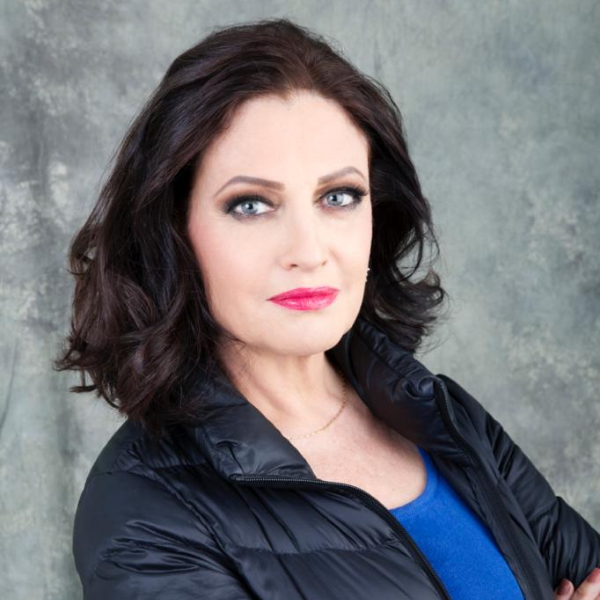
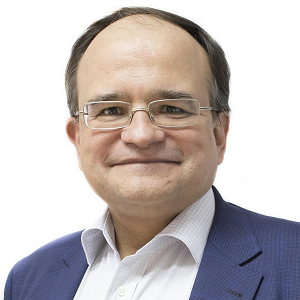
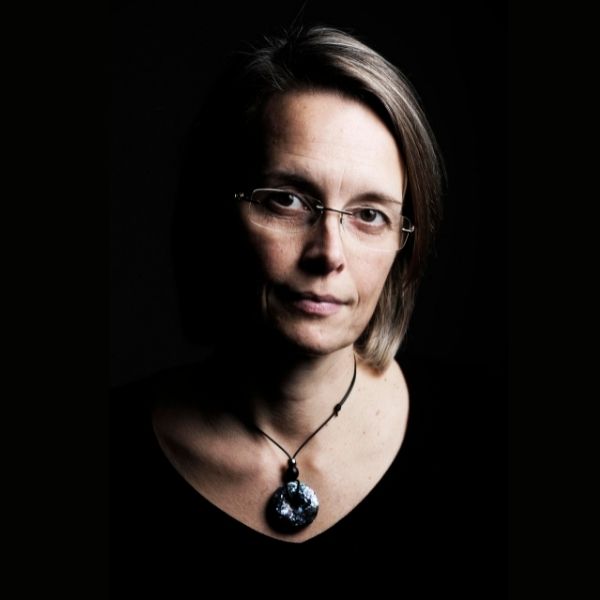
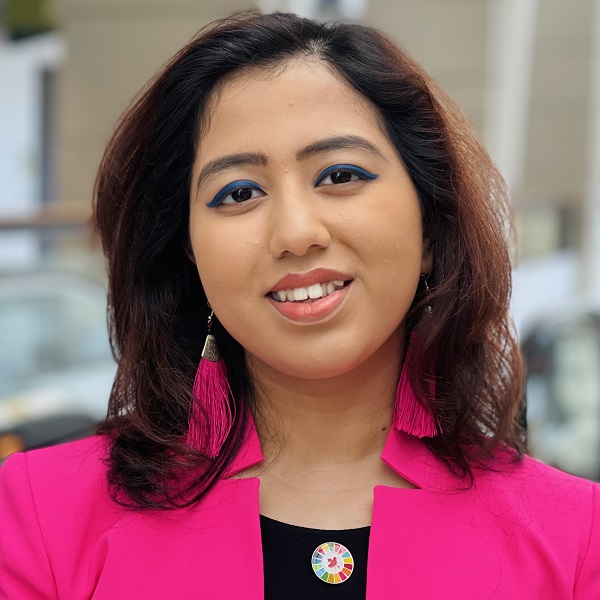
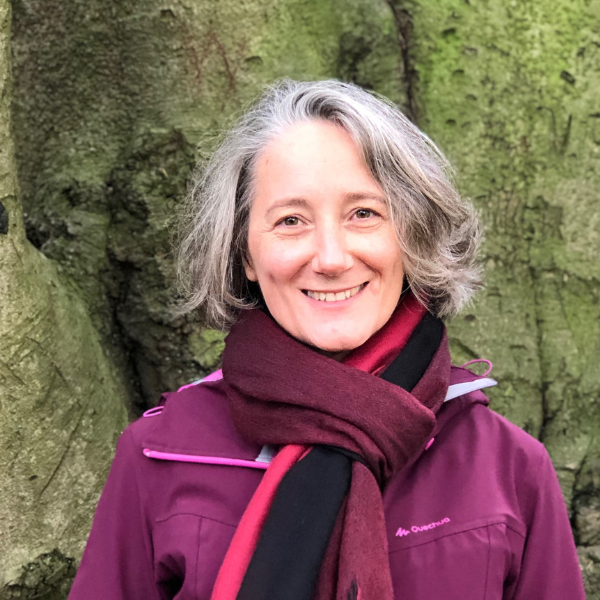

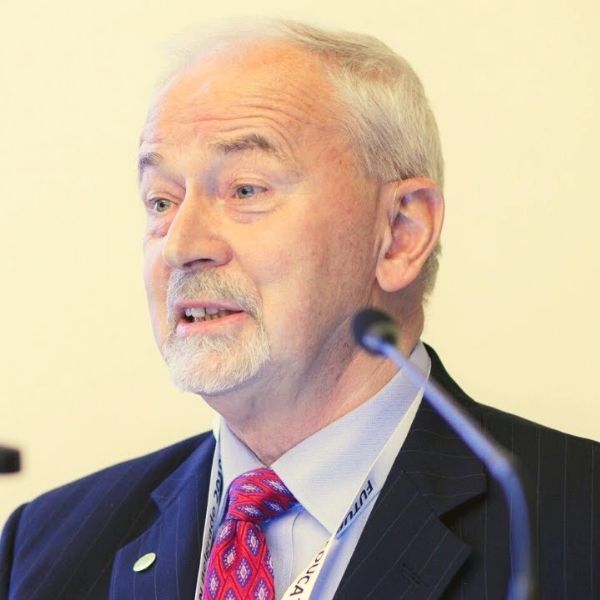
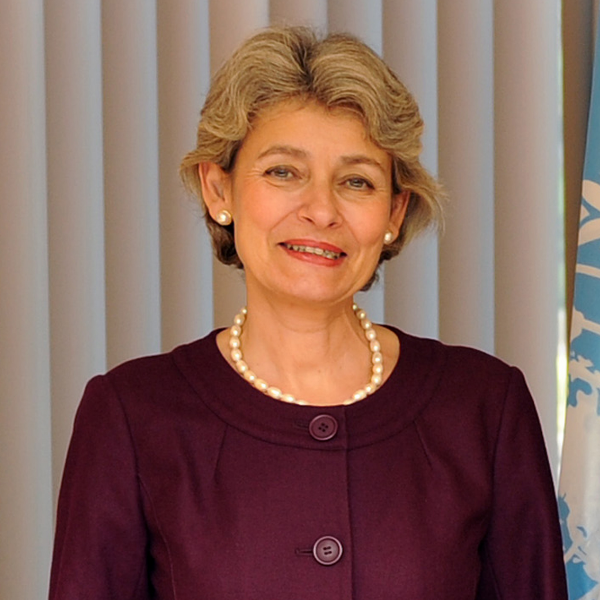
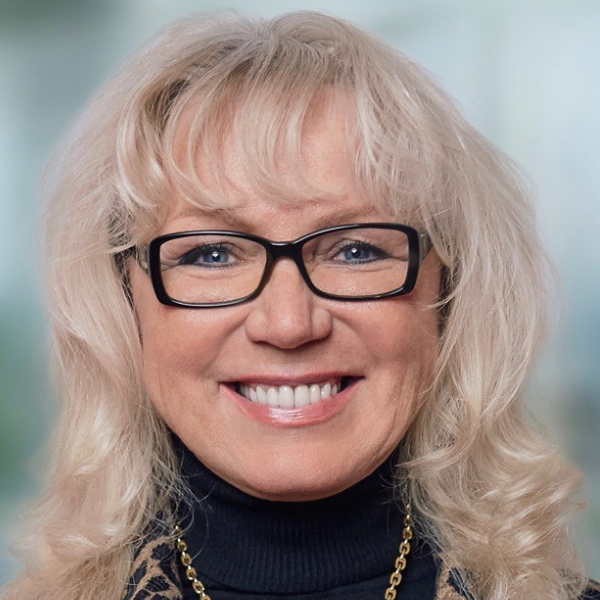
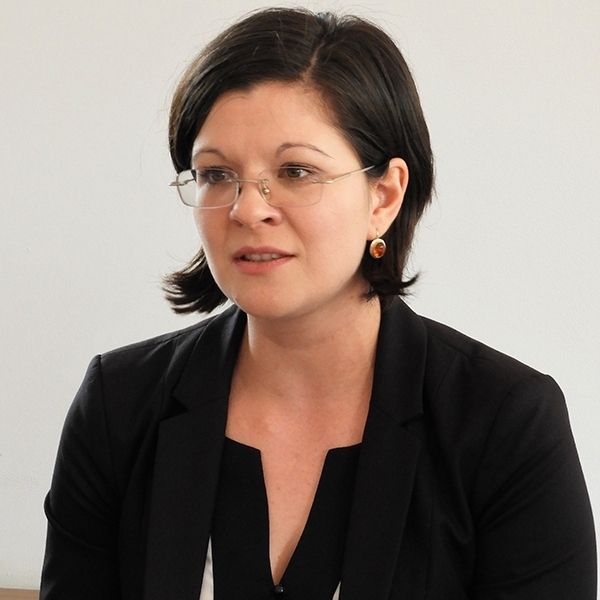
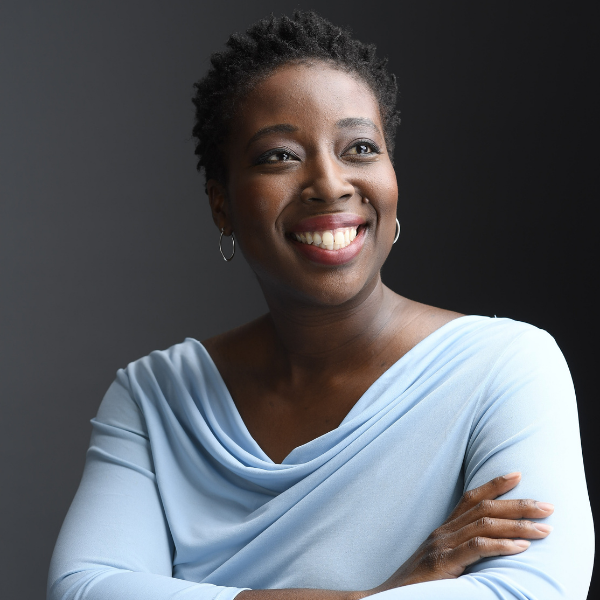
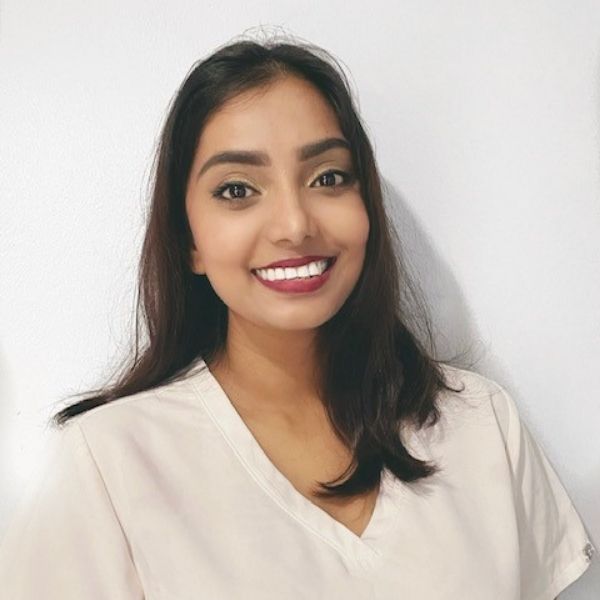
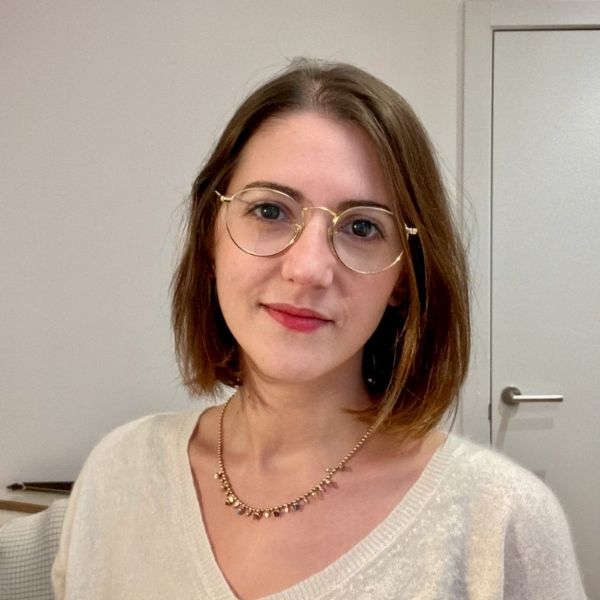
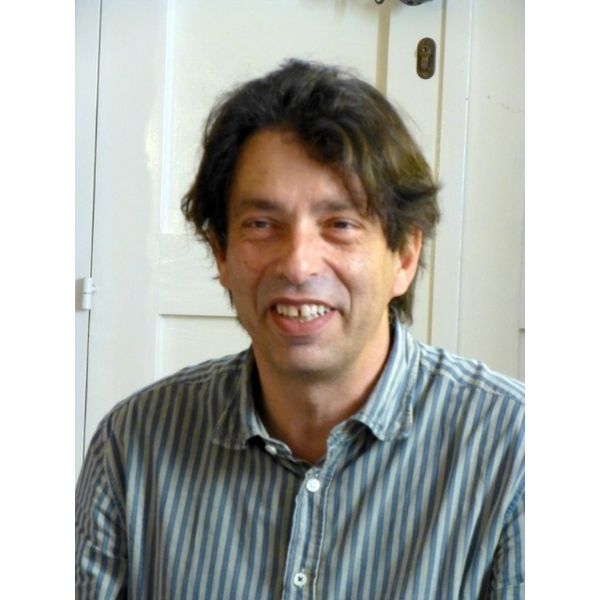
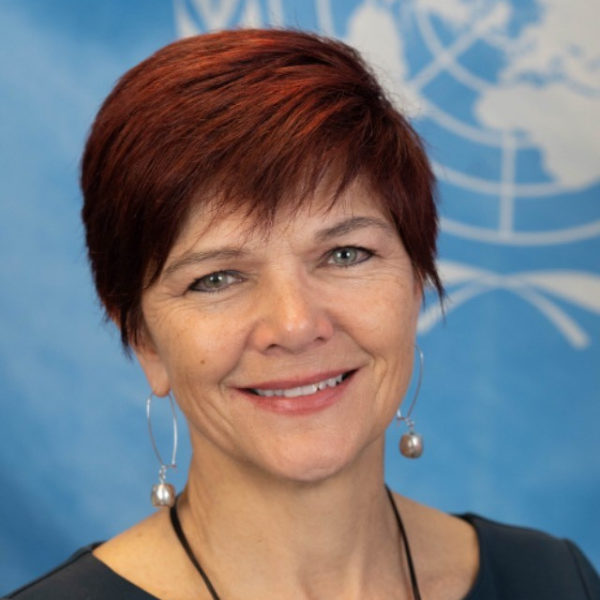
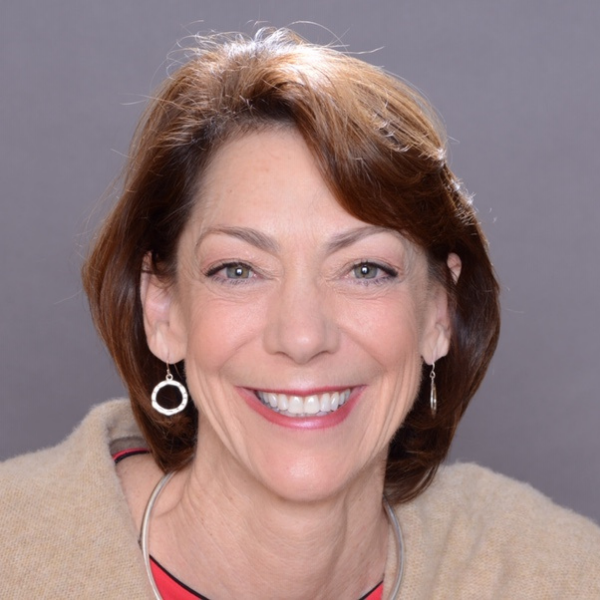
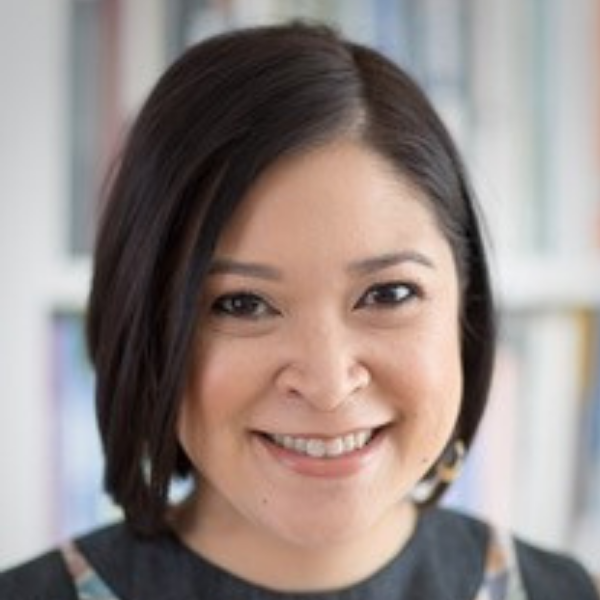
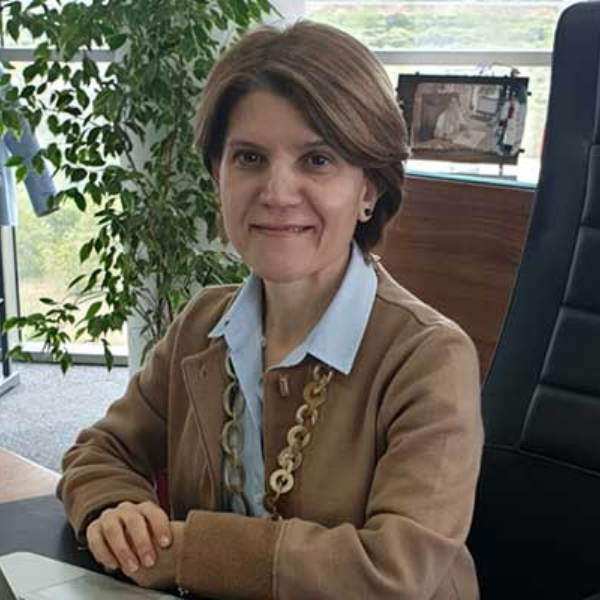
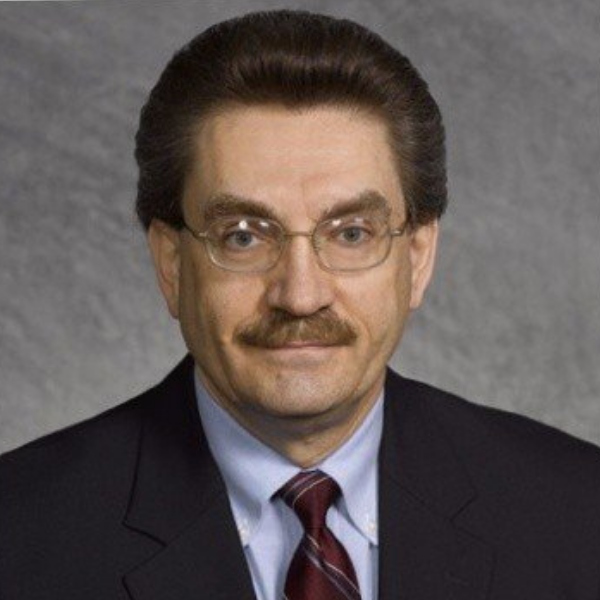
Matthew Chodkowski
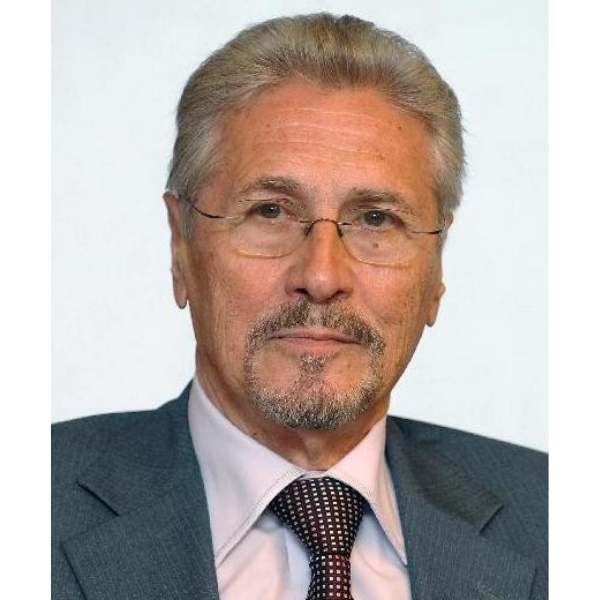
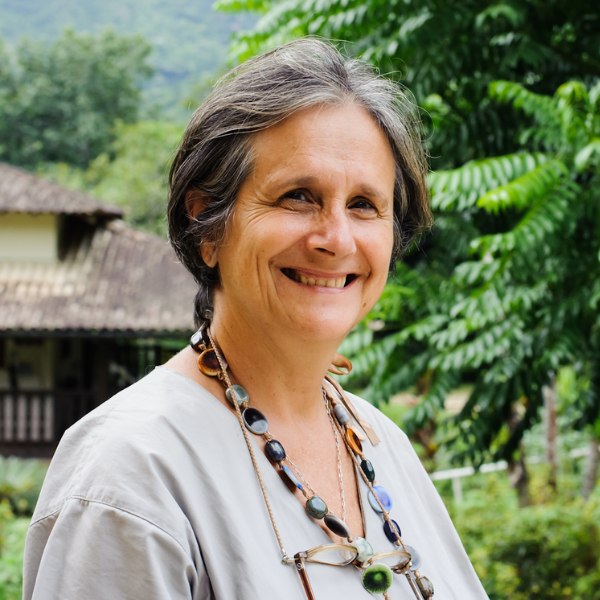
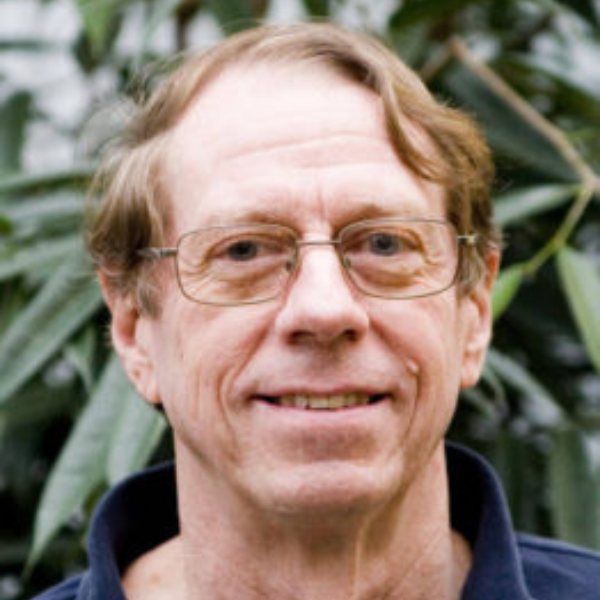
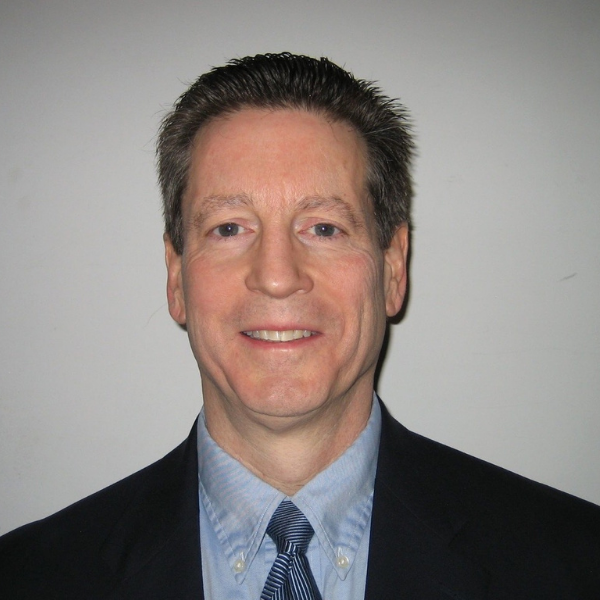
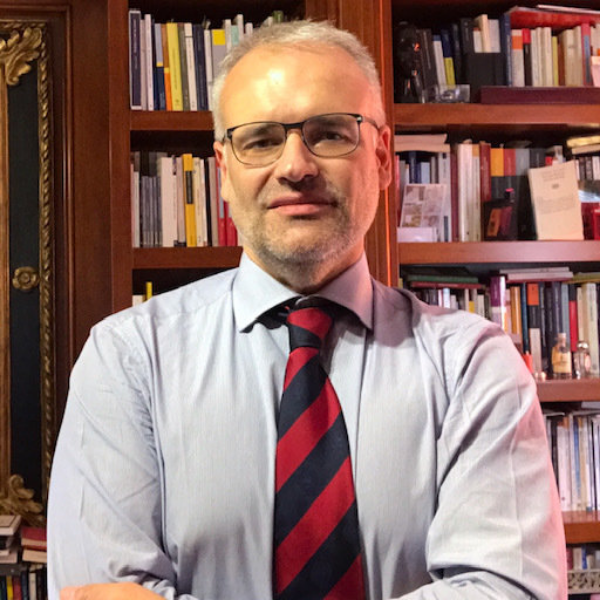
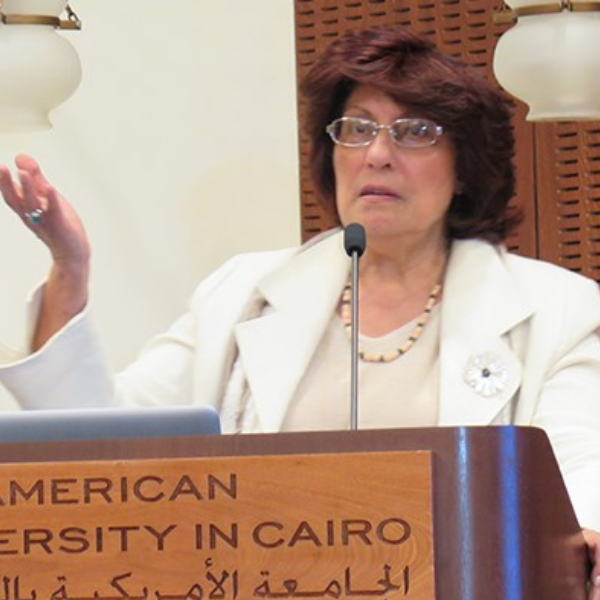
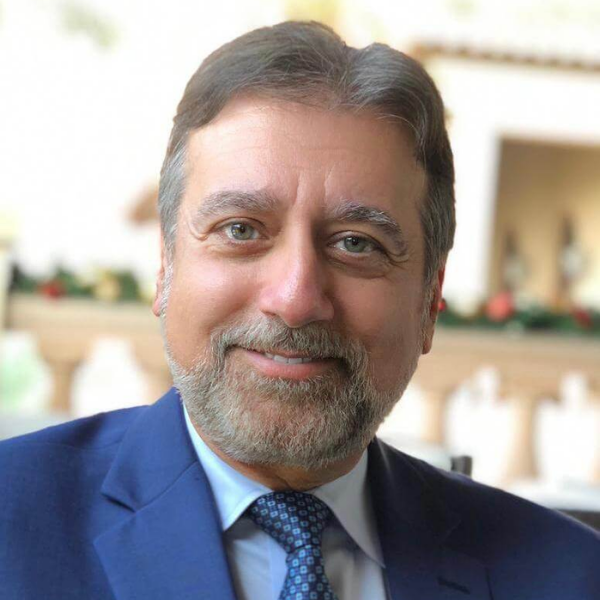
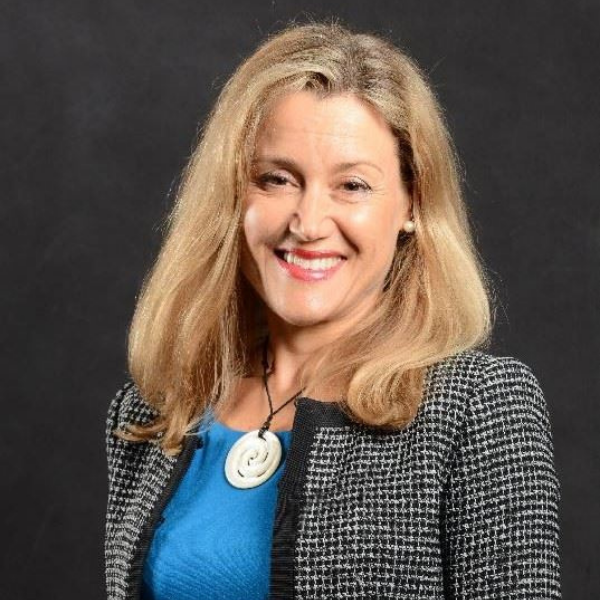
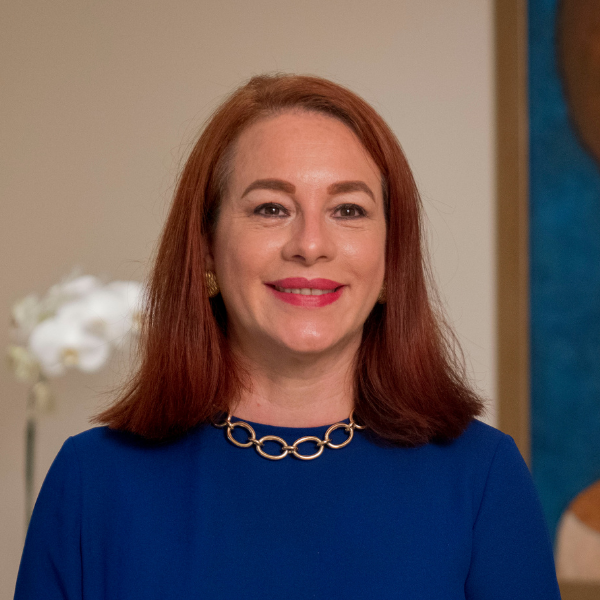
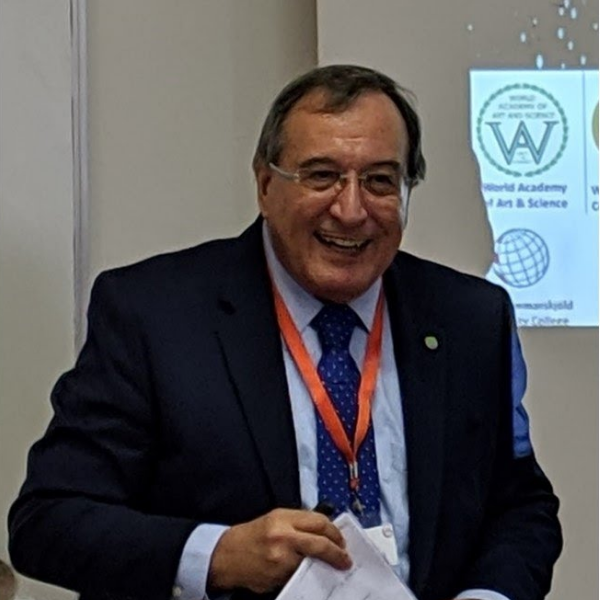
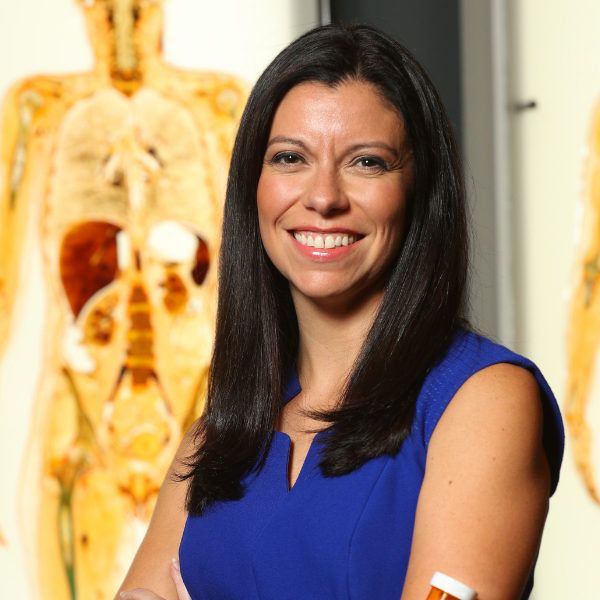
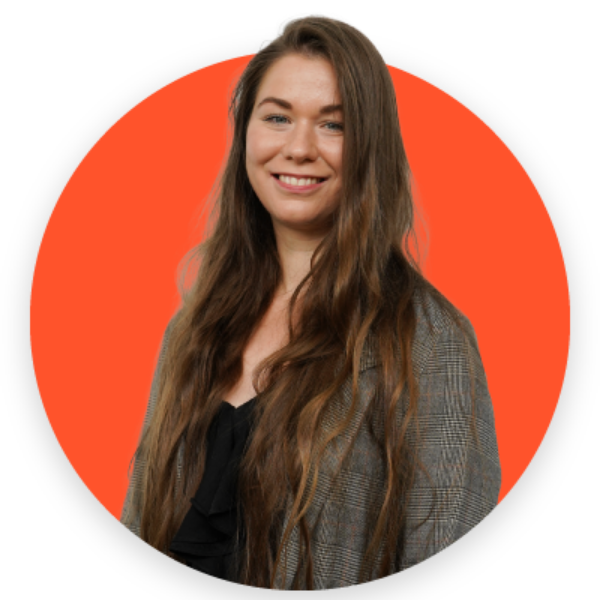
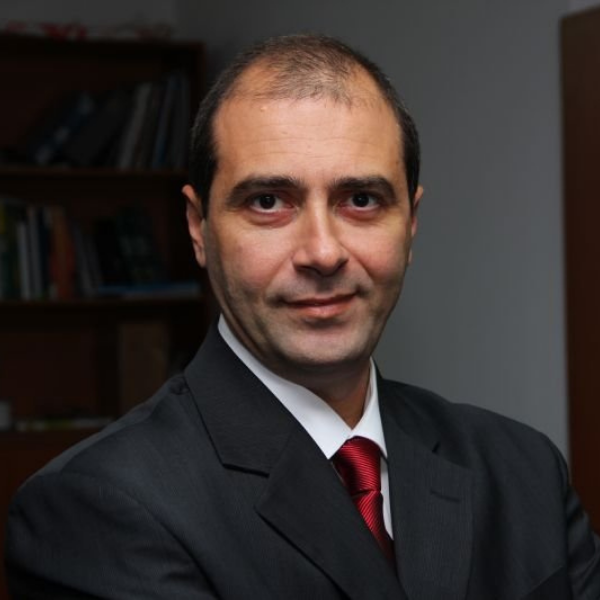
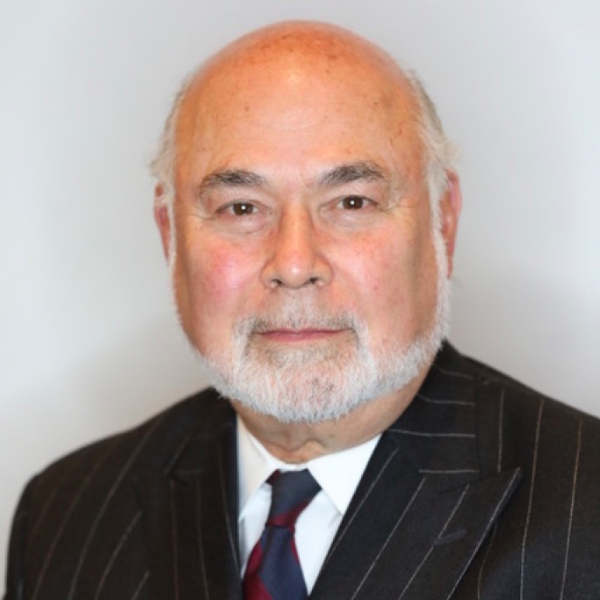
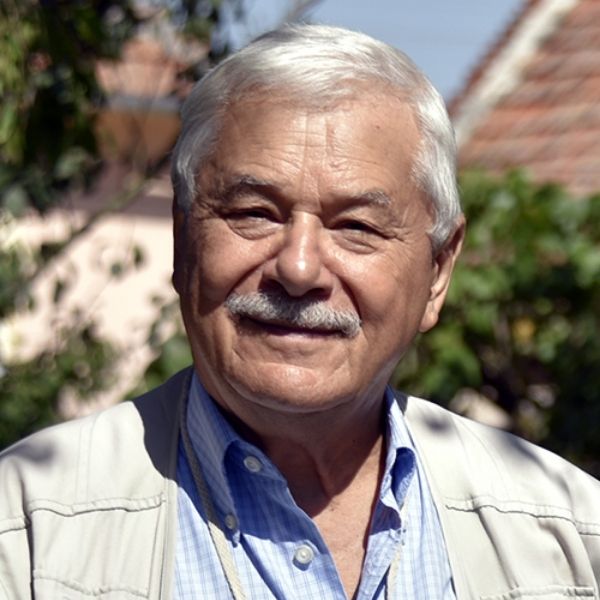
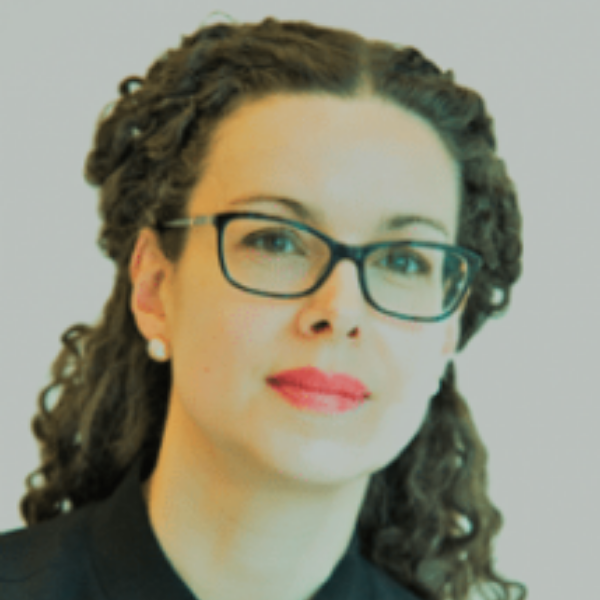
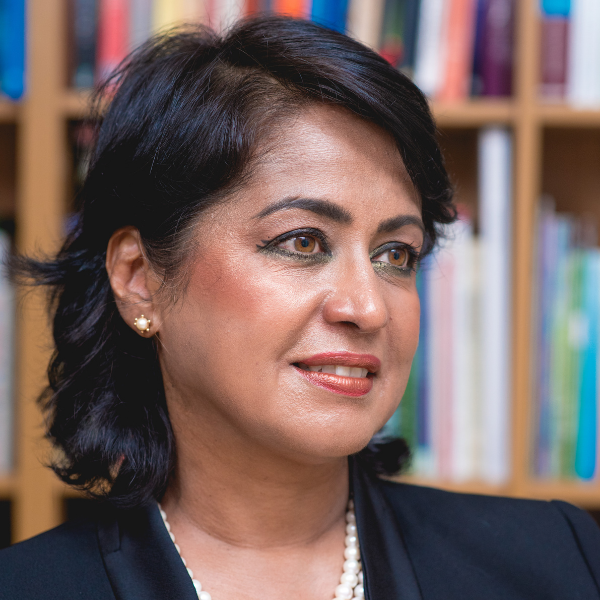
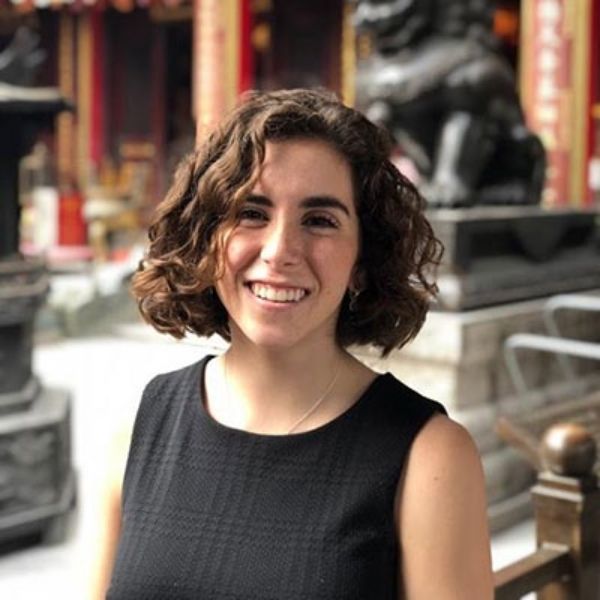
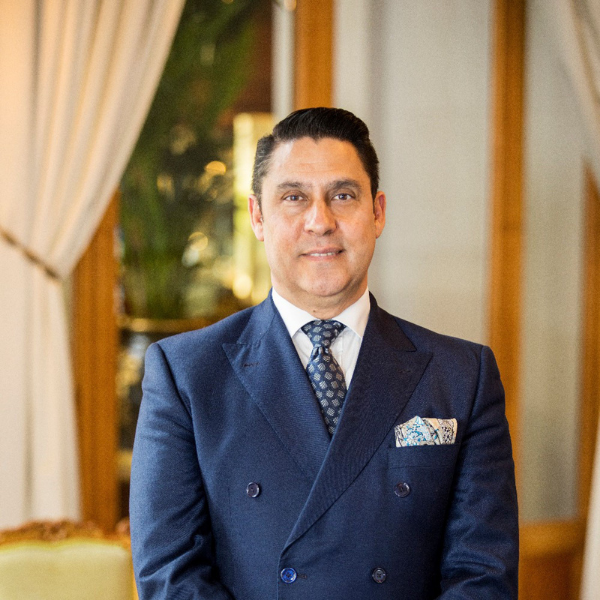

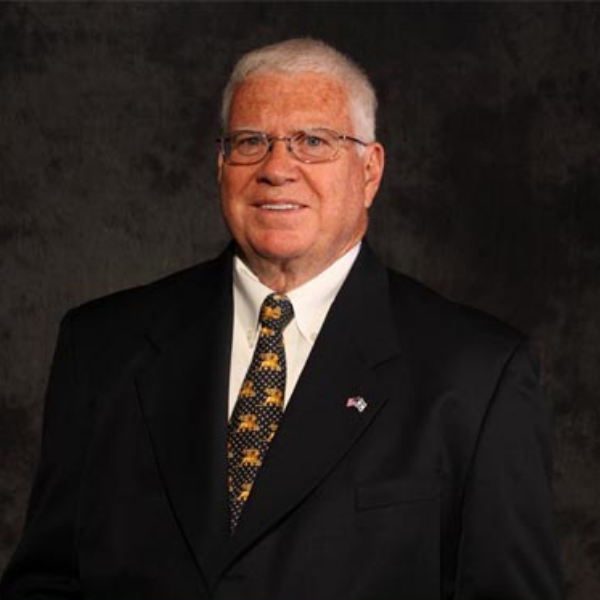
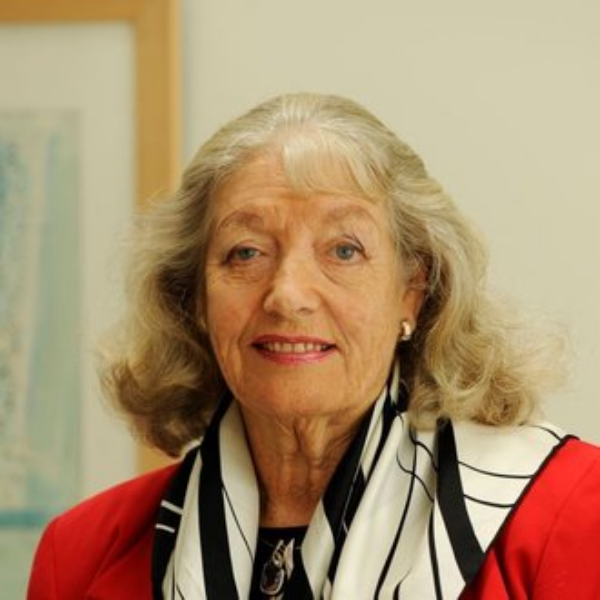
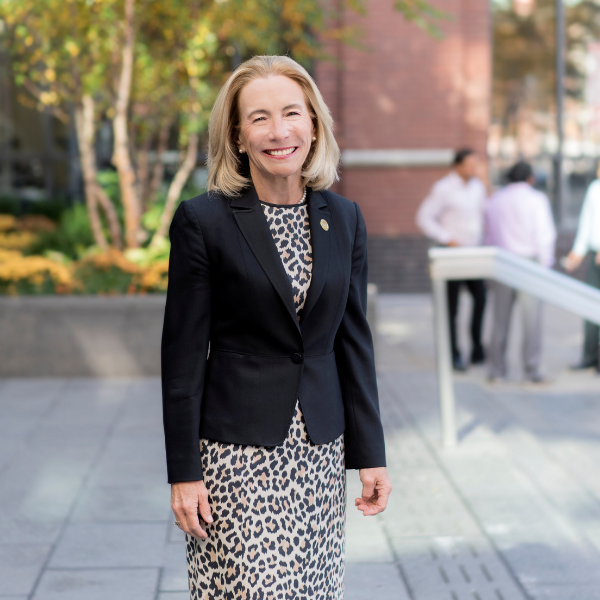
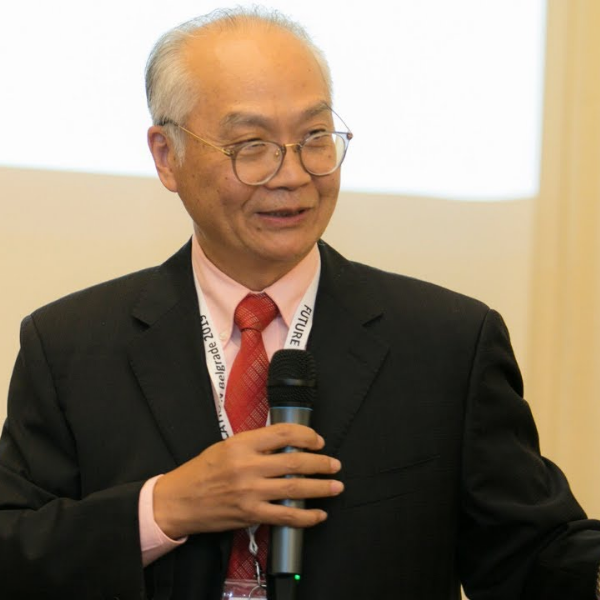
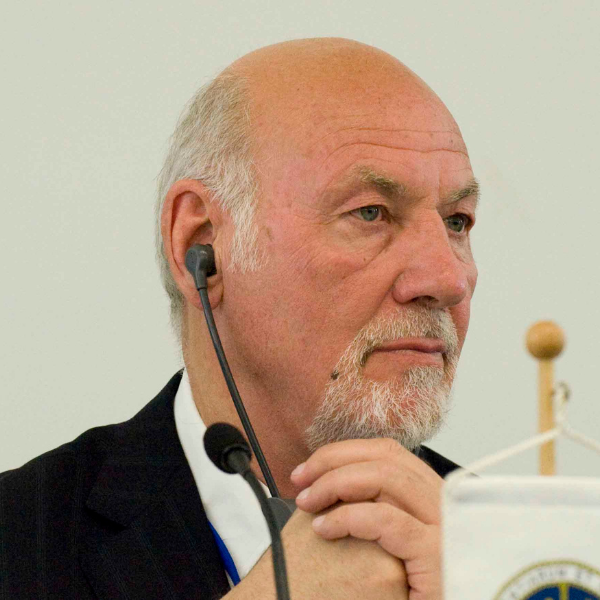
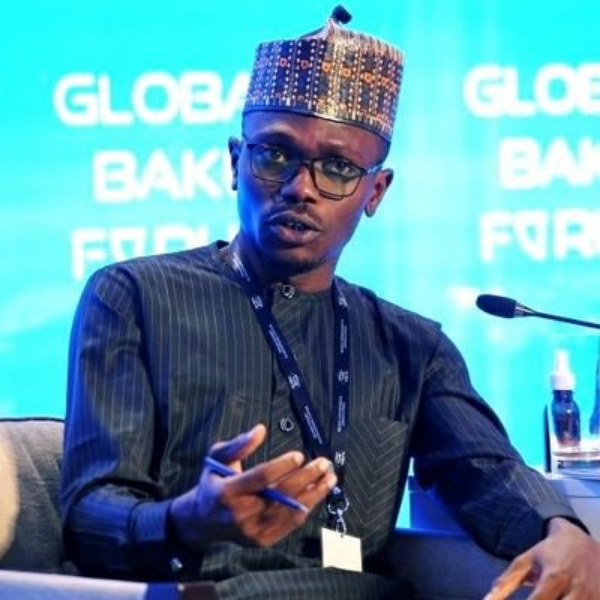
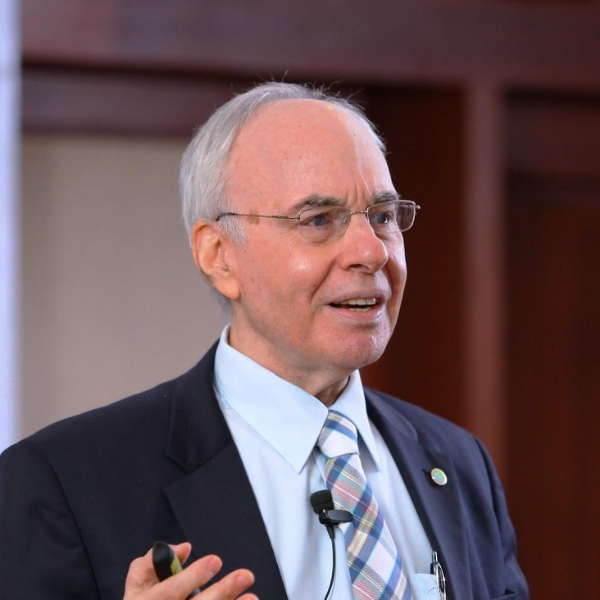

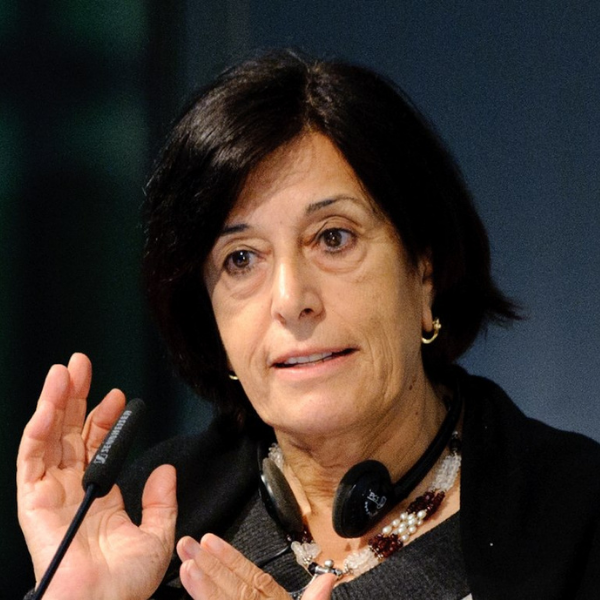

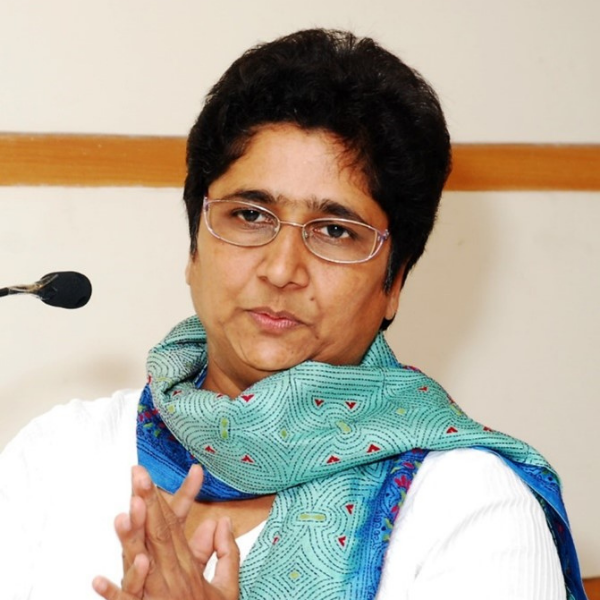
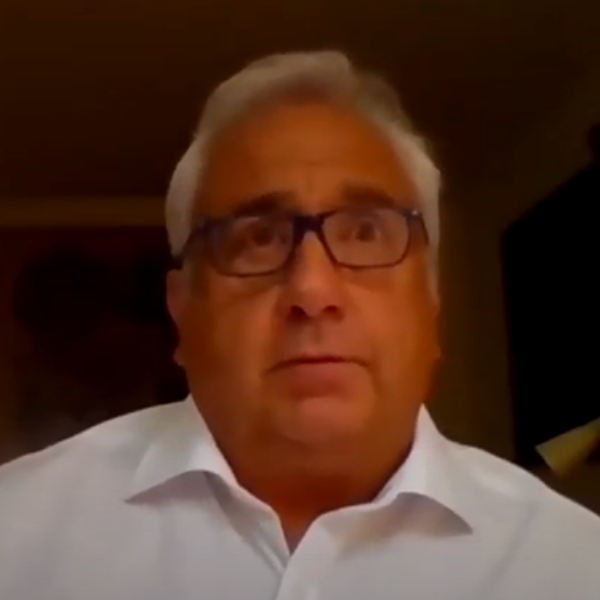
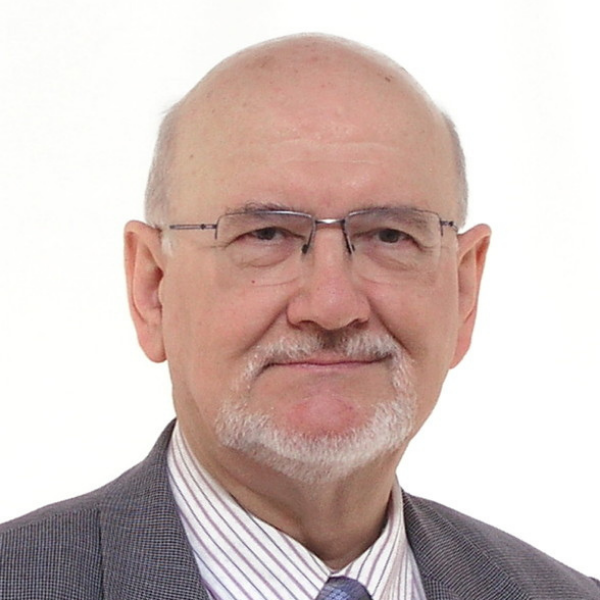
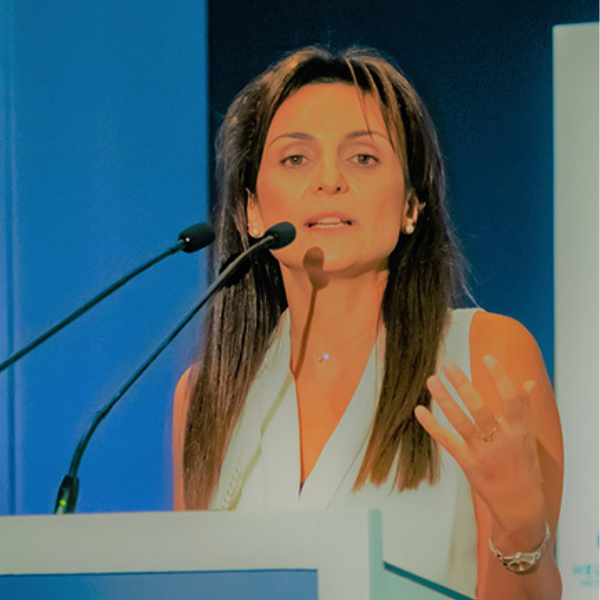
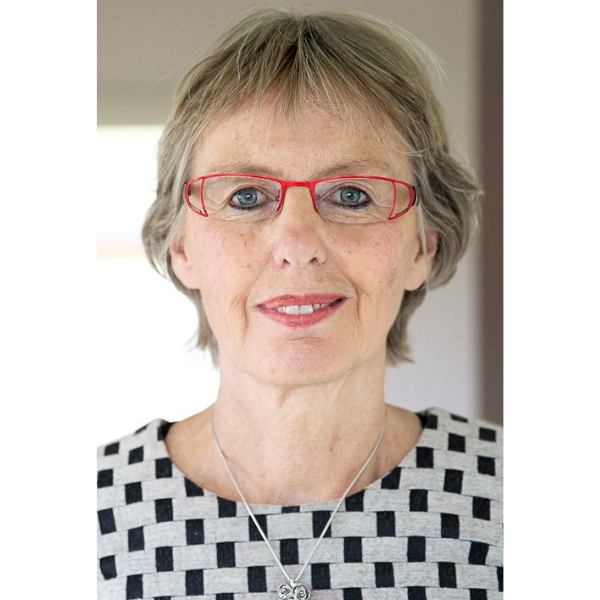
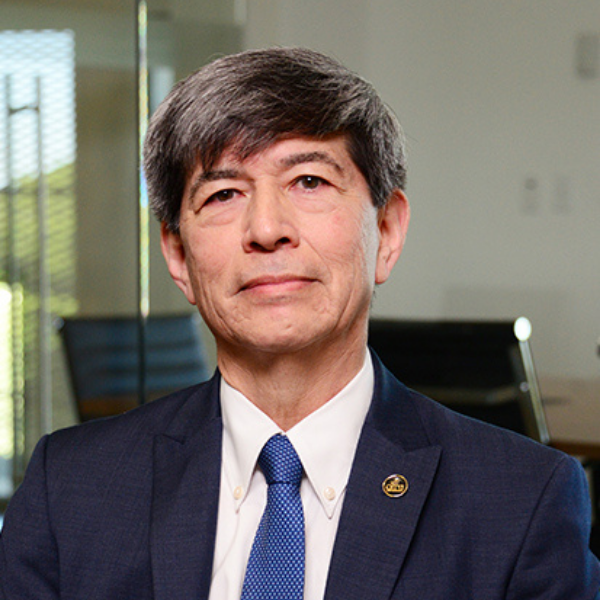
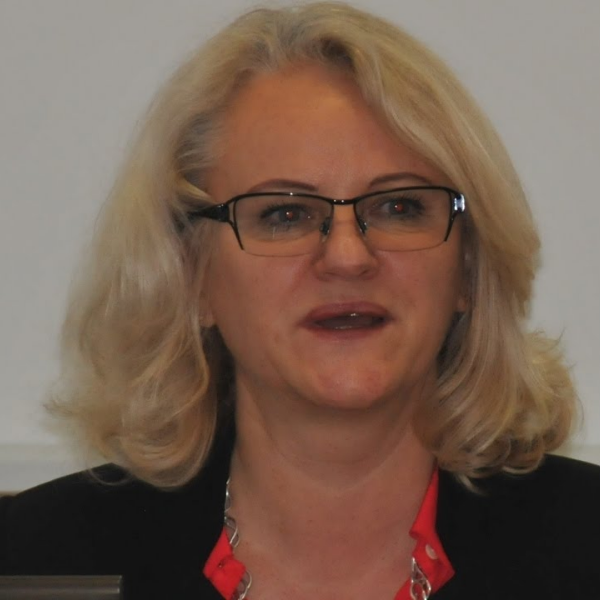
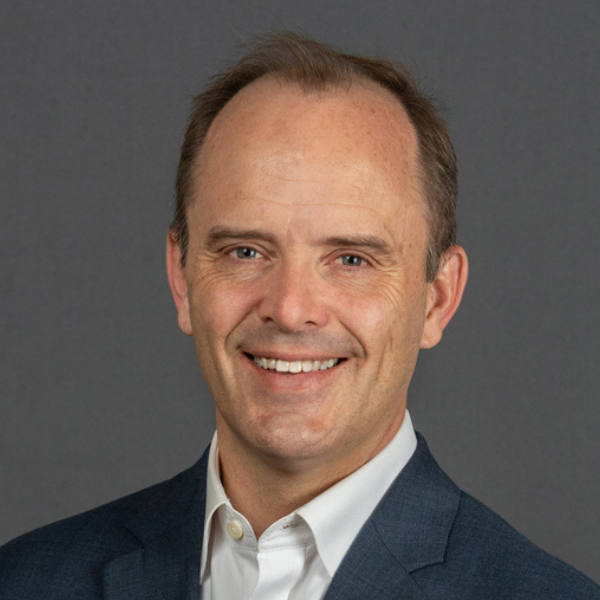
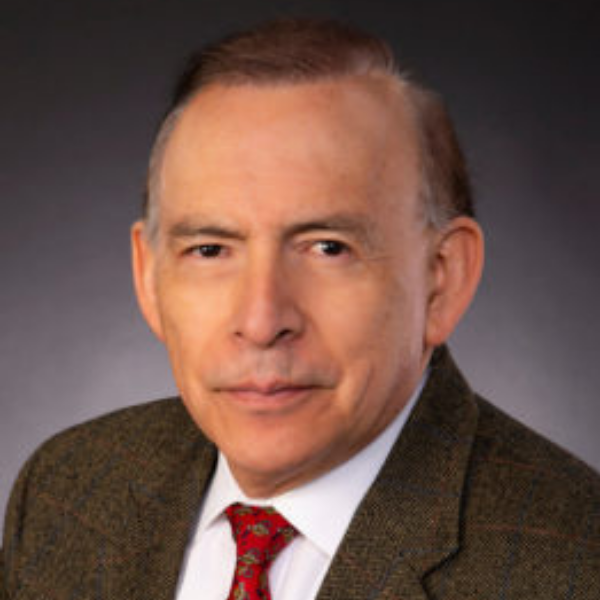
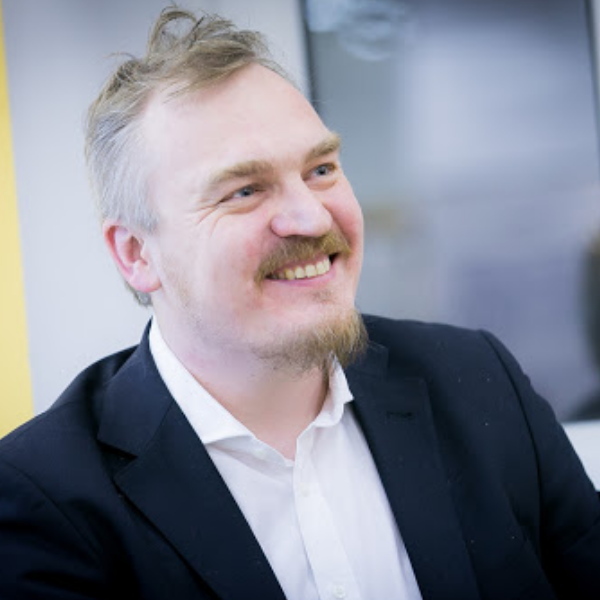
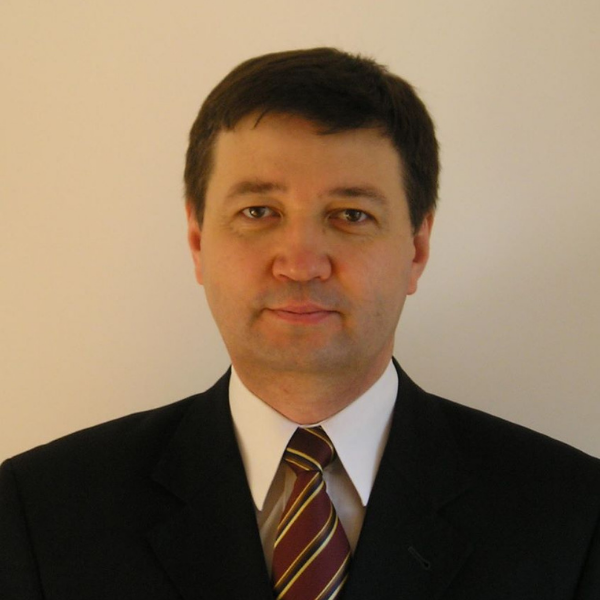
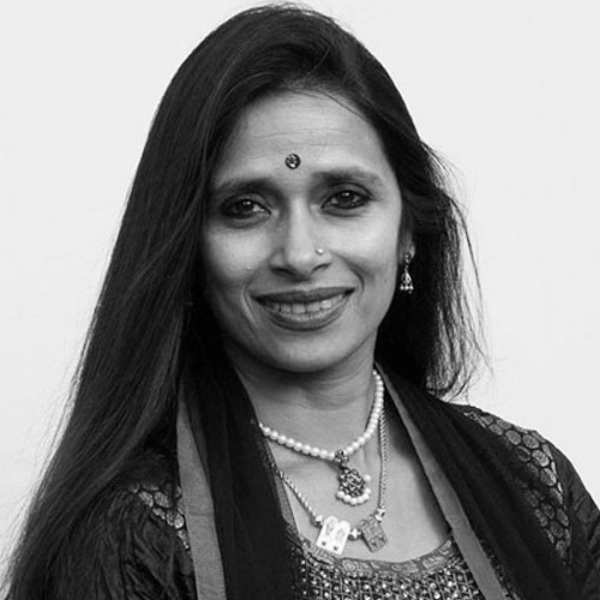
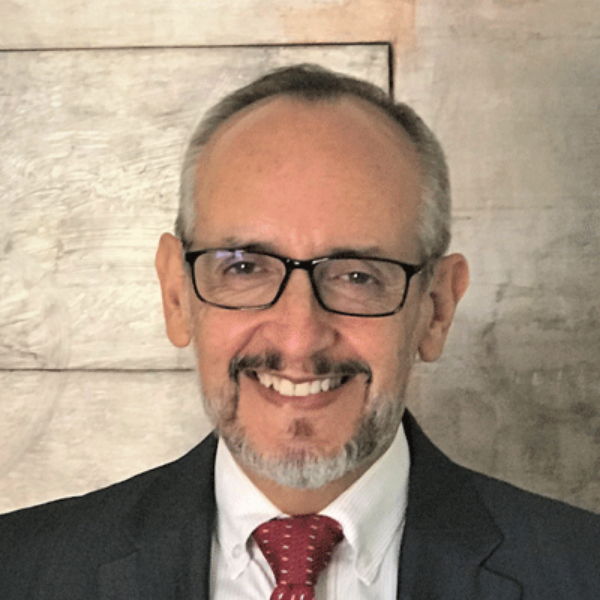
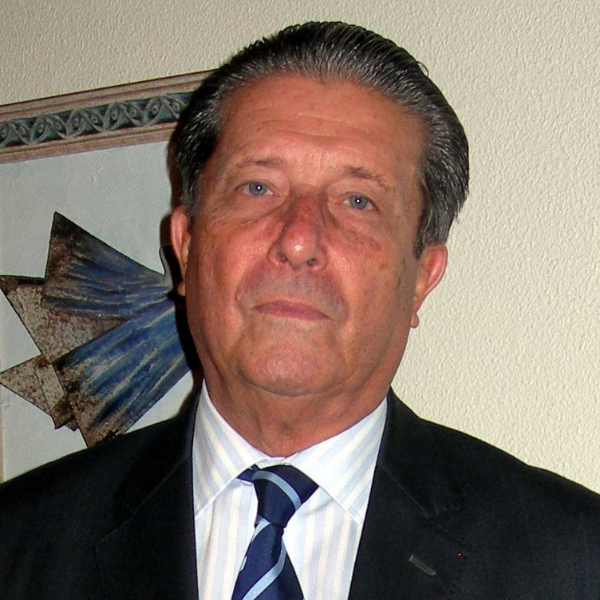
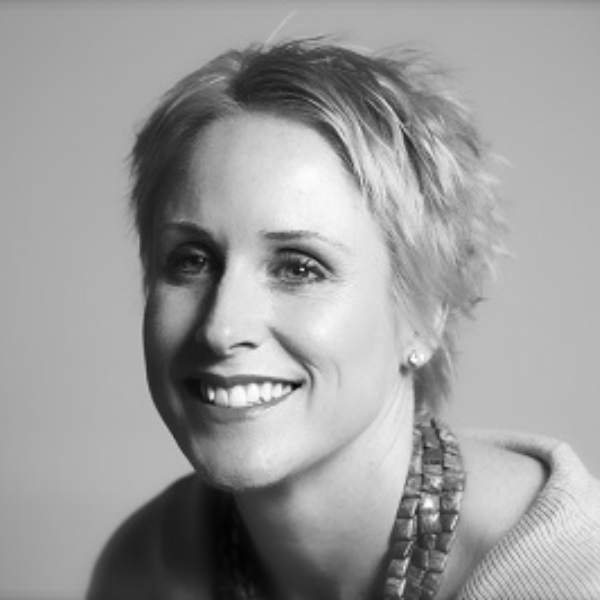
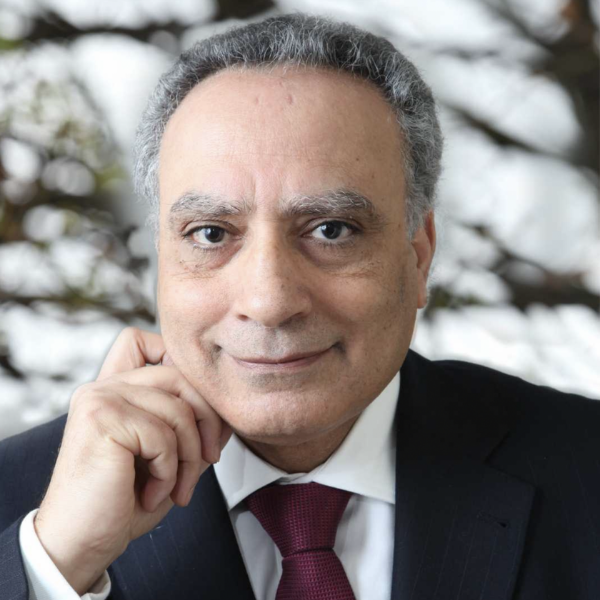
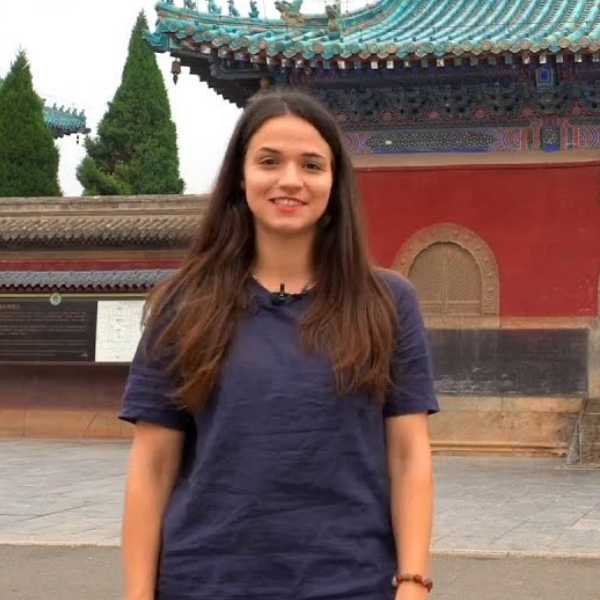
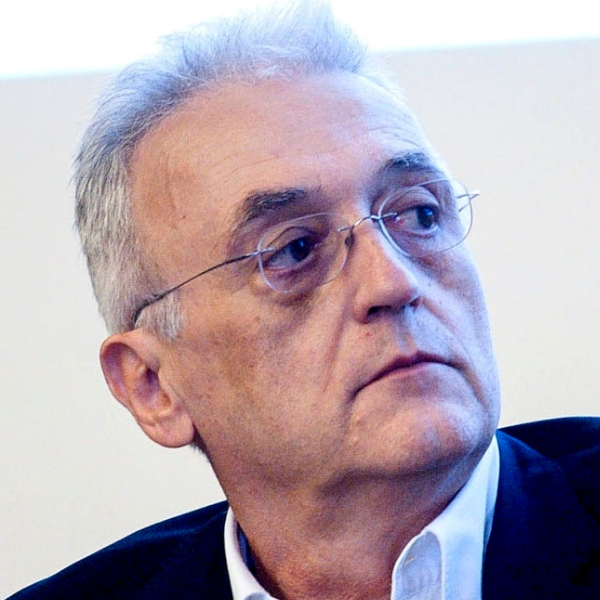
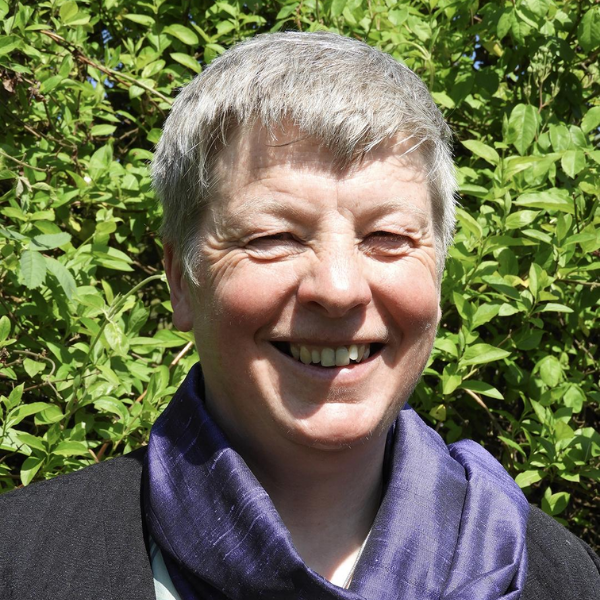


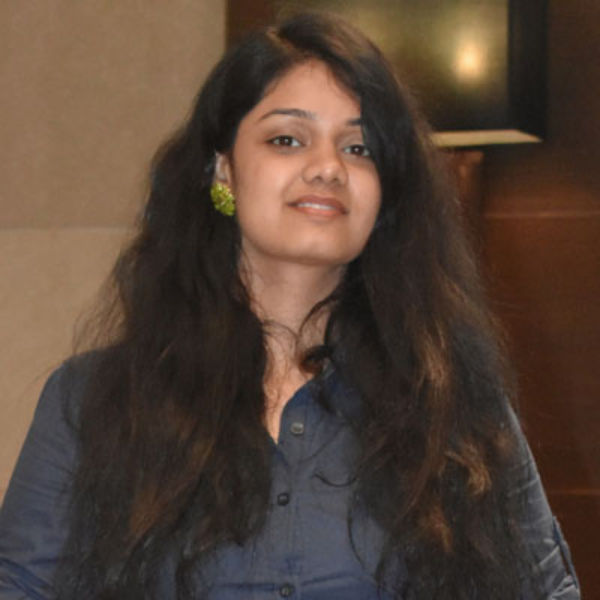

Norma Patricia Muñoz Sevilla


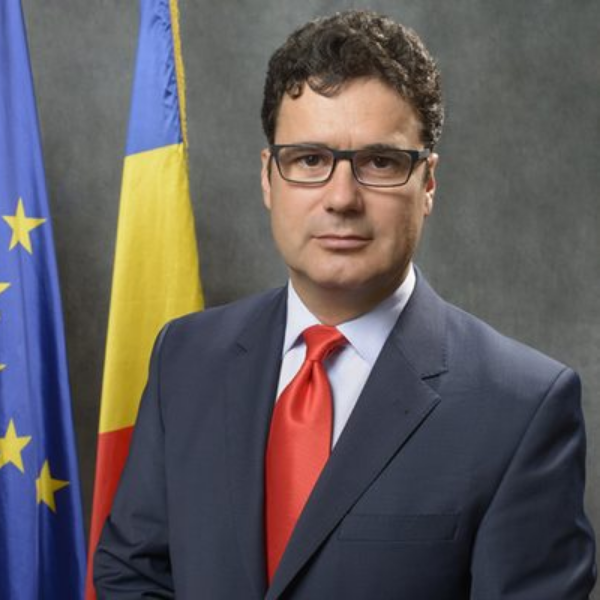

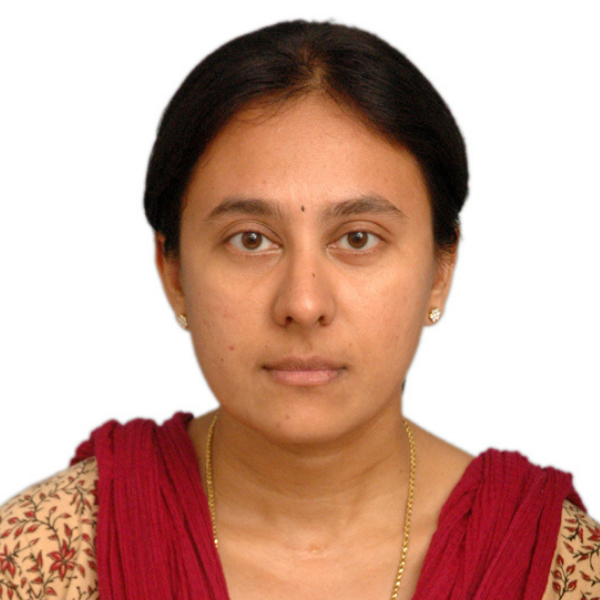
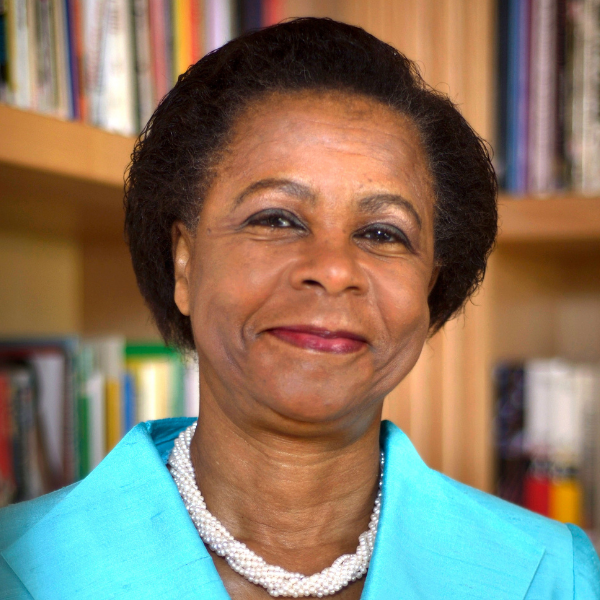

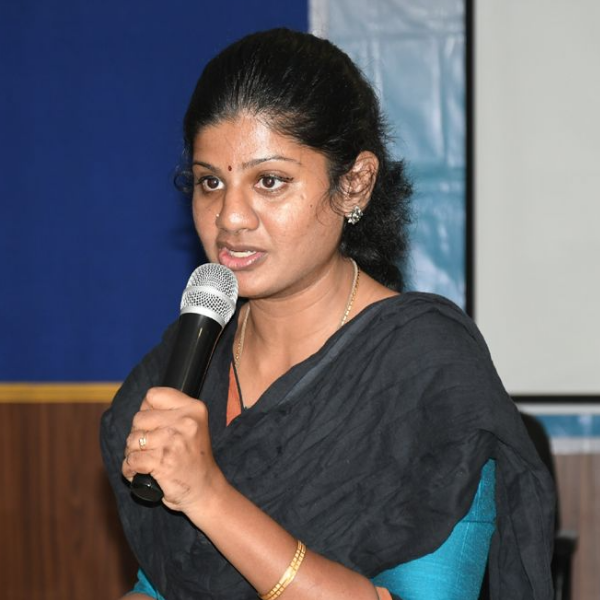
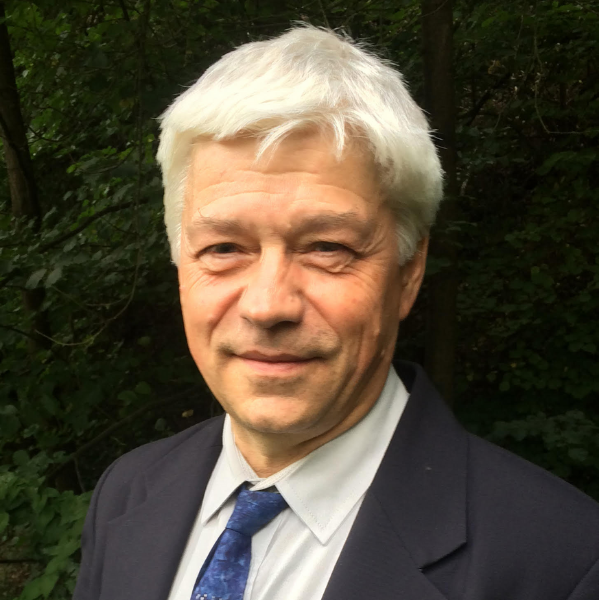

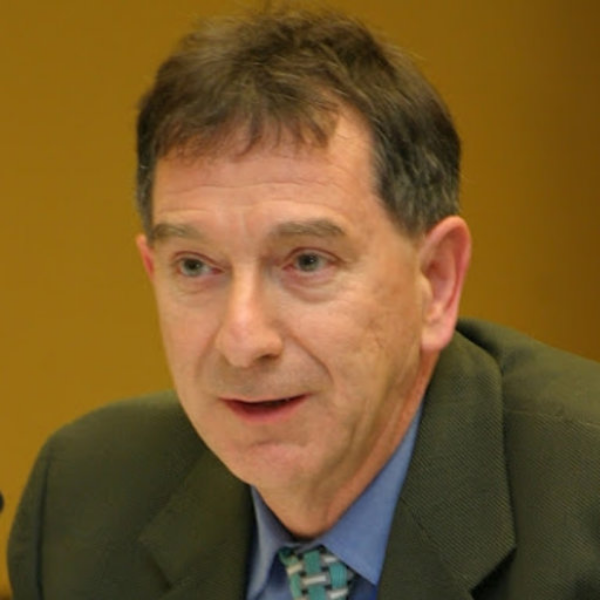
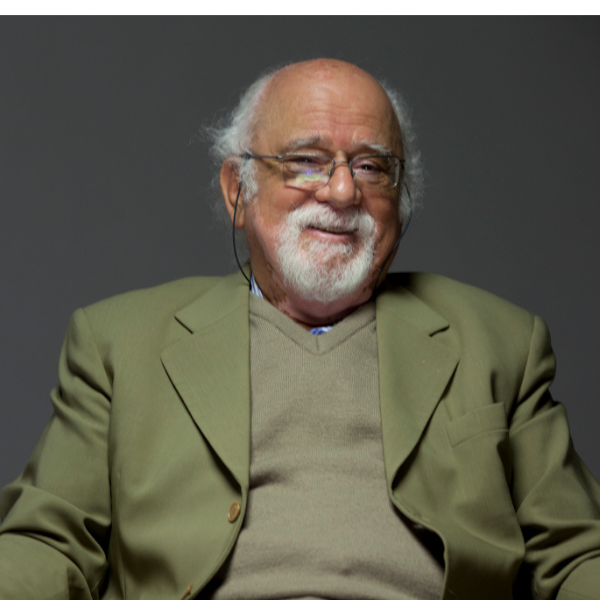
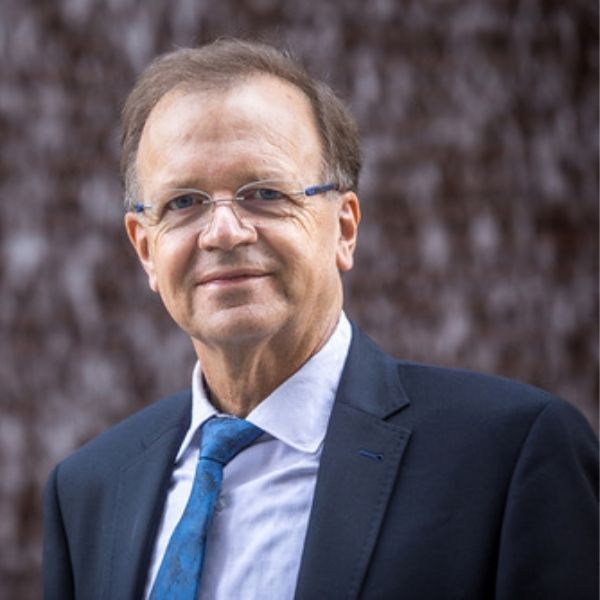
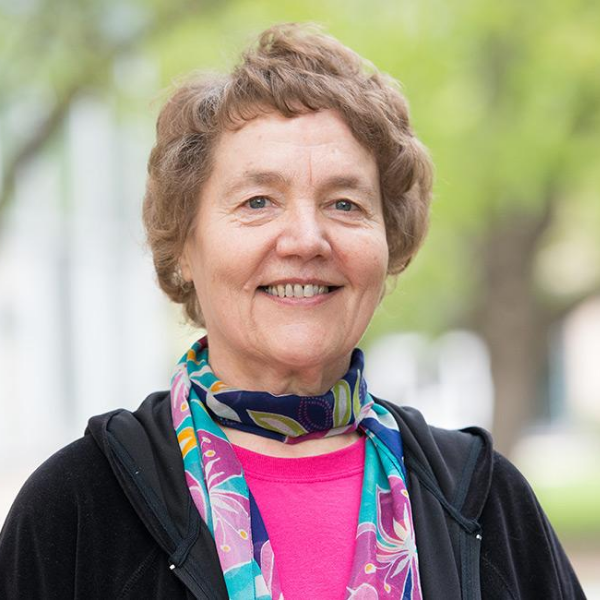

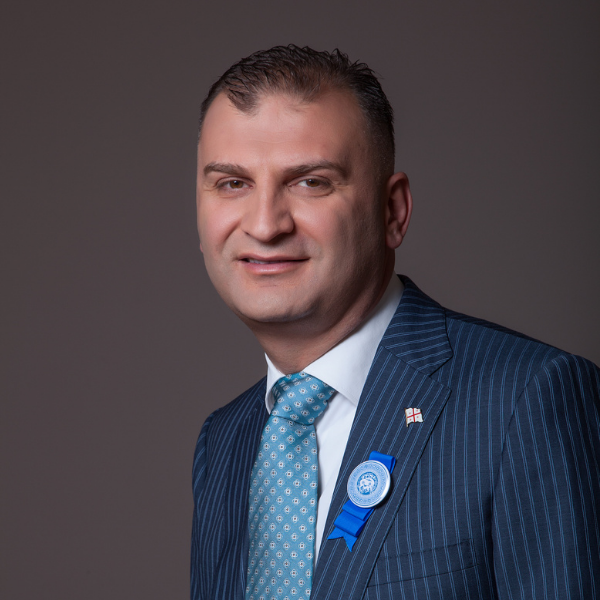
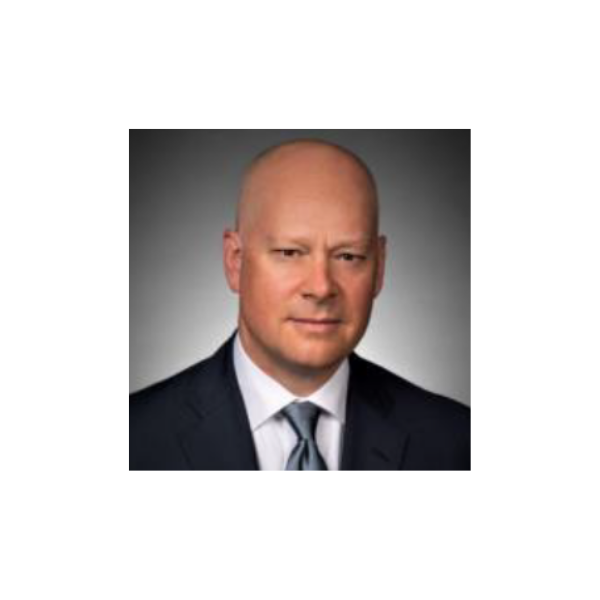
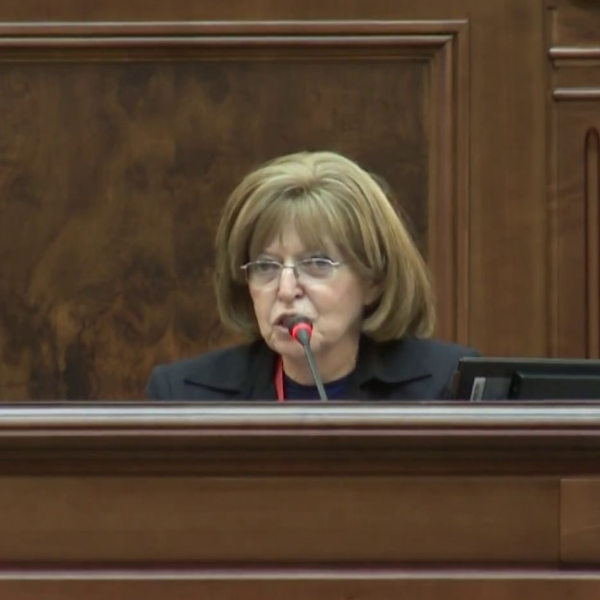


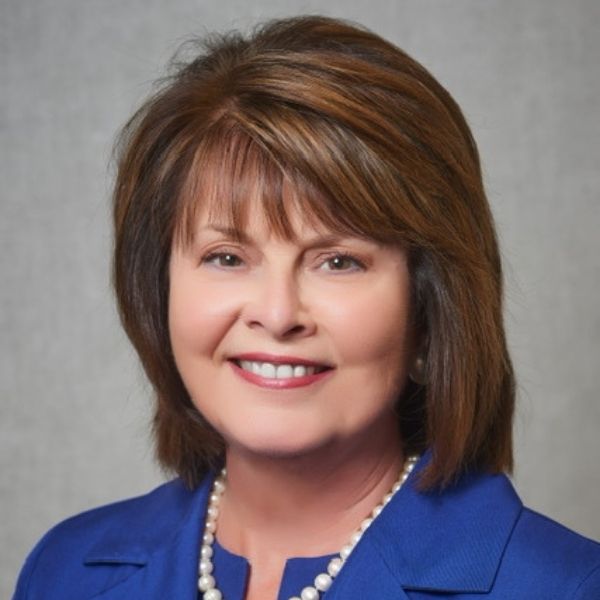
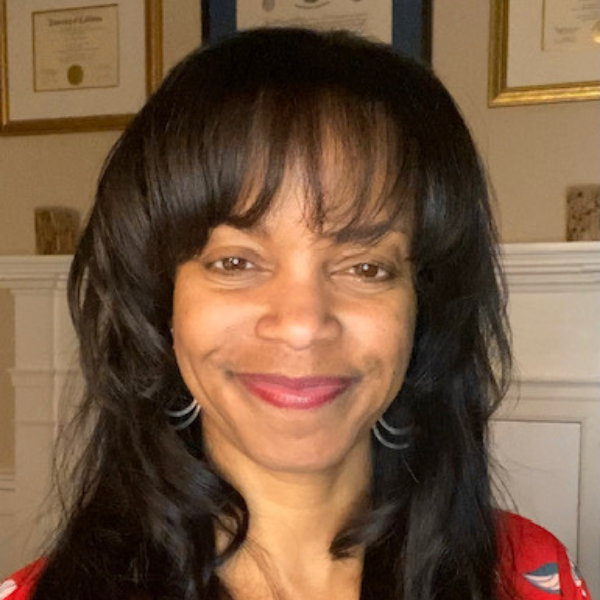

Willy Tsague
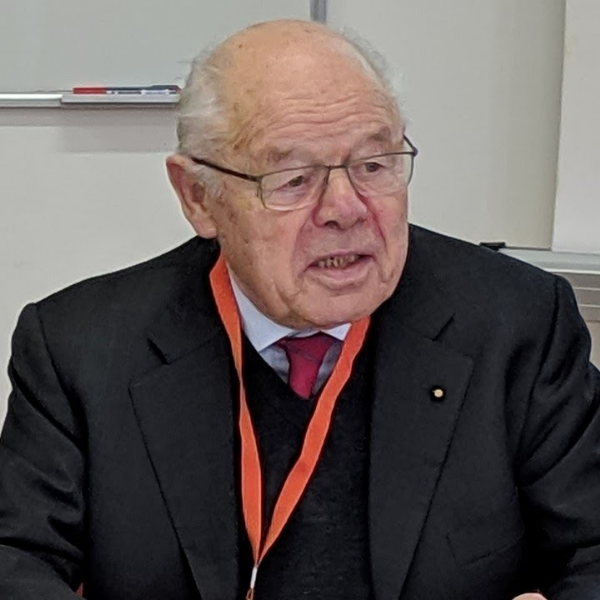

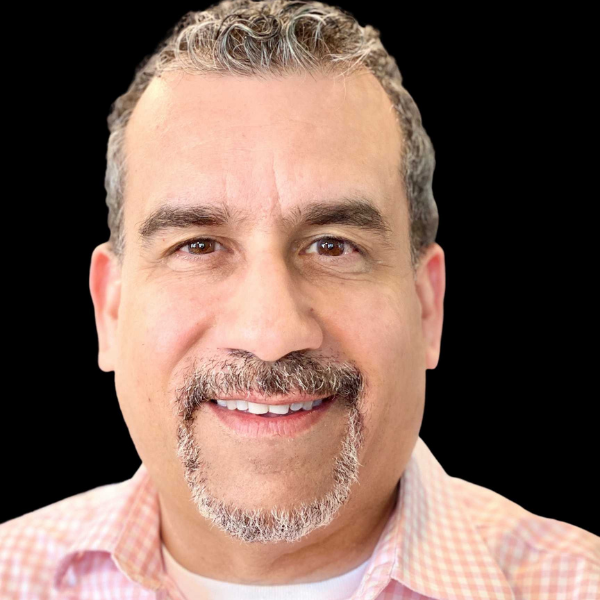
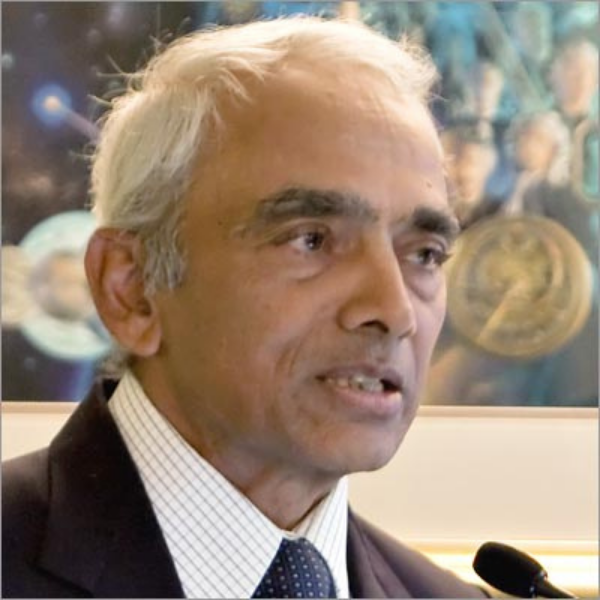
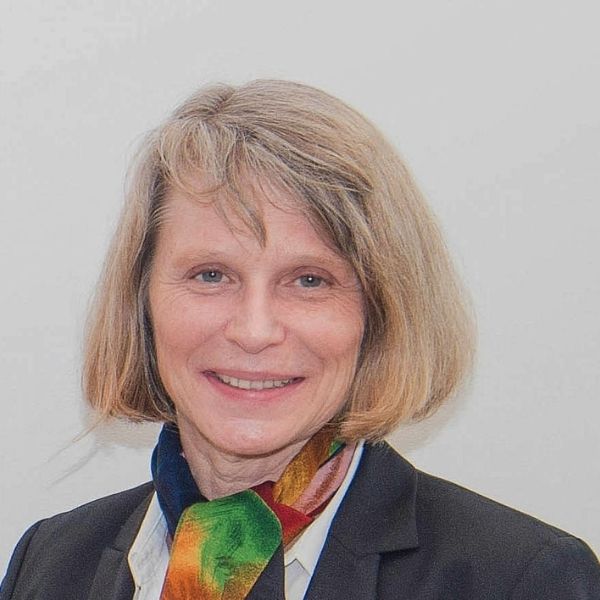
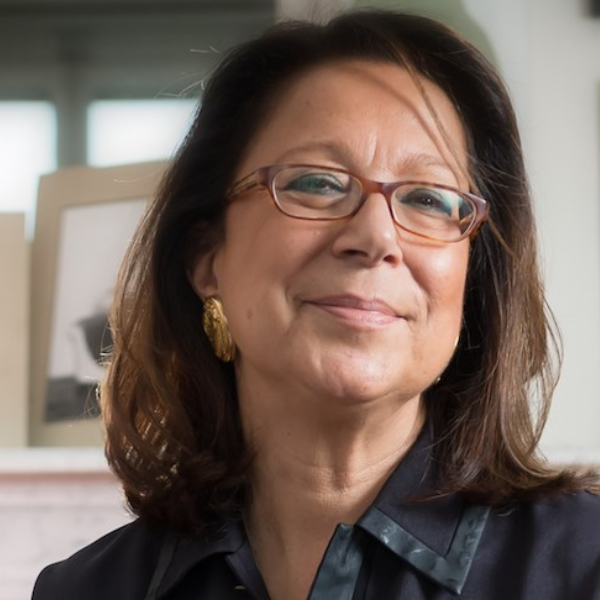
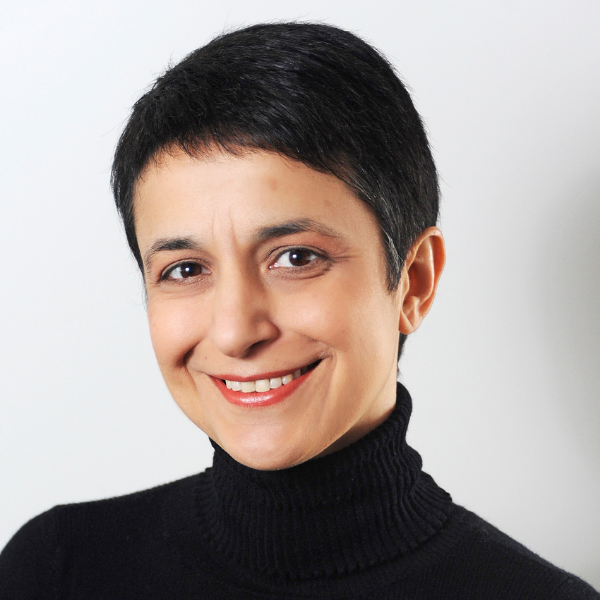
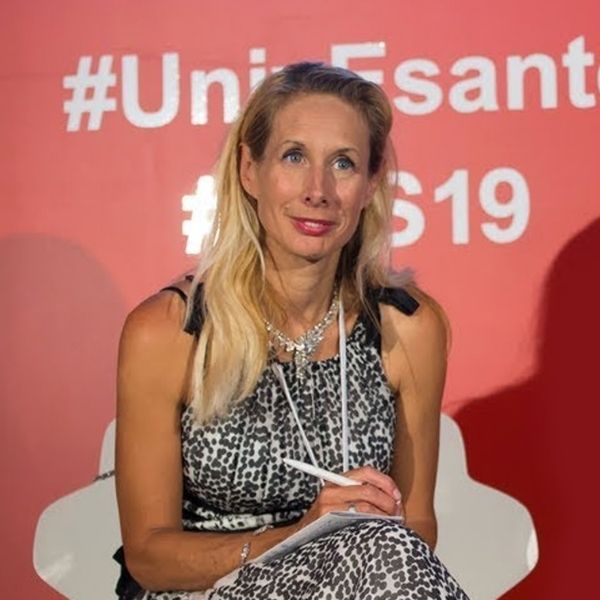

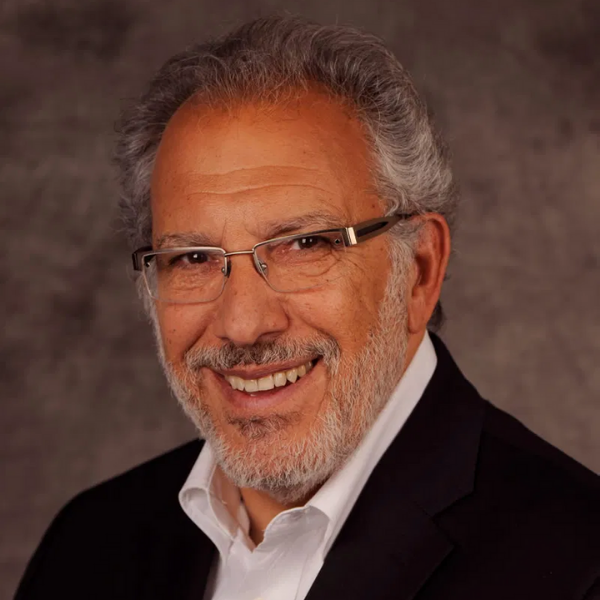
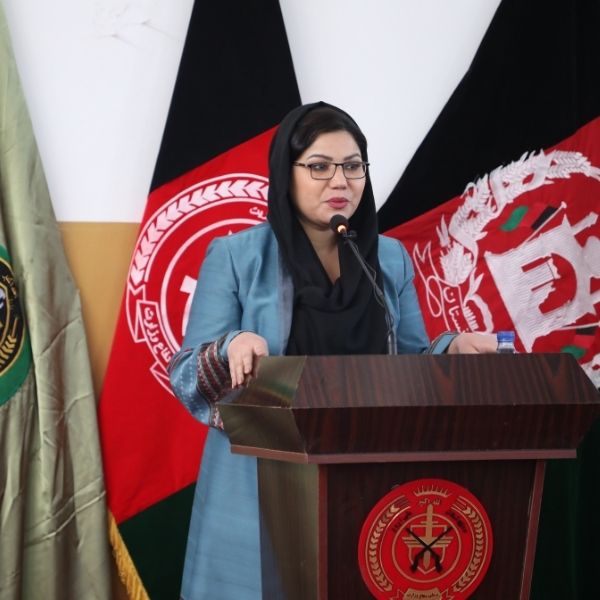
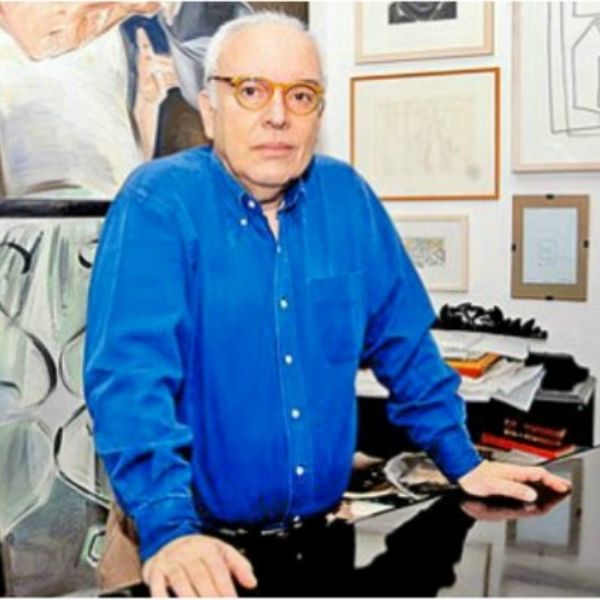

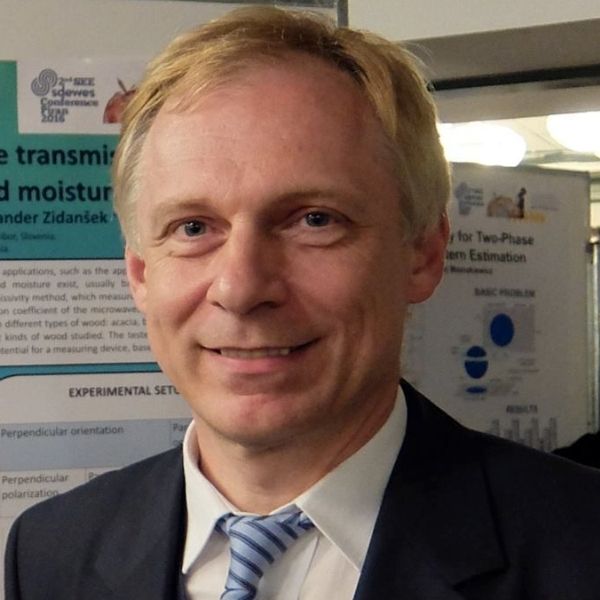
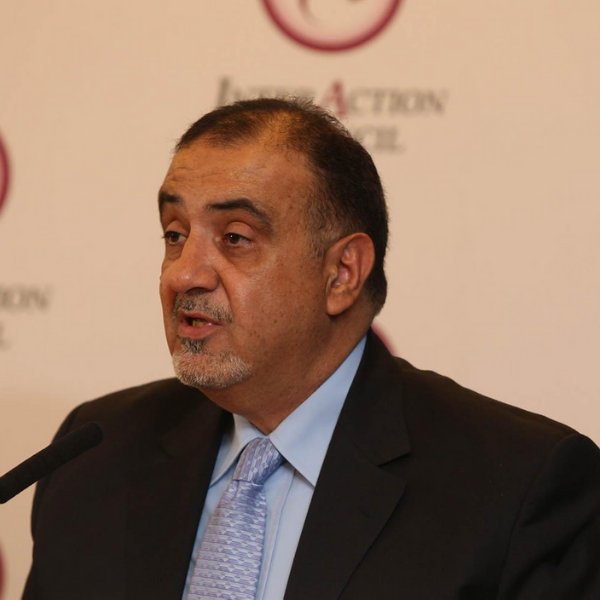


Pilar Alvarez Laso

Assistant Director General of UNESCO for Human and Social Sciences (2010-2013); Head of UNESCO in Haiti and Uzbekistan
Pilar Álvarez Laso is the former Director of the Office of the United Nations Educational, Scientific and Cultural Organization (UNESCO) in Costa Rica. Previously, she served as Project Director of the Latin American Institute of Educational Communication (ILCE) and has held various positions -among them general coordinator communication director- of the ILCE / EDUSAT Channel. She was director of information for the National Coordination of Social Communication at the Federal Electoral Institute (IFE) and collaborated as a media and public opinion advisor for the Electoral Institute of the State of Mexico.
Throughout her journalistic career, she has been a collaborator and correspondent for El Despertador, director of outreach and host of Televisión Proyecto 40, collaborator, reporter and correspondent of El Universal, editorial director and host of Corporación de Noticias e Información (CNI) Channel 40 , co-host of Radio Fórmula and Telefórmula, coordinator, host and reporter of the Instituto Mexicano de Televisión, as well as host and reporter for media such as Free-Lance, Radio Educación and Radio Tecnológico. She has also worked as a researcher at the General Directorate of Radio, Television and Cinematography (RTC), at the Mexican Institute of Social Studies, at CINCO-ZIMAT – Communication Research Consultants and at the Ministry of Fisheries. He has been a teacher at the ILCE and the Intercontinental University.
Carlos Alvarez Pereira
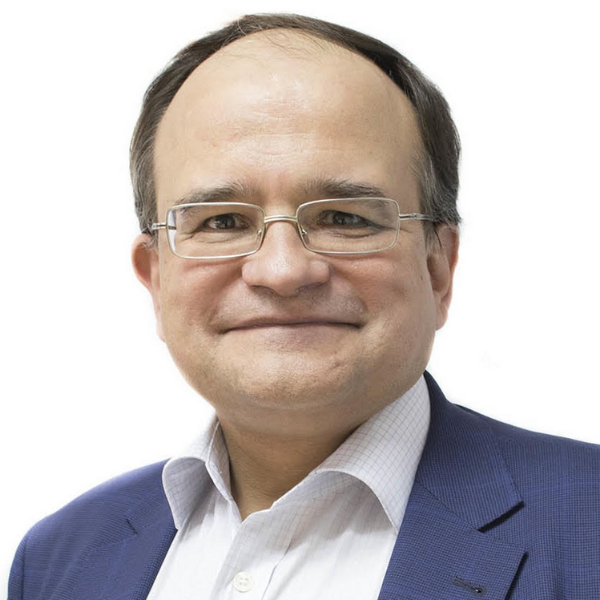
Executive Committee member, Club of Rome; FWAAS
Previously a researcher in systems dynamics and entrepreneur in the digital sector, Carlos Alvarez Pereira promotes the emergence of a civilizational shift towards equitable wellbeing within a healthy biosphere. He is member of the Executive Committee of the Club of Rome, where he co-leads the initiatives on Emerging New Civilization(s) and Intergenerational Dialogues. He keeps doing research in complexity thinking and the transformation of knowledge and innovation to respond to the existential needs of the 21st century.
He is also member of the Advisory Board of the International Bateson Institute and fellow of the World Academy of Art and Science (WAAS). He has been a lecturer and researcher at the Polytechnic University of Madrid (UPM), founder and manager during more than 20 years of several consulting companies in Spain, Switzerland, France and Germany, and founder of a non-profit research institution devoted to collaborative projects in the domains of complex systems and AI. He is is now leading a new initiative of the Club of Rome called The Fifth Element, to develop new ways of learning based on the principle “Life for learning, learning for life”.
Lene-Rachel Andersen

Author, Publisher & Economist; Member, Club of Rome
Danish author, indie publisher, economist, futurist, and philosopher. Lene Rachel was born and raised in Taastrup, a suburb west of Copenhagen, Denmark. Her first books were the series Baade-Og, her latest books are The Nordic Secret (2017), Metamodernity (2019) and Bildung (2020). In 2018, Andersen co-founded the Copenhagen based think-tank Nordic Bildung and the folk-Bildung association Fremvirke. In 2019, she was the main initiator of European Bildung Day and in 2020 the co-founder of the European Bildung Network. Since January 2019, Andersen has been a member of the Club of Rome.
Kehkashan Basu

Founder & President, Green Hope Foundation
Iconic youth leader, global influencer, environmentalist, champion of children’s rights, a Forbes 30 Under 30, TEDx speaker, Climate Reality Mentor, author, musician, peace and sustainability campaigner and a passionate advocate of women’s rights, Kehkashan Basu is a trail blazer who has been challenging the status quo and breaking social strictures and taboos which impede the progress and rights of future generations.
Winner of the 2016 International Children’s Peace Prize for her work on children’s rights and the environment, and the first-ever Voices Youth Gorbachev-Schultz Legacy Award for her work on nuclear disarmament, Kehkashan is a tireless advocate for the UN Sustainable Development Goals. She is a United Nations Human Rights Champion, National Geographic Young Explorer and the youngest ever Global Coordinator for the UN Environment Program’s Major Group for Children & Youth. She was named the youngest recipient of Canada’s Top25 Women of Influence, one of Canada’s Top 100 Most Powerful Women and is the Council Lead of the Toronto-St. Paul’s Constituency Youth Council.
Kehkashan is the Founder President of the social innovation enterprise Green Hope Foundation, which provides young people in 25 countries a networking platform to engage in the sustainable development process and take actions to mitigate climate change. Her internationally acclaimed work on sustainability has resulted in her being named one of the Top 100 SDG Leaders in the world and one of the Top 100 Most Powerful Women in Canada. She is the youngest member of Canada’s Women in Renewable Energy forum and the youngest Councillor of World Future Council. She has just been elected to the Board of Trustees of the Parliament of the World’s Religions, making her, at 20 years old, its youngest trustee in its 127-year history.
Kehkashan is a 2020 L’Oreal Paris Women of Worth Honouree, and the recipient of the 2019 Innovator of the Year Award for Sustainability Education, the John Muir Conservation Award for Habitat Restoration, the Energy Globe Award, the Turner Prize for Social Change and the Women Super Achiever Award. A powerful voice for future generations, she has spoken at over 200 United Nations and other global fora across 25 countries.
Olivia Bina

Principal Researcher, University of Lisbon; FWAAS
Olivia Bina’s research explores the (un)sustainability of our socio-economic and socio-technical models and their effect on life, working through the lens of ecological economics, environmental governance, sustainable futures and transition/transformation theories. The general idea is to assist in the search for worldviews and pathways that can balance our dependence on ‘ever smarter’ growth and technology with a rediscovery of the unlimited potential of prosperous human-other-than-nature connectedness. She is Principal Researcher at the Institute of Social Sciences University of Lisbon, Fellow of the World Academy of Art and Science (WAAS), and Adjunct Assistant Professor at the Department of Geography and Resource Management, Chinese University of Hong Kong (CUHK).
Olivia Bina completed a PhD in Geography (2004) and a Master of Philosophy in Environment and Development (1993) at University of Cambridge Department of Geography. Earned a Laurea in Political Sciences (International Law) in 1991 by Università degli Studi di Milano Facoltà di Scienze Politiche Economiche e Sociali. Her experience: involved in European and Chinese research projects in environmental governance, assessment, foresight and sustainable urbanisation. Assisted governments (Chinese, Bolivian, Maltese, Chilean, Central American, & various European countries), and international organisations (European Commission, World Bank, ECMT/OECD, European Environment Agency) in capacity building, developing institutional procedures and methodologies for assessing transport infrastructure, development and spatial plans. Previously worked as consultant (ERM London) and NGO (RSPB UK). And, she loves trees, moon-rise, gardening and creating something from a lump of clay.
Howard Blumenthal

Founder, Kids on Earth; Producer, Reinventing School, University of Pennsylvania; Member, TJD
Howard Blumenthal is an American television and new media producer, author, educator, and executive. Born and raised in New York City and nearby suburbs, he is the son of author and Concentration producer Norm Blumenthal, and the grandson of radio and music retailer Harry Blumenthal. He is best known as the co-creator and producer of the Peabody Award winning PBS series, Where in the World Is Carmen Sandiego?
Zbigniew Bochniarz

Professor, Kozminski University, Warsaw, University of Washington & Harvard Business School, USA; Trustee, WAAS
Zbigniew Bochniarz joined the Evans School faculty as a visiting professor in 2007. His teaching and research focus on sustainable development, comparative environmental policies, microeconomics of competition, and sustainability assessment of the transformation processes in post-communist countries. He is the author, co-author and/or editor of over 100 publications, including 15 books published on three continents in 12 languages. Since 2005, Zbigniew has been an affiliate member of the Microeconomics of Competitiveness program at Harvard Business School. He has previously served as a visiting professor and senior fellow from 1986 to 2006 at the University of Minnesota’s Hubert H. Humphrey Institute of Public Affairs. He also served on the faculty at the Warsaw School of Economics from 1968 to 1985. He is the founder of the Center for Nations in Transition at the Humphrey Institute, which has initiated more than 20 projects raising $38 million and training 44,000 people in the countries of Bulgaria, Czech Republic, Hungary, Poland, Romania, Slovakia, and Ukraine. Zbigniew served as chairman of Environmental Partnership for Central Europe (Polish Chapter) Board of Trustees, honorary president of the ETP Foundation in Romania, and founding member of the ETP foundations in Bulgaria and Slovakia, the Center for Environmental Studies in Budapest, the Institute for Environmental Policy in Prague, the Institute for Sustainable Development in Warsaw, and the Energy Efficiency Foundation in Poland. Zbigniew holds a Ph.D. in Economics from the Warsaw School of Economics and honorary doctorate from the Miskolc University.
Irina Bokova

Director General, UNESCO (2009-2017)
Irina Bokova is a Bulgarian politician and former Director-General of UNESCO (2009–2017). During her political and diplomatic career in Bulgaria, she served, among others, two terms as a member of the National parliament, and deputy minister of foreign affairs and minister of foreign affairs ad interim under Prime Minister Zhan Videnov. She also served as Bulgaria’s ambassador to France and Monaco, and was Bulgaria’s Permanent Delegate to UNESCO. Bokova was also the personal representative of Bulgaria’s President to the Organisation internationale de la Francophonie (2005–2009).
On 15 November 2009, she took office as the ninth Director-General of UNESCO, marking two firsts: she became both the first female and the first Southeastern European to head the agency. At UNESCO, Bokova advocated for gender equality, improved education and preventing funding for terrorism, especially by enforcing the protection of intellectual goods. A firm opponent of racism and anti-Semitism, Director-General Bokova led UNESCO’s activities on Holocaust
Mariana Bozesan

International Full Member, Club of Rome; FWAAS
Dr. Bozesan is an award-winning integral investor and successful serial tech-entrepreneur leveraging exponentially growing technologies to accelerate the implementation of the UN SDGs within Planetary Boundaries by 2030. She is the author of numerous books including Integral Investing: From Profit to Prosperity, a 2020 Report to the Club of Rome and the World Academy of Art and Science (WAAS). The prominent alumna of KIT (Karlsruhe Institute of Technology) is also the recipient of the Golden Angelina Award, as Europe’s Female Angel Investor of 2019, conferred by BAND, the German Business Angel Network and BAE, Business Angels Europe. In 2017, she was also named Entrepreneur of the Year by EBAN, the European Business Angel Network. Mariana is full member of the prominent international Club of Rome and Fellow of the World Academy of Art and Science (WAAS). She has an outstanding track record as an integral investor by de-risking early-stage investments in exponential technologies using the Theta Model, which she architected based on Ken Wilber’s integral theory. Her investment portfolio includes more than 40 successful investments to date. As a serial entrepreneur, she is the founder of several organizations including AQAL Capital, AQAL AG, and the AQAL Foundation. Her Moonshot is the Investment Turnaround that she launched together with the co-presidents of the Club of Rome and other members and numerous like-minded investors. Educated at Stanford University and KIT (Karlsruhe Institute of Technology), Dr. Bozesan earned an MSc (Dipl.-Inform.) in Artificial Intelligence and Computer Science from KIT and a PhD in Psychology.
Oana-Elena Brânda

ISACCL Expert; AFWAAS
Oana Branda is Lecturer at the Faculty of Communication Studies and International Relations, Titu Maiorescu University, Bucharest.
Afua Bruce

Chief Program Officer, DataKind; AAAS If/Then Ambassador
Afua Bruce is the Chief Program Officer at DataKind, a global nonprofit that harnesses the power of data science and AI in the service of humanity. Afua leads DataKind’s product offerings, center of excellence, volunteer community, and chapter network to partner with social sector organizations. Prior to joining DataKind, Afua was the Director of Engineering for New America’s Public Interest Technology program. At New America, Afua oversaw projects in technology and policy to improve outcomes in criminal justice reform, foster care, immigration, the opioid epidemic, and more. She also supervised the Public Interest Technology University Network. Previously, she spent several years leading science and technology strategy and program management in the Federal government—as the Executive Director of the White House’s National Science and Technology Council and in a variety of positions at the FBI. Before joining the Federal government, she started her career as a software engineer at IBM. Afua holds a degree in Computer Engineering from Purdue University, and an MBA from the University of Michigan.
Umadevi Bux

MD, Co-Founder, Give Foundation Guyana; President, “THE” Society International Chapter-Guyana
Mariona Cardona Valles

Coordinator for crisis management and multilateral affairs, University of Catalunya
Andrea Carlino

Artist, Author, Faculty Member, University of Geneva
After four years at the EHESS (Paris) and a doctorate discussed at the Scuola Superiore di Studi Storici in San Marino on the history of the dissection of the human body in the Early Modern period, he worked at the European University Institute on print culture in relation to medicine and natural philosophy, as well as on the circulation, consumption and collection of printed images in Europe (XVI-XVIII centuries).
He is currently in charge of the History of Medicine program at the Institut Ethique Histoire Humanités of the University of Geneva. As a visiting professor, he has also taught at the Ecole Normale Supérieure (Paris), at the Centre d’Etudes Supérieures de la Renaissance (Tours), and at the University of Western Australia.
In the field of collective research, he was responsible for the SNSF project “Care and therapeutic market in Ancien Régime Geneva”; he coordinated, with Michel Jeanneret, the “Medicine and natural philosophy” section of the ACI project “Style and sharing of knowledge, 1550-1700” (CNRS) and a research on the history of interpretation in medicine (Hermes medicus) as part of the ANR project “Hermès. Theories and histories of interpretation”. Since 2012, he has been leading an interdisciplinary research team on “Histoire et mémoire du tarentisme”, resulting from the collaboration of the Fondazione Notte della Taranta, the University Salento, University of Montreal and the iEH2 of the University of Geneva, and he directs the collection of the same name published by Carocci Editore (Rome). He has also organized PauLab (a residency for scholars, musicians and dancers) and the celebrations for the fiftieth anniversary of Ernesto de Martino’s death.
His research activities include medicine, humanist culture and literary practices (XV-XVIIth), medicine and theater in the Classical Age, uncertainty and skepticism in the perception of medicine, as well as the history of anatomy, the body and its representations. Beyond this particular attention to the social and cultural history of medicine in the 14th-17th centuries, he has in recent years engaged in a reflection on medicine, corporality and biopolitics in the contemporary world with the conviction that history can constitute a laboratory for thinking, rethinking and acting in the present. Storie Virali (2020), a daily column he was responsible for with Maria Conforti, Chiara Moretti and Virginia Silva, on the history and anthropology of the COVID-19 pandemic, is a product of that commitment.
Chantal-Line Carpentier

Chief, UN Conference on Trade & Development, New York; FWAAS
Chantal-Line Carpentier currently serves as Chief, United Nations Conference on Trade and Development (UNCTAD) New York office of the Secretary-General since 2014.
Previously, as Major Groups Coordinator for the UN Department of Economic and Social Affairs (UNDESA) Division for Sustainable Development, she facilitated the engagement of and consultation with worldwide non-State actors in the Sustainable Development Goals negotiations and the United Nations Rio+20 Conference. As Sustainable Development Officer for DESA (2007-2010), she served as focal point for food security, sustainable agriculture and sustainable consumption and production (SCP) where she successfully supported the negotiations of the 10 Year Framework of Program on SCP, now SDG12.
Prior to joining the United Nations, she served as Head, Environment, Economy and Trade Division of the North American Free Trade Agreement Commission for Environmental Cooperation (2000-2007), as Policy Analyst for the Wallace Institute for Alternative Agriculture (1998-2000) and as Postdoctoral fellow for the International Food Policy Research Institute (IFPRI) in the Brazilian Amazon (1996-1998).
Carpentier has consulted to the United Nations Development Programme, the World Bank, and the Organization for Economic Co-operation and Development. She was chosen for the Ideagen 2016 and 2020 “100 Individuals and Organization empowering women and girl”, is a 2006 Yale World Fellow and a United Nations Environment Programme Who’s Who’s of Women and the Environment. She has co-authored a book on Ethical Investing and regularly publishes journal articles, book chapters and Secretary-General reports.
Carpentier obtained her PhD. in Agricultural and Environmental Economics from Virginia Polytechnic Institute and State University, as well as both her MSc. and BSc. in Agriculture Economics from McGill University.
Carol Carter

President & CEO, GlobalMindED; AFWAAS
Carol Carter is a national and international student success author, speaker, and entrepreneur.
She began her career in college publishing with Prentice Hall and became the first female assistant vice president and director of college marketing at age 26. Later, as V.P. and publisher, she developed the widely acclaimed Keys to Success series to help college students connect their academic success to their future professional success. Now in its eighth edition, the series is available in multiple languages, and has been used by more than 3,000,000 students worldwide. In addition to the Keys series, Carol has also authored multiple other academic success books for middle, high school, and college-level students.
In 2000, she started LifeBound, a student success company that provides academic and professional coaching skills training for K-12 and college faculty, advisors and staff.
Carol’s business experience and her international work help shape her unique perspective on how institutions of learning, youth development, and businesses can prepare students from all backgrounds and levels of learning to thrive in an increasingly complex world. In 2014 she founded her non-profit venture, GlobalMindED, to bring together leaders in education, government, business, and social enterprise committed to improving access and equity to education, employment and health. Now in its sixth year, the annual conference attracts more than 1,200 attendees, including 100 first-generation college students who learn academic and professional skills while networking with companies who seek a diverse talent pipeline.
Carol is the Beta Gamma Sigma International Honoree for 2020, an award which had previously only gone to Fortune 100 CEOs. She has been a speaker in the Dominican Republic, Australia, New Zealand, Singapore, Malaysia, Kenya, China, Spain, and Switzerland, and attended the World Economic Forum in 2020.
Charita L. Castro

Director of Labor Affairs, Office of the U.S. Trade Representative (USTR)
Charita Castro, PhD is currently a Deputy Assistant United States Trade Representative for Labor Affairs where she oversees its global forced labor and human trafficking portfolio, multilateral and regional fora concerning trade and labor (WTO, G7, G20, ASEAN, APEC, ILO), and traderelated labor issues in East Asia, including China, and Southeast Asia. She has 20 years of federal government experience in senior policy, research, and management positions working collaboratively to deliver concrete results that improve the lives of vulnerable communities, especially those in or at-risk of child labor, forced labor, and human trafficking.
Prior to USTR (2011 – 2018), Dr. Castro served as the inaugural Chief of Research and Policy for the Office of Child Labor, Forced Labor and Human Trafficking at the U.S. Department of Labor, managing a 25-person staff of civil servants; overseeing a $80 million portfolio of international projects; and supervising the publication of the Department’s three Congressionally-mandated and Presidential Directive reports on child labor and forced labor, including the U.S. government’s Sweat & Toil app, the first-ever human rights focused mobile application for the federal government.
Dr. Castro began her federal career as a Presidential Management Fellow in 1999, and also served at the U.S. Census Bureau and Department of Health and Human Services. She received her Doctor of Philosophy in public policy from George Washington University; Master of Social from Washington University in St. Louis; and Bachelor of Science in psychology from Tulane University. From 2004 – 2005, she was a Fulbright fellow to the Philippines researching the impact of hazardous work on child laborers in agriculture, and she is currently serving one of 125 IF/THEN Women in STEM Ambassadors to promote the next generation of female scientists.
Elif Çepni

Professor, University of Karabuk Business School; AFWAAS
Elif Çepni is a professor of economics and decision making. She is a professor in the University of Karabuk Business School.
Elif is also working actively to support the formulation of strategic plans and future projects of companies, institutions and governments by using the participatory foresight method. She works on anticipation and foresight for improving the decision making process.
In 2011, she was appointed as the Rector of Doğuş University, a position she held until 2013. Prof. Dr. Cepni worked at Bahcesehir University/Istanbul as a Vice Rector in charge of international and academic affairs between 2013-2017.
She is the author of “A Guide for Economic and Financial Indicators”, as well as “The Economy of Turkey in Retrospect “and “Let’s Get Developed”. In addition to her writing, she has also taught courses on “Microeconomics”, “Macroeconomics”,“Development Economics” and “Strategic Planning and Strategic Foresight.” She often delivers seminars on the interpretation of economic and financial indicators to banks and companies and is frequently invited as a speaker to various conferences and seminars.
She also volunteers as a development consultant for a London-based NGO working with African countries. She would like to combine economic literacy with intellectual foresight. She believes that this may eliminate time inconsistency and credibility problems for policy makers, CEOs and managers. Using collective intelligence may create different roadmaps for countries, societies and institutions.
She is currently working on the challenges of postnormal times and believes in the importance of post-normal science. Systems View of Thinking, Complexity, Chaos and Decision Making are her main interest areas.
Matthew Chodkowski

Adjunct Professor, Founding Director, The Institute for Postindustrial Leadership, University of Indianapolis
The professional career of Matthew Chodkowski spans forty years working in the private sector in General Management, Human Resource Management, and Organizational Effectiveness & Development – holding positions as General Manager, District Manager, Director, Strategic Planner, Global Consultant, Vice President, Chief Operating Officer and Board of Director. Dr. Chodkowski also established Dynamic Development Enterprises in 1985, a freelance training and consulting practice providing services to business and industry in the private, public, and non-profit sectors.
In the academic world, Dr. Chodkowski held the role of Lead Consultant at Kalamazoo Valley College Technical Applications Center, and has taught courses in Management, Human Resources, Organizational Behavior, Organizational Development, and Leadership at the undergraduate and graduate levels over the past twenty-five years at a number of colleges and universities including: Kellogg College; Kalamazoo Valley College; Davenport College; Western Michigan University; SUNY at Stony Brook; Ball State University; University of Indianapolis; and Purdue University.
Chodkowski has designed, developed and delivered personal growth and professional development workshops and programs in supervision, management, and leadership, and has created and facilitated both small and large-scale organizational change and effectiveness interventions. His expertise in human capital includes: Talent Management & Succession Planning, Knowledge Management, Organizational Intelligence, Emotional Intelligence, Developmental Assessment Centers, Competency Modeling, Organizational Surveys and Diagnostics, and Executive Development & Coaching.
Currently, Chodkowski is teaching, training, conducting research, and focusing his attention on 21 st Century Leadership, the Psychology of Change, and Transforming Organizational Culture. He is the creator of the LEAD Program – A Journey of Discovery, and was instrumental in establishing the Institute for Postindustrial Leadership.
Dr. Chodkowski believes that the key to organizational effectiveness is transforming organizational culture – one leader at a time. His personal and professional mission is to help organizations and their members learn to help themselves through the Institute for Postindustrial Leadership.
Emil Constantinescu

President of Romania (1996-2000); President, Institute for Advanced Studies in Levant Culture and Civilization; Trustee, WAAS
Emil Constantinescu is currently professor at the Bucharest University Doctoral School and was Romanian President from 1996 to 2000.
From 1966, he was assistant, lecturer, at the Faculty of Geology at the University of Bucharest. He is author of 12 specialty books. He published over 60 studies in the most important scientific magazines from Romania and abroad.
Within his civic activities, he engages in the effort to set up the democracy in Romania, to defend human fundamental rights and freedom, and in building the civil society. Proposed by the University Solidarity and the Civic Alliance, as unique candidate of the RDC for the presidential elections in 1992. After this first political experience, the Democratic Convention elected him as its president. Their party won in 1996 the local and parliamentary elections and Emil Constantinescu was elected through direct vote President of Romania on a four-year term. During his presidential mandate (1996-2000) Romania has engaged in a large-scale process of reform in economy, justice and administration. He opened the crucial way for Romania towards NATO and EU.
Later, Emil Constantinescu resumed his academic career and made further steps to consolidate the nongovernmental organizations role. He launched the XXI European Generation Forum and founded the Romanian Academic Forum. In 2008 founded the New Democracies Forum. He is awarded several prizes, among others the Prize of Romanian Academy; Palmas Academicas; Golden and Honorific medals from Comenius University in Bratislava. He was president of the international commission for supervising the parliamentary elections (2001) and presidential elections (2007) in Senegal and of the parliamentary elections in Tunisia (2011).
He graduated in judicial studies from the Law Faculty of the University of Bucharest and is assigned as probationer judge at Pitesti Local Court. The political climate forced him to attend the courses of the Geology. He became a doctor in Geology from the University of Bucharest; Doctor ès Sciences from the Duke University, USA.
Thais Corral

Founder of SINAL and School for Agents of Transformation
Thais Corral is a social innovator and entrepreneur as well as a women’s rights and ecological activist. She is the founder of Sinal do Vale, a Brazilian regeneration campus for action learning located near Rio de Janeiro, which serves as a centre for the regeneration of ecosystems, communities and individuals.
She is one of the leaders who actively participated in the organization of the Earth Summit in 1992. Together with the Nobel Prize winner Wangari Mathaai and American Congresswoman Bella Abzug, she was a co-founder of WEDO (Women, Environment and Development Organization) and two well respected non governmental organizations in Brazil: REDEH (Network of Human Development) and CEMINA (Communication, Education and Information on Gender), which supported the creation of a network of 400 women’s radio programs all over Brazil.
For her accomplishments, she was awarded the “Woman of the year 2001” title by the Brazilian National Council of Women. As part of WEDO, she won the UNEP Global Champions in 2006 and the Tech Interactive Award for social technologies that benefit the economy, by Silicon Valley.
Arthur Dahl

President, International Environment Forum, Geneva, Switzerland
Arthur Lyon Dahl is President of the International Environment Forum and a retired senior official of UN Environment, with over 50 years experience in sustainability, international environmental assessment and governance, and systems science, including more than 20 years in intergovernmental organisations.
A biologist by training (AB, Stanford University; PhD, University of California, Santa Barbara), specializing on small islands and coral reefs, he lived and worked for many years in the Pacific Islands and Africa before settling in Geneva, Switzerland. He has participated in UN Conferences on environment, sustainable development and climate change, including Stockholm 1972, Johannesburg 2002, Copenhagen 2009, Rio 2012 and Paris 2015, and was in the secretariat for the United Nations Conference on Environment and Development (Earth Summit, Rio de Janeiro 1992).
Dr. Dahl has been a frequent consultant on sustainability, environmental assessment and indicators to the World Bank, the World Economic Forum, UNESCO and UNEP, and Co-coordinated the UNEP Major Groups & Stakeholders Advisory Group on International Environmental Governance. He teaches and lectures widely and on-line. His books include: “Unless and Until: A Baha’i Focus on the Environment”, “The Eco Principle: Ecology and Economics in Symbiosis”, and “In Pursuit of Hope: A Guide for the Seeker”.
Frank Dixon

Founder, Global System Change; FWAAS
Frank Dixon established Global System Change in 2005 when he recognized that system change would become the dominant sustainability issue of the 21st Century. His experience as the Managing Director of Research for the largest ESG research company (Innovest) and sustainability advisor to Walmart and other organizations showed that flawed economic and political systems compel all companies to degrade the environment and society. He conducted several years of multidisciplinary research to produce a true whole system approach to sustainability (described in the Global System Change books). The approach provides practical system change strategies for all major areas of society. In the corporate and financial sectors, System Change Investing represents the most advanced and effective sustainability strategy. Frank Dixon advises businesses, investors and governments on sustainability and system change. He has presented at many corporate and financial sector conferences around the world, as well as leading universities, including Harvard, Yale, Stanford, MIT and Cambridge. Frank Dixon is a Fellow of the World Academy of Art and Science. He has an MBA from the Harvard Business School.
Piero Dominici

Scientific Director, International Research and Education Programme on Human Complex Systems; AFWAAS
Prof. Piero Dominici, Associate Fellow of the World Academy of Art & Science, PhD in Social Theory and Research (Sapienza University of Rome), teaches Sociology of Social Complexity and Intelligence, Networks, and Complex Systems at the University of Perugia.
He currently performs activities of research, education and consulting for public and private organizations, and has coordinated projects of national and international renown. As scientific researcher, educator, author and international speaker, his main areas of expertise and interest encompass (hyper)complexity, interconnectivity, interdisciplinarity and knowledge sharing in the fields of education, systems theory, technology, innovation, intelligence, security, citizenship and communication.
Member of the MIUR Register of Revisers, (Italian Ministry of Higher Education and Research), and of the WCSA (World Complexity Science Academy), he is also standing member of several of prestigious national and international scientific committees. He has participated as a speaker to national and international conferences, and he is the author of numerous essays, scientific articles and books.
He has a Ph.D. in “Social Theory and Research“ at the University of Rome “La Sapienza” and, in the past, he won a Post-Doc Fellowships at the Department of Mechanical and Industrial Engineering of the University of Roma Tre.
Fadwa El Guindi

Retiree Anthropologist at the University of California, Los Angeles; Trustee, WAAS; Member, TJD
Dr. Fadwa El Guindi, Retiree UCLA, former Distinguished Professor at Qatar University, graduated from the American University in Cairo, BA, Cum Laude, in 1960, and, in 2017, was its selected honoree as a Distinguished Alumna. She holds a Ph.D. in 4-field anthropology from the University of Texas in Austin (1972). El Guindi had joined the Social Research Center (AUC), and its research team on the Ford Foundation-funded Nubian Research Project.
El Guindi’s analysis of her data attracted the attention of eminent US anthropologists leading to a limited scholarship to the US to pursue her doctorate. At UT, Austin, she followed her ‘love’ of anthropology conducting field research in Oaxaca, Mexico, for 23 months of total immersion throughout the period of more than 12 years.
She resigned from the SRC to accept her first faculty position at UCLA. Her fieldwork experience spans three cultural regions: Nubia, the Zapotec, and the Arabian Gulf. She has published 8 academic books, 3 award-winning visual ethnographies, and more than 140 research articles, many in high impact factor scientific journals, and public Op-Ed pieces in major venues. She was interviewed globally and is the recipient of many awards and honors. Her expertise on the Middle East brought her to the Clinton White House, and she frequently gave lectures to diplomats assigned to the Middle East at the Foreign Service Institute of the US Department of State. Her publications appeared in English, Arabic, French, Russian, Spanish, Italian, German, and Indonesian. She is elected Trustee at the World Academy of Art & Science and Research Expert Consultant at Qatar National Research Fund.
Rabbi Elie Abadie

Co-chair of the Sadat Congressional Gold Medal Committee; Senior Rabbi of the Jewish Council of the Emirates, UAE
Amanda Ellis

Executive Director, Asia Pacific, Global Institute of Sustainability and Innovation, ASU; FWAAS
Former UN Ambassador Amanda Ellis currently serves as Executive Director, Asia-Pacific for the Global Institute of Sustainability and Innovation and Senior Director, Global Partnerships and Networks for the Julie Ann Wrigley Global Futures Laboratory at Arizona State University. She is co-chair of the WE Empower UN SDG Challenge, launched by the UN Secretary General, the President of the World Bank and the Council of Women World Leaders in 2018 to promote inclusive entrepreneurship.
Previous roles include New Zealand’s Head of Mission and Ambassador to the United Nations in Geneva, inaugural Ambassador for Women and Girls and Prime Minister’s Special Envoy to Francophone Africa. Ms Ellis played a key role in New Zealand’s successful UN Security Council bid, subsequently serving as co-chair of the UNSC High Level Working Group on Humanitarian Access into Syria. From 2010-13 as Deputy Secretary International Development and the first woman to head the New Zealand Aid Programme, Ms Ellis was responsible for an annual budget of over $0.6 billion. Prior to this, Ms. Ellis was Lead Specialist in the Poverty Reduction and Economic Management Group at the World Bank Group in Washington D.C., where she managed the World Bank President’s Global Private Sector CEO Leaders Forum and led the Doing Business gender research project which created “Women, Business and the Law.” While at the World Bank, she worked with the Economist Intelligence Unit to create the Women’s Economic Opportunity Index. Ms. Ellis also founded the International Finance Corporation’s gender program, where she developed the first lines of credit for women entrepreneurs in Africa delivered through local banks. In the late 1990s she served in senior executive roles at Westpac Banking Corporation in Australia, including as Head of Women’s Markets and National Manager Women in Business, growing a new business rapidly to over half a billion dollars in annual revenues within just three years.
Ms. Ellis is the author of two best-selling Random House books, Women’s Business, Women’s Wealth and Woman 2 Woman, lead author of five research titles in the World Bank Directions in Development series on gender and growth in Africa, the Middle East, East Asia and the Pacific and co-author of the 2020 Gender Equality and Governance Index. A founding member of the Global Banking Alliance for Women, Ms. Ellis is the recipient of the TIAW Lifetime Achievement Award for services to women’s economic empowerment, the East-West Center Distinguished Alumni Award, the Columba College Distinguished Alumna Award and NZ Business Hall of Fame.
Ms. Ellis serves on the advisory boards of the Global Governance Forum, UN Target Gender Equality, Blue Planet Alliance, Hawaii Green Growth, Bishop Museum, Institute for Climate and Peace, the East-West Center Board Of Governors and the Council on Foreign Relations Advisory Committee on economic inclusion. She is an adjunct Senior Fellow at the East-West Center in Hawaii and a Fellow of the World Academy of Art and Science, a member of NZ Global Women and an honorary member of BPW International and Rotary International.
Ms. Ellis holds a BA First Class Honors degree in French and Economics from the University of Otago, New Zealand, an MA degree from the University of Hawaii at Manoa which she earned on an East-West Center scholarship, an LTCL from Trinity College of London. She has completed executive education programs at Harvard Business School and the Kennedy School of Government, the Stanford Graduate School of Business and INSEAD, and the Asia Pacific Center for Security Studies Transnational Security Course for two star generals and civilian equivalent.
Maria Espinosa

President, 73rd UN General Assembly, Ecuador; FWAAS
Ecuadorian scholar, diplomat and politician. Ms. Espinosa has held several leadership positions serving as Minister of Foreign Affairs, of Defense, and of Cultural and Natural Heritage. She was the first female Ambassador of Ecuador to the United Nations in New York and in Geneva.
Most recently, she served as the President of the United Nations General Assembly, becoming the fourth woman in history and the first from Latin America and the Caribbean to preside over this body.
Ms. Espinosa is an expert in international affairs and multilateralism, defense and security, sustainable development, climate change, gender equality and indigenous peoples’ rights.
She is currently member of The Lancet COVID-19 Commission; Co-Chair of the Independent Commission on Multilateral Approaches to Pandemics, Security, and Sustainable Development – COMPASS – at the International Peace Institute; Councilor of the World Future Council; member of the multi-Stakeholder Steering Committee of the Generation Equality, the Beijing + 25 process and the Generation Equality Forum; member of the Political Advisory Panel of the Universal Health Coverage 2030 Movement, UHC2030; member of the Group of Women Leaders for Change and inclusion, GWL; member of the Strategic Committee of the SDSN Science Panel for the Amazon, SPA; member of the High-Level Advisory Council for the United Nations Alliance of Civilizations, UNAOC; and Founding Member of the Centre for UN Studies at the University of Buckingham.
M. Espinosa acts as a Goodwill Ambassador for the Latin American and Caribbean Fund for the Development of Indigenous Peoples, FILAC and for Common Home of Humanity.
Rodolfo Fiorini

Emeritus Professor, Politecnico di Milano University; Trustee, WAAS
Prof. Rodolfo A. Fiorini’s interests within WAAS focus on global leadership education for human security and safety, environmental, sustainable, economic, and social responsibility problems. His teaching and research are centred on sustainable development, comparative environmental policies, competition and cooperation, multilateral systems, and sustainability assessment of the transformation processes. He is Emeritus Professor at Politecnico di Milano University, Milano, Italy, and received his Ph.D. in Energetics (Economy of Energy) in 1984 and in Bioengineering in 1989. He is the founder and scientific director of the Research Group on “Computational Information Conservation Theory” (CICT). Since 2009, he has been responsible for teaching courses on personal and social wellbeing. He is the author, co-author and/or editor of over 400 national and international publications and presentations, including several books. Currently, he is devoted to chairing and organizing international conferences, working groups, meetings etc., for cultivating young minds to be ready for the transformation to the incoming wellbeing society.
Main interests include complex systems science; global arbitrary multiscale system science (GAMSS); quantum field arithmetic theory; quantum resonance; quantum entanglement; deep learning; machine learning; collaborative innovation; cooperative intelligence; artificial intelligence; natural stupidity; social sciences; neuroscience; cognitive systems; brain-computer interface; hybrid reality; digital twin; phygital ecosystem; systems thinking; autonomous system; symbiotic system science, human-centered symbiotic systems science. Prof. R. A. Fiorini is a member of theWAAS Board of Trustees, IEEE, EMB, AAAS, and an JTiBS Editorial Board Member.
Paula Garcia Todd

Global Strategic Manager, International Flavors & Fragrances (IFF)
With a steadfast desire to help patients through pharmaceutical technologies, Paula Garcia Todd has made significant contributions in drug delivery through her work at Dow Chemical, DuPont, and now IFF (International Flavors & Fragrances) for the past 18 years. Her vast experience ranges from process engineering in manufacturing settings with small and large molecule active pharmaceutical ingredients, to researching and creating patented polymer innovations to solve critical formulation issues for pharmaceutical companies around the world. Her technical success led to various customer-facing roles, including marketing and product management, progressing to her current position as Global Strategic Manager at IFF. She is currently responsible for a $500MM portfolio of pharmaceutical ingredients found in 1 out of every 3 oral solid medications taken globally.
Paula is passionate about introducing STEM to children. She has volunteered on boards and organizations focused on increasing the number of female and under-represented students in STEM fields, especially engineering, for the past decade. She has developed new K-12 programs aiming to improve understanding of the real world applicability of STEM while changing the face of what an engineer looks like. She has been active in diversity, equity, and inclusion advocacy within industry, working through women’s and Latinx employee resources groups at each of her companies to create awareness and improve company cultures. In 2019, she was named a AAAS IF/THEN® Ambassador by the American Association for the Advancement of Science for her devoted work in STEM outreach and will be featured in a life-sized statue exhibit of outstanding women in STEM fields (debuting in Dallas, TX in 2021). In 2020, she was named both Woman of the Year in Engineering by Women in Technology and a Community Trailblazer by STEMConnector’s Million Women Mentors.
Paula holds a Bachelor of Science and Master of Science in Chemical Engineering from the Pennsylvania State University. She and her husband, Doug, have 3 children and live in Georgia. She is originally from Brazil and speaks Portuguese and Spanish fluently.
Mihai Gîrțu

Vice-Rector, “Ovidius” University of Constanța
Professor of physics in the Faculty of Applied Sciences and Engineering, Dr. Gîrțu is a graduate of the University of Bucharest (1990) and of the Ohio State University (MS 1996 and PhD 1998). Presently, he serves as vice-rector for research and innovation.
Jonathan Granoff

President, Global Security Institute; FWAAS
Mr. Granoff is the President of the Global Security Institute.
He is an attorney, author and international advocate emphasizing the legal and ethical dimensions of human development and security, with a specific focus on advancing the rule of law to address international security and the threats posed by nuclear weapons.
He serves on numerous governing and advisory boards including: Lawyers Committee on Nuclear Policy, Fortune Forum, Jane Goodall Institute, the NGO Committee on Disarmament, Peace and Security, Parliamentarians for Nuclear Nonproliferation and Disarmament, and Middle Powers Initiative. He is a recipient of the Rutgers University School of Law’s Arthur E. Armitage Distinguished Alumni Award and a 2014 nominee for the Nobel Peace Prize. He is the Senior Advisor and United Nations Representative of the Permanent Secretariat of the World Summits of Nobel Peace Laureates, Ambassador for Peace, Security and Nuclear Disarmament of the Parliament of the World’s Religions, former Adjunct Professor of International Law at Widener University School of Law, and Chair of the Task Force on Nuclear Non-proliferation and Advisor to the Committee on National Security of the International Law Section of the American Bar Association.
Mr. Granoff is the award-winning screenwriter of The Constitution: The Document that Created a Nation and a prolific author. He has been a featured guest and expert commentator on numerous radio and television programs and has presented expert testimony in the Parliaments of Canada and the United Kingdom as well as the US Congress and the United Nations.
Mr. Granoff earned his BA (cum laude) from Vassar College and his Juris Doctorate from Rutgers University School of Law.
Dan Grigorescu

ISACCL Scientific Director
Dan Grigorescu is the Scientific Director of the Institute for Advanced Studies in Levant Culture and Civilization and Guest Editor of the UK-based Geoconservation Research journal.
Maja Groff

Visiting Professor, Leiden University, Convener, Climate Governance Commission, Global Challenges Foundation (Sweden)
Maja Groff is an international lawyer based in The Hague, who has assisted in the development and servicing of multilateral treaties, also working at various international criminal tribunals and teaching regularly at the Hague Academy of International Law. She has worked on existing and potential global treaties addressing, inter alia, areas of child law, issues disproportionately affecting women, persons with disabilities, access to legal information and a range of other topics, as well as on the pioneering International Hague Network of Judges. She has regularly conducted liaison work with international organisations (including various UN bodies), international professional associations, NGOs and has played a key role in the convening of a range of international legal expert groups.
Maja has drafted international legal policy documents for inter-governmental processes and published academically on private and public international law, human rights and global governance (e.g., Cambridge University Press, Edward Elgar, Hart, Intersentia). She holds degrees from McGill (civil law and common law), Oxford and Harvard Universities, and is an attorney admitted to practice in the state of New York, formerly working in corporate law. She has served on the International Law and UN Committees of the New York City Bar Association, and the (Advisory) Boards of BCorp Europe and ebbf, organisations devoted to ethical business. She was a winner of the 2018 New Shape Prize for global governance innovation.
Ameenah Gurib-Fakim

President of Mauritius (2015-2018)
Ameenah Gurib-Fakim has been: Managing Director of CIDP R and I; Professor at the University of Mauritius where she served successively as Dean and Pro Vice Chancellor and manager at the Mauritius Research Council.
She earned a BSc Chemistry – Uni. Surrey (1983), PhD – Uni Exeter, UK (1987). Recipient of 5 DSc, she has authored books and articles in the field of sustainable development.
Elevated Chevalier L’Ordre des Palmes Academiques, Government of France in 2010. She received: l’Oreal- UNESCO Prize for Women in Science (2007), the African Union Commission Award for Women in Science (2009). On 05 June 2015, she was sworn in as the 6th President and the First Female President of the Republic of Mauritius until 2018. Elevated to the Order of CSK and GCSK (GoM), she received, inter alia: Legion d’Honneur,
Government of France (2016); Order of St George, Semperopernball, Dresden, Germany; ‘Trailblazing award for political leadership’ by World Women Leaders Council, Iceland (2019). In June 2016, she was in the Forbes List for the 100 ‘Most Powerful women in the world’, 1st among Top 100 Women in Africa Forbes List 2017, 2019. Honoured as one of Foreign Policy’s 2015 Global Thinkers and Honorary President of the International Engineering & Technology Institute (2020).
In 2019, she received the ‘Trailblazing award for political leadership’ by the World Women Leaders Council in Iceland. In 2020, she was elected Honorary President of the International and Engineering Institute and received their 2020 5th IETI Annual Scientific Award. She also received the IAS-COMSTECH Ibrahim Memorial Award from the WIAS in Jordan.
In June 2016, she was in the Forbes List for the 100 ‘Most Powerful women in the world’ and 1st among the Top 100 Women in Africa Forbes List 2017, 2019. She is honoured as one of Foreign Policy’s 2015 Global Thinkers.
Ana Hanhausen

POP Honorary Mentor, Mexico
Ana Hanhausen is the youth leader of the Protect Our Planet Movement and she collaborates on the POP Movement’s POP Ocean Initiative, which aims to educate, mentor and support youth-led marine conservation projects.
Since 2018, she has collaborated with Plastic Oceans Mexico, which is part of an international organization working to minimize plastic pollution in the ocean. She has participated as both speaker and organizer of events and activities to raise awareness on global environmental issues, including the International Sustainability Congress in her university (2017 and 2019) and the World Sustainable Development Forum in 2020, where she presented the perspective of youth on the urgent need for climate action.
She was awarded the Youth Medal of Merit by Mexico City’s Congress for her record in raising awareness on climate change and motivating the youth to act and become a part of the solution.
She graduated with honors as a Chemical Engineer from Mexico City’s Iberoamerican University.
Jon Hans-Coetzer

Academic Dean, EU Business School Online Campus
Dr. Coetzer is a senior higher education leader with over 15 years of experience. He served as Chief Academic Officer of Sommet Education, and most recently as Academic Dean of the European University’s campuses in Switzerland, Germany, and London (UK). He also served as a member of the strategic management team. He designed and led academic programs in Germany, Australia, Thailand, Japan, China, Vietnam, Bosnia and Herzegovina, Croatia, South Korea, and Kazakhstan. He forged collaborative partnerships with prestigious global and regional institutions and organizations.
Jon-Hans has further developed a solid experience of managing collaborative partnerships with UK partners; Bournemouth University, Derby University, and Roehampton University. These also include academic partnerships in the U.S.A; Boston University and Pace University.
He worked as Project Coordinator in Strategic Crisis Management Training for the Federal Chancellery in Bern. Jon-Hans has also worked as senior delegate of the International Committee of the Red Cross (ICRC) in more than fifteen countries and project coordinator for the United Nations Institute for Training and Research (UNITAR). Jon-Hans’ research interests focus on the cross-cultural challenge of framing attuned leadership in the international classroom for positive change in higher education in the 21st century, including delivering results within the UN 2030 Agenda-framework. Currently, he serves as the Chair of the International Development Programming Board of the World Humanitarian Forum and as a Board Member of the World Communication Forum, Davos.
Isabelle Hau

Impact Funder
Over the past two decades, Isabelle C. Hau has innovated at the intersection of philanthropy, impact investing, and education, to make high quality learning accessible and joyful for all children starting at birth.
Isabelle was a founding partner at Imaginable Futures, the education venture of The Omidyar Group. Prior, she led the U.S. education initiative at Omidyar Network. Her work has directly impacted millions of learners and families, with many inter-generational ripples of change underway.
Earlier in her career, she was an executive director at Morgan Stanley and a director at ImpactAssets.
She is currently authoring a book on the future of learning. She also serves on the boards of Better World Ed, EDC, Sonen Capital, Think Equal, and is advising multiple high impact organizations. Over the course of her career, she has held various for-profit and non-profit governance roles.
In November 2021, she was awarded the Global MindED “Inclusive Leader Award” in Early Childhood Education.
Isabelle earned an MBA from Harvard Business School and graduated from ESSEC and Sciences Po Paris.
Richard Hellman

Environmental Consultant; Attorney; President, Friends of UNEP USA and Middle East Research Center Ltd.
Richard Hellman is an American environmental consultant, attorney, and the President of the Middle East Research Center Limited (MERCL). He was named among the United Nations Environment Programme (UNEP) Global 500 Roll of Honour. Hellman is also President of the Friends of UNEP, USA.
Hazel Henderson

Founder, Ethical Markets Media, USA; FWAAS
Hazel Henderson is the founder of Ethical Markets Media, LLC and the creator and co-executive Producer of its TV series. She serves as an Honorary Judge of the Youth Citizen Entrepreneur award and the KATERVA Global Awards for Sustainability. She is an Honorary Member of the Club of Rome. She is a world-renowned futurist, evolutionary economist, a worldwide syndicated columnist, consultant on sustainable development, and author of several of The Axiom and Nautilus award-winning book Ethical Markets: Growing the Green Economy (2006).
Since becoming a full-time media executive in 2004, Hazel has held various board positions including Worldwatch Institute (1975-2001), Calvert Social Investment Fund (1982-2005), and other associations. She remains on the International Council of the Instituto Ethos de Empresas eResponsabilidade Social, Sao Paulo, Brasil and she is a Fellow of the World Business Academy. She co-edited, with Harlan Cleveland and Inge Kaul, The UN: Policy and Financing Alternatives, Elsevier Scientific, UK 1995 (US edition, 1996), and co-authored with Japanese Buddhist leader Daisaku Ikeda, Planetary Citizenship (2004). In addition, she held the Horace Albright Chair in Conservation at the University of California-Berkeley, and advised the U.S. Office of Technology Assessment, the National Academy of Engineering and the National Science Foundation from 1974 to 1980.
Hazel Hederson was awarded numerous prizes and honours, including: the 1996 Global Citizen Award. In 2007, she was elected a Fellow to Britain’s Royal Society of Arts, founded in 1754. In 2010, 2012, 2013 and 2014, she has been honoured as one of the “Top 100 Thought Leaders in Trustworthy Business Behaviour” by Trust Across America. In 2012, she was named to the Post Growth Institute (En)Rich List as a top 100 luminary inspiring global prosperity beyond economic wealth. In 2013, she was inducted into the International Society of Sustainability Professionals Hall of Fame.
She holds Honorary Doctor of Science degrees from the University of San Francisco; Soka University (Tokyo); Worcester Polytechnic Institute, Massachusetts (USA); and Wilson College, Pennsylvania (USA).
Sue Henderson

President, New Jersey City University
Dr. Sue Henderson has served as the 12th president of New Jersey City University since August 2012. Now in her ninth academic year in 2020-21 as the first female president in the institution’s more than 90-year history, since her arrival, she has accomplished a range of transformational initiatives to position NJCU as a game-changing force in a global landscape.
She established the NJCU School of Business and relocated it to a state-of-the-art facility in Jersey City’s financial district along the Hudson waterfront, while hiring its founding Dean and more than half of its faculty. During this time, more than five new academic programs, a new General Education program and an Honors Program were all developed.
Dr. Henderson spearheaded the implementation of a $400 million project to redevelop the institution’s West Campus into a modern urban village that will include student and residential housing, retail, restaurants, open spaces and a pedestrian-friendly layout to aesthetically and economically revitalize the region. A contemporary academic and performance space will serve as the new home to the internationally known Joffrey Ballet School.
Furthermore, Dr. Henderson ensured NJCU tuition and fees would remain among the lowest of all public four-year institutions in New Jersey, and implemented the NJCU Debt-Free Promise Program to make college education accessible and affordable.
A recipient of numerous awards for her work as an educator and administrator, she holds a Ph.D. in Higher Education from the University of Georgia, and bachelor’s and master’s degrees in math education from Georgia State University.
Yi-Heng Cheng

Professor, Tongji University, Shanghai, China; FWAAS
Graduated from Taipei Institute of Technology (TIT), Taiwan, and Karlsruhe Institute of Technology (KIT), Germany, as Dr.-Ing. of Chemical Engineering, Yi-Heng Cheng worked in BASF Group Companies in Ludwigshafen, Singapore, Hong Kong and Shanghai, covering Sales and Marketing, Product Management and EHS. He was last in charge of implementation of the responsible Care Program and Sustainable Development for BASF in Asia Pacific, before moving to CEO of Knauf Asia. He was chairman of chemical associations in Singapore (SCIC), Co-chair of Plasticizer Workgroup of Association of International Chemical Manufacturers in Hong Kong (AICM), chairman of Emergency Response Workgroup of Foreign Investors in Caojing Chemical Park. He is now Chief Operating Officer of CBI Investment Management Ltd. (HK) on Clean Coal and Hydrogen Technologies, CO 2 Resourcing. He has been elected as Executive Committee Member of the Club of Rome and Fellow of World Academy of Art and Science.
Book translations into Chinese: “Nutzen wir die Erde richtig?” by Friedrich von Schmidt-Bleek (2008); “Faktor 5” by Ernst von Weizsäcker et.al. (2010); “Blue Economy” by Gunter Pauli (2012); 50 th anniversary report to Club of Rome “Come On”(2018/19). He is now an adjunct professor at College of Design and Innovation, Tongji University, and has founded the “econoVation lab”, co-founded “Creative Systemic Research Platform” and “0 Carb 2050 Platform”. Recently he has co authored a chapter on “Social Acceptance and Societal Evolution for Novel Hydrogen Technology” (An EU book series to be published in 2021).
Erich Hoedl

Former Rector, Wuppertal University and The Graz University of Technology; WAAS Trustee
Erich Hoedl had his education in mathematics and economics in Paris and Vienna, Habilitation at Darmstadt University of Technology. He has been Visiting Scholar at Columbia University/New York (1973/74), Guest Professor at Heidelberg University and University of Vienna, Professor at Kassel University and Wuppertal University, since 2005 Emeritus. Rector of Wuppertal University (1991-99), Rector of Graz University of Technology (2000-03), Vice-President of European Academy of Sciences and Arts (2005-15) and is Trustee of World Academy of Art & Science. Since the 1970s he has been driving consultancies for the German Government, European Union and United Nations. Publication of a dozen books on political economy, economic policy and European Integration.
Yunnus Ibrahim Hussain

Student, Development Advocate, SDGs Program Coordinator, NGIC Young Leader, Nigeria
Passionate about strategic volunteering, economic development and social inclusion, Yunus Ibrahim Hussain is a Nigerian-born development advocate for the underserved rural communities in northern Nigeria.
He has served as a strategic advocate and human resource officer at NO BOX Initiative in Kaduna before becoming the Kaduna state program coordinator of Eleven Eleven Twelve Foundation (Ibadan). In 2019 Ibrahim joined Smart Aid Initiative, an organisation founded by Fareed Kamal, an undergraduate student of International Studies at Ahmadu Bello University as a monitoring and evaluation officer and later the head of programs. Yunus is the first Kaduna state advocacy and program director of the Nigeria youth SDGs Network, an alliance of youth led/focus civil society organisations working together to ensure Nigeria keeps her promise to achieve the Sustainable Development Goals (SDGs) both at home and abroad.
Based on his undergraduate studies of Veterinary Medicine/Agriculture at Ahmadu Bello University Zaria, Yunus has succeeded in gathering the knowledge and skills needed to work for rural communities. His passion for research and special interest in environmental sustainability, biodiversity and climate change led him into digital climate policy and activism.
The last five years, Yunus has been using his voice and digital device to speak up against racial and gender discrimination, rural marginalization, climate injustices and inequalities.
Amidst his studies, he works as a junior consultant in the non-profit management industry and as one of the multi stakeholder working groups for the United Nations’ IGF Policy Network on Environment. Yunus has received training from global institutions in Poland, Azerbaijan, Turkey, Egypt and Nigeria.
And has succeeded in leading developmental projects and campaigns, whilst representing the organisations he work/volunteered for at high level meetings and forums. His hopes and aspirations is to become a valuable asset not just to Nigeria but in the whole world.
Garry Jacobs

President & CEO, World Academy of Art & Science
Mr. Jacobs is currently Chief Executive Officer of the World Academy of Art & Science (WAAS), USA.
Besides this position he is the Chairman of the Board and Chief Executive Officer of the World University Consortium (WUC), USA; President and Director of Social Science Research at The Mother’s Service Society, India; Distinguished Professor of Transdisciplinary Social Science at the Person-Centered Approach Institute, Italy; Editor of Cadmus Journal focusing on economy, security and governance; founder of Mira International, a management consultant to businesses in Europe, North America and Asia on strategic growth and profitability, Member of Club of Rome International (Switzerland); and Chairman of the advisory council of Global Institute of Integral Management Studies, India.
He is an American Social Scientist and management consultant focusing on new paradigm concepts and strategies in the fields of business, economy, education, governance and international security. The integrating theme in Jacobs’ research is the social and psychological process of growth and development as it expresses at the level of the individual, organization, nation and the global community.
In the 1970s, he started researching on the theory and practice of individual, organizational and social development. Long before criticism of the GDP became prevalent, he co-developed the Human Economic Welfare Index (HEWI) as an alternative, which incorporates socioeconomic indices. He was the co-founder of the International Commission on Peace & Food and co-authored a report to the UN on “Uncommon Opportunities: Agenda for Peace & Equitable Development”. As a management consultant, he has worked with major corporations in the US, Europe and India.
Raja Jose Luis Alvarez

President, Maharishi Foundation, Latin America
Dr. Alvarez, or ‘Raja Luis’ as he is also known, is a leader within the Transcendental Meditation organisation who is best known for creating groups of thousands of TM meditators in Latin America, Africa, and Asia to raise collective consciousness. Thanks to his many years working closely with Maharishi, he is an expert in Maharishi’s Vedic Science. He has also mentored many young people and is well loved for his big heart and wisdom.
Zahira Kamal

First Women’s Affairs Minister, Palestine; First Woman Secretary General, FIDA
Zahira Kamal is a Palestinian activist and politician of the Palestinian Democratic Union. From 2003 to 2006 she served as the Minister of Women Affairs in the Palestinian National Authority Zahira was the first female leader of a Palestinian political party. She was detained for six years under town arrest, the longest time any woman has been held under town arrest.
Joanne Kauffman

Independent Expert, Sustainability Science, Massachusetts Institute of Technology (MIT) (Retired); Member, TJD
Joanne Kauffman is an advisor to the Alliance for Global Sustainability and to other academic initiatives that support scientific research on sustainability, including the IR3S Program of the University of Tokyo and ETHSustainability at ETH-Zurich, Switzerland. A political scientist, Kauffman has taught international environmental politics and policy at MIT and lectured widely in North America, Europe and Asia on issues in sustainability. She has written many articles and papers on policies to promote sustainable development and is the author of two related books: Managing Chemicals in the Environment (Paris: Organisation for Economic Cooperation and Development, 1984) and (with Hideo Yoshikawa) Science Has No National Borders, a study of the reconstruction of science in post-WWII Japan (Cambridge: MIT Press, 1994).
She serves on the Board of Directors of The Energy Research Institute-North America (TERI-NA) and is the series editor for the Springer Publications series, Science and Technology: Tools for Sustainable Development. Kauffman is currently working with Boston-based artist and photographer Julie Graham on a visual and analytical examination of the linkages between landscape, memory, and culture. She lives in a small rural village in southern France.
Sujata Khandekar

Co-founder, Grassroots Leadership Academy
Sujata joined CORO in 1996 as volunteer in combating violence against women. She then became a counselor in Counseling and Legal aid center. Sujata in her grassroots fellowship project worked extensively on the Domestic Violence Act and focused on systemic gaps in implementing this act. She developed and led a network of 30 organizations in Maharashtra working on domestic violence issues.
Sujata is currently Program Manager for women empowerment project (supported by APPI) focusing on domestic violence related issues.
Donato Kiniger-Passigli

Vice President, World Academy of Art & Science
Donato Kiniger Passigli is Vice President of the World Academy of Art and Science (WAAS) and is the WAAS Representative to the UN in Geneva. He currently serves as Senior Advisor for Peace and Security at the United Nations Institute for Training and Research (UNITAR).
He is a journalist and a member of the Italian Press Federation. Donato is an expert in crisis resolution, development cooperation, public and labor affairs. Until recently, he coordinated the Fragile States and Disaster Response Group at the International Labour Organization (ILO). Donato specialized in promoting crisis response programs and initiatives in the wake of major humanitarian crises, addressing governance and employment deficits.
In his over 30 years at the United Nations, he was also a spokesperson for the UN Humanitarian Affairs Office (OCHA) and head of the Media and Public Affairs branch of the Hague-Based Organization for the Prohibition of Chemical Weapons (OPCW). Donato also served as chief of staff for the UN mission in Western Sahara and was head of external relations at the International Criminal Tribunal for Former-Yugoslavia and Rwanda. Previously, he acted as head of office in Belgrade for the UN peacekeeping mission and, as an economic affairs officer, managed large UN development programmes.
Donato specialized in humanitarian action and governance, conflict analysis, risk management, disaster needs assessment, business continuity and partnership-building. He has authored articles, delivered lectures and training on the above subjects.
Witold Kinsner

Professor, University of Manitoba; FWAAS
Prof. Witold Kinsner’s interests within WAAS center around education for the next generation of new scientists, mathematicians, engineers, technologists, architects, artists, social scientists, health professionals, and others whose awareness and understanding of the current needs must be sufficient to make our planet sustainable and life meaningful. The transformation in education ought to consider preparation for multiple jobs and the ability not only to comprehend the tsunami of data, information, knowledge, but also the ability to cooperate in a transdisciplinary environment. WAAS and other organizations are critical to foster the development of those approaches.
He is a Professor at the Department of Electrical and Computer Engineering, University of Manitoba, Winnipeg, Canada, and received his Ph.D. in Electrical and Computer Engineering from MacMaster University in 1974. He was an Assistant Professor in the Department of Electrical and Computer Engineering, McGill University, Montreal, and Director of Research in the Industrial Applications of Microelectronics Centre at the University of Manitoba.
His research focuses on robust real-time algorithms and software/hardware computing engines for signal and data compression in cognitive machines and systems. Of particular interest are multiscale and polyscale complexity metrics in dynamical systems and new computing engines for cognitive systems, with applications to areas such as computer, electrical, biomedical, aerospace, and security.
He has authored and co-authored over 810 publications in the above areas, as well as supervised 80 Master’s and Doctorate graduate students, over 210 undergraduate final-year thesis/capstone project students, and mentored over 40 summer research students. He taught over 150 undergraduate and graduate courses, and has been involved in STEM outreach to young and indigenous students for many years.
Since 1971, he has been very active at all the IEEE levels: Region 7 (IEEE Canada), Council, Section, Chapter, and Student Branch. He was elected IEEE Canada President Elect 2014-2015, IEEE Director Elect (Region 7) 2014-2015, IEEE Canada President/Director 2016-2017, Past President 2018-19, and IEEE Educational Activities Vice President, 2018-19. He has been an Editor and Member of Editorial Boards of several journals. He is a Fellow of the Engineering Institute of Canada (FEIC), a Fellow of Engineers Canada (FEC), a Fellow of the Canadian Academy of Engineering (CAE), a Fellow of the World Academy of Art and Science (WAAS), a Life Senior Member of the Institute of Electrical & Electronics Engineers (IEEE), a member of the Association of Computing Machinery (ACM), the American Association for the Advancement of Science (AAAS), the Engineers Geoscientists Manitoba (APEGM), and a member of other societies.
Phoebe Koundouri

President, European Association of Environmental and Resource Economists; FWAAS
Ms. Koundouri is a Professor (Chair) of Sustainable Development (Economics and Econometrics) at the School of Economics, Athens University of Economics and Business (Greece) and the elected President of the European Association of Environmental and Natural Resource Economists (EAERE).
Prof. Phoebe Koundouri is also the Founder and Scientific Director of the Research laboratory on Socio-Economic and Environmental Sustainability (ReSEES) at the Athens University of Economics and Business and an affiliated Professor at the ATHENA Research and Innovation Center (Greece) where she directs EIT Climate-KIC Hub Greece of the European Institute of Innovation and Technology. She is also the co-chair of the United Nations Sustainable Development Network Greece (UN SDSN Greece), chair of the Scientific Advisory Board of the International Centre for Research on the Environment and the Economy (ICRE8) and chair of the scientific advisory board of the European Forest Institute.
Professor Koundouri held academic positions at the University of Cambridge, University College London, the University of Reading and the London School of Economics. She acts as an advisor to numerous national and international foundations and organizations, as well as national governments. Currently, Ms. Koundouri is a member of the drafting PR ministerial Committee for the 10-year development plan for Greece. She holds, inter alia, a global leadership role in the UN SDSN for European Green Deal (EGD) implementation and is leader (together with Prof. Jeffrey Sachs) of the Senior Working Group on Transformation Pathways for the implementation of EGD. She is also a Commissioner of the New Lancet Commission on COVID-19 of the Lancet and the Sustainable Development Institute at the University of Columbia.
Prof. Koundouri is listed in the 1% of most-cited women economists in the world. She holds a PhD and MPhil in Economics and Econometrics from the University of Cambridge (UK).
Petra Kuenkel

Member, Executive Committee, Club of Rome
Petra Kuenkel is a Member of the Executive Committee of International Club of Rome and the Founder of the Collective Leadership Institute, a Germany and South Africa based social enterprise building collaboration competency for transformative change towards world sustainability. As a seasoned systems scientist, visionary author and expert in complex multi-stakeholder settings she promotes systems transformations by scaling-up collective stewardship skills for decision-makers from corporations, public sector and civil society. With her educational background in change management, organizational psychology and political science she has profound international experiences in corporate change, development cooperation and policy implementation. She is a leading strategic advisor to pioneering international initiatives that tackle sustainability challenges. Based on successful transformation processes, she developed the dialogic change methodology and the Collective Leadership Compass, a guiding tool for navigating change in complex multi-actor settings. Dr. Kuenkel’s ground-breaking publication The Art of Leading Collectively received international attention; her writings have appeared in numerous professional journals as well as the Guardian and Huffington Post.
Fernando León García

President, Intl. Association of University Presidents (IAUP); President, CETYS University System, Mexico
Fernando León-García has been president of CETYS University since 2010, leading the institution to institutional and program accreditation in the United States (WASC, ACBSP, ABET), and one of the highest student mobility rates in Mexico. Prior to that, he served as chancellor of City University of Seattle‘s International Division, covering programs, campuses and sites across the Americas, Europe and Asia. Before joining City University, he served as chief academic officer of Apollo International/University of Phoenix International. From 1974 to 2000, he served in diverse capacities at CETYS including chief academic officer/ provost.
León-García serves on several boards and/or advisory groups related to international higher education, accreditation, governance and institutional development including the Western Association of Schools and Colleges (WASC), Council of Presidents of the Association of Governing Boards (AGB), Commission on Internationalization/Global Engagement of the American Council on Education (ACE), Hispanic Association of Colleges and Universities (HACU), Council for the Advancement and Support of Education (CASE), CONAHEC (Consortium for North American Higher Education Collaboration), Universia-Mexico and Mexican Federation of Private Universities (FIMPES). He is president-elect of the International Association of University Presidents (IAUP).
León-García holds a doctorate in educational administration and policy analysis and a master’s degree in international development education from Stanford University, as well as a bachelor’s degree in industrial engineering from CETYS University.
Grażyna Leśniak-Łebkowska

Professor, Warsaw School of Economics, Poland; AFWAAS
Grażyna Leśniak-Łebkowska is Associate professor of Warsaw School of Economics working in Collegium of Management and Finance, Institute of Management, Chair of Strategic Management. Main fields of research publications and teaching of undergraduate, graduate, PhD and post diploma management programs include: strengthening business contributions to sustainable development in CEE countries, strategic imagination in business, trust and social capital in strategic management, management in crisis situations, hidden champions in CEE countries, CSR, operations and project management. For 15 years she was director of Warsaw Executive Master of Business Administration joint program of Warsaw School of Economics and University of Minnesota Carlson School of Management. Portland State University study tour. Collaboration with European Academy of Business in Society (present ABiS).
She is also a Member of Global Executive Learning Net, a community of practice. She has been co-organizing executive learning programs for international corporations aimed at cross-cultural and cross-disciplinary learning (from 1992). She has participated in Global Forums of Executive Learning. One was recently organized in Warsaw. The Global Forum – Robert L. (Lex) Dilworth Award for Outstanding Achievement.
She has been Associate Fellow of the World Academy of Art and Science (WAAS) from 2015. She has contributed to the debates on future education (Rio), role of international institutions in reformulation of economic theory and policy to promote economic security, welfare and well-being (Paris), anticipation, agency and complexity (Rome), roundtables and webinars on mind, thinking and creativity, transforming the future of money, global governance challenges and opportunities (Dubrovnik). She has recently been working on a global leadership education program.
Joshua Lincoln

Senior Fellow, Fletcher School of Diplomacy, Tufts University, former Chief of Staff to UN Executive Secretary, UN Commission for Europe
Joshua Lincoln is a Senior Fellow (non-residential) at the Centre for International Law and Governance at Fletcher, the Graduate School of Global Affairs, Tufts University.
Between 2013 and 2019, Dr. Lincoln served as Secretary-General of the Bahá’í International Community. In that role he represented the international governing council of the Bahá’í community in its external affairs; managed relations with governments, municipalities, universities and civil society; and developed multi-year programs and partnerships.
Between 2000 and 2013, he worked on global peace and security issues at the United Nations, including postings as Directeur de Cabinet to the Director-General of the UN Office at Geneva and as Senior Officer in the Executive Office of Secretary-General Ban Ki-moon in New York. He also worked in mediation and preventive diplomacy with the UN Cameroon-Nigeria Mixed Commission and in UN peacekeeping and peacemaking field missions in Ethiopia/Eritrea and North/South Sudan.
Earlier, as an academic/policy researcher, he carried out projects for several universities and think tanks and the World Bank. He holds a BSFS from Georgetown University in international politics, and both a MALD and a PhD in international Relations from Tufts University. He speaks fluent French and basic Arabic, Hebrew, and Spanish.
Augusto Lopez-Claros

Executive Director, Global Governance Forum
Augusto Lopez-Claros is Executive Director of the Global Governance Forum. He is an international economist with over 30 years of experience in international organizations, including most recently at the World Bank. For the 2018/2019 academic years, Augusto Lopez-Claros was on leave from the World Bank as a Senior Fellow at the Edmund Walsh School of Foreign Service at Georgetown University. Previously he was chief economist and director of the Global Competitiveness Program at the World Economic Forum in Geneva, where he was also the editor of the Global Competitiveness Report, the Forum’s flagship publication. Before joining the Forum he worked for several years in the financial sector in London, with a special focus on emerging markets. He was the IMF’s Resident Representative in Russia during the 1990s.
Educated in England and the United States, he received a diploma in Mathematical Statistics from Cambridge University and a PhD in Economics from Duke University. Recent publications include “Fiscal Challenges After the Global Financial Crisis: A Survey of Key Issues” (2014), “Removing Impediments to Sustainable Economic Development: The Case of Corruption” (2015), Equality for Women = Prosperity for All (2018, St. Martin’s Press) and Global Governance and the Emergence of Global Institutions for the 21st Century (2020, Cambridge University Press). A list of recent lectures can be found at: AugustoLopezClaros.com.
In May of 2018, Sweden’s Global Challenges Foundation awarded Lopez-Claros the New Shape Prize for his work (with Arthur Dahl and Maja Groff) “Global Governance and the Emergence of Global Institutions for the 21st Century.” In 2020, a cluster of the 12 largest Spanish companies awarded Lopez-Claros its ClosinGap Award, in recognition of achievements in the generation of knowledge on the economic effects of equality of opportunity.
Pavel Luksha

Founder & Director, Global Education Futures Initiative; AFWAAS
Pavel Luksha (born in 1977) is a global thinker, change catalyst, and facilitator working with systemic social innovations in education, business, social entrepreneurship, culture, and urban development. Pavel is the founder of Global Education Futures initiative; he is Professor at Moscow School of Management SKOLKOVO and at the Technological Institute of Buenos Aires (ITBA), the Education Partner of Global Venture Alliance, and a cofounder of Weaver Labs, Voice of Youth initiative, and Living Cities movement. Pavel sits on the Supervisory boards of the University 20.35 and EcoClass, on the Advisory boards of Whittle Schools & Studios and Laszlo Institute for New Paradigm Research, and in the Expert Council of the Russian Agency for Strategic Initiatives.
He is the founding member of the UN Working Group on the Future of Capital, and the cofounder of Future Skills R&D Alliance of WorldSkills International. In 2015, he was the Chair of BRICS Skills Development Working Group, and is an expert of the International Labor organization on Lifelong Learning. He is the co-author of the Rapid Foresight methodology used by thousands of futurists and practitioners across the world, and in 2012-15 was the program director of a globally unique Foresight Fleet, and also cofounded “Boiling Point” future creation spaces (currently in 41 cities across Russia). In 2009-13, he worked in technology innovation management education, authored SkolkovoRosatom program that received EFMD Excellence in Practice Award, and co-founded Russian R&D Directors Club. He also initiated and catalyzed NeuroNet initiative which from 2014 has become the major Russian R&D+i consortium in brain research and neural technologies.
He is the lead author of numerous Global Education Futures reports, including “Educational Ecosystems for Societal Transformation” (2018), “Future Skills: How to Thrive in a New Complex World” (2017), “Global Education Futures Agenda” (2014) and the “Atlas of Emerging Jobs”, one of the most detailed global compendiums of new and emerging jobs works that have catalyzed systemic innovations in Russian education system and in several emerging economies.
Prior to his work in education, Pavel has spent 10+ years in corporate management, investment sector, professional services, and startups, working with strategy, business planning, and operations. He also pursued an academic research career in system sciences and evolutionary economics, working with the Institute of Economics in the Russian Academy of Sciences, The Higher School of Economics University, and the University of Hertfordshire in the UK.
Eden Mamut

Secretary General, Black Sea Universities Network
Eden Marmut is Secretary General of the Black Sea Universities Network, Professor for Engineering Thermodynamics and Advanced Energy Systems and Director of the Institute for Nanotechnologies & Alternative Energy Sources at “Ovidius” University of Constanta, Romania.
Rama Mani

Convenor, Enacting Global Transformation, University of Oxford; FWAAS
Dr. Rama Mani is the Founder of Theatre of Transformation Academy, a non-profit association registered in Geneva under the Swiss civil code, with partners worldwide, whose aim is to champion the emerging creative power of humanity to shape our shared future.
She is the Convenor of the Enacting Global Transformation Initiative at the University of Oxford’s Centre for International Studies, whose objective is to redefine paradigms of power, to incubate creative and humane responses to global crises, and nurture a transformative epistemic community. Rama is the Co-Founder of ‘Rising Women, Rising World’, with Prof. Jean Houston and Dr. Scilla Elworthy, a global network of women leaders committed to ‘co-creating a world that works for all’.
Rama is a Founding Councilor of the World Future Council, whose aim is to preserve the rights of future generations through best policies, with the guidance of 50 eminent Councilors worldwide. She was a Jury Member and Senior Advisor for the ‘Alternative Nobel Prize’ (Right Livelihood Award). Rama was the Director of the Global Peace and Security Course at the Geneva Centre for Security Policy.
She was the Senior External Relations Officer for the Commission on Global Governance. Since 1992, Rama has advised and collaborated with several United Nations agencies. She has served on the Board of many international organizations including the Academic Council on the United Nations System (ACUNS); Advisory Board of NATO Defence College, UNESCO-CISH International Centre for Human Sciences (Lebanon), and Foundation for the Future (Jordan).
Francisco Marmolejo

President of Higher Education, Qatar Foundation for Education, Science and Community Development
Francisco Marmolejo is an international educational administrator. Currently, he is the President of Higher Education at the Qatar Foundation for Education, Science and Community Development, based in Doha, Qatar. From 2012 to 2020, he served as Lead Tertiary Education Specialist of the World Bank. At this institution, he served as Global Coordinator of Tertiary Education from 2012 to 2018, and, from 2016 to 2020 as Lead Education Specialist for India and Asia, based in Delhi, India.
Federico Mayor

Director General, UNESCO (1987-1999); FWAAS
Federico Mayor is a Spanish scientist, scholar, politician, diplomat, and poet. He served as Director-General of UNESCO from 1987 to 1999. He is currently the chairman of the Foundation for a Culture of Peace and member of the Honorary Board of the International Decade for the Promotion of a Culture of Peace and Non-Violence for the Children of the World as well as the honorary chairman of the Académie de la Paix.
Federico Mayor is an Earth Charter International Commission member.
Peta Milan
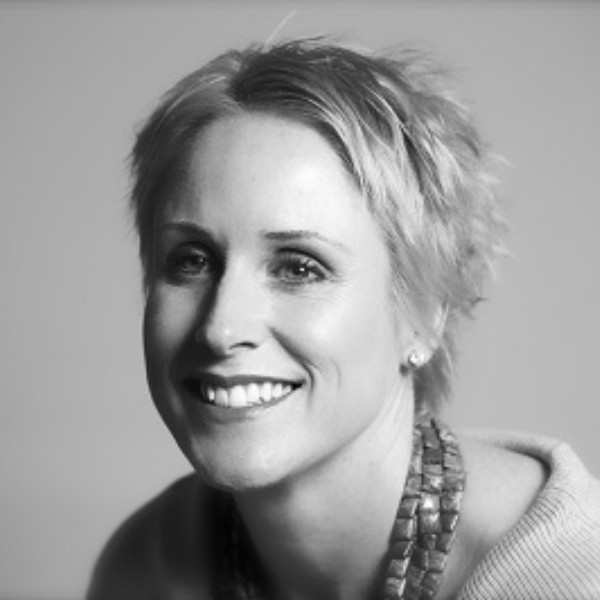
Director, Transcendent Media Capital; AFWAAS
Peta has spent the first 20 years of her career as an entrepreneur specialising in start-ups across industries such as transportation, tourism, management consulting and corporate strategy, technology and media. She is an international speaker, and award-winning filmmaker and has decades of experience in consulting and training leadership roles, with particular expertise in innovative business modelling and corporate strategy. She is now establishing a regenerative development fund for a venture studio, Transcendent Media Capital.
Marta Neskovic

Research Associate, Institute of Political Studies, Belgrade; JFWAAS
Marta Neskovic, PhD candidate in ethnology and anthropology at the University of Belgrade, studying the transmission of traditional kung fu knowledge in the contemporary Buddhist monastic setting of Shaolin Temple.
Nebojša Nešković

Secretary General, World Academy of Art & Science
Nebojša Nešković is a theoretical physicist also involved in accelerator technologies. Currently, he is Member of the National Council for Scientific and Technological Development of Serbia and Member of the Scientific Council of the Joint Institute for Nuclear Research, Dubna, Russia. Also, he is Trustee and Secretary General of the World Academy of Art and Science, Associate Member of the Club of Rome, and President of the Serbian Chapter of the Club of Rome.
He has been Director of the Laboratory of Physics of the Vinča Institute of Nuclear Sciences, Belgrade, Serbia, and Associate Director of the Vinča Institute responsible for making and implementing its long-range research program. He has also been Head of the TESLA Project, in the Vinča Institute, which comprised the construction and use of a large-scale facility for science and medicine with ion beams, and Director of the TESLA Scientific Center, an association of 15 scientific and educational institutions from South Eastern and Central Europe, whose joint program has been focused on science with accelerators and accelerator technologies.
Besides, he has been the main organizer of a number of international scientific meetings related to materials science, nanoscience, radiation research, biomedicine, nuclear physics, physics of elementary particles, nuclear medicine, sustainable development, future education, etc. He has authored or coauthored numerous scientific publications.
Joanna Nurse

Strategic Advisor, InterAction Council
As a strategic advisor to the InterAction Council – a group of 40 former Heads of Governments – Joanna Nurse scales up collaborative leadership and innovative solutions, from Pandemics to the Planetary Emergency, through digital transformation, to Secure a Healthy Planet for All. This builds upon Jo’s former roles in advancing Social Development across the 53 Commonwealth Countries with oversight of Ministerial conferences and events, by mobisiling resources, partners and digital solutions to enable governments to strengthen multi-sector systems and capacity for global security and sustainable development. From 2005 to 2014, as a senior policy lead for the UK government, Jo directed the development and delivery of evidence-based strategies to enhance wellbeing across the population. From 2010, drawing upon national roles on emergency preparedness, Jo worked for the United Nations, building capacity to address climate change risks and impacts with multi-sector strategies across Central Asia. As a leader in systems transformation, Jo drove the implementation of the WHO European Action Plan for Public Health Services and Capacity, by forging partnerships and multi-country networks across 53 countries; and applied this as a key architect of the World Federation of Public Health Associations Global Charter for the Public’s Health. With an earlier career of empowering communities in India, Mexico, Central America and Europe, and in 2003 working with the WHO in Geneva on equity mainstreaming and violence prevention, Jo initially qualified as a primary care physician specializing in public health, gained a Ph.D. in policy, holds visiting Professor roles, and is now an Advisor for the InterAction Council, and Director for the Platform for Planet, Place and People.
Luiz Oosterbeek

UNESCO Chair Humanities and Cultural Landscape Management; Member, TJD
Luiz Oosterbeek is a Professor at the Polytechnic Institute of Tomar, coordinator of Master and PhD Erasmus Mundus programmes in quaternary and prehistory, invited Professor of the Universities of Córdoba (Spain) and Ferrara (Italy), member of the scientific council of the Muséum National d’Histoire Naturelle (France). He has been a guest professor in over 40 universities from 20 countries in Europe and Brazil, and is a member of several NGOs in the field of cultural and environmental heritage.
Luiz Oosterbeek is the Secretary General of the International Council for Philosophy and Human Sciences since October 2014. He is also the Secretary General of the International Union of Prehistoric and Protohistoric Sciences since September 2006, and a member of the German Institute of Archaeology, of the Scientific Committee of the European University Centre for Cultural Heritage (Ravello, Italy) and an advisor of the Taihu World Cultural Forum (China), as well as member of several other academic bodies. He is president of the Instituto Terra e Memória (Portugal), a research and development structure based in Mação, with ongoing projects in archaeology, heritage management and landscape management in various countries in Europe, Africa and Southern America. As a former vice-manager of the Iberianamerican Program on Science and Technology, he assessed and monitored several research projects on Science and Society. From 1994, on several occasions he served as academic Expert for the European Commission and the European Training Foundation in programmes such as Erasmus, Erasmus Mundus, Tempus, Culture and Marie-Curie. He has been promotor of the Socrates programme (1995-1006) and Erasmus Ambassador (2012).
Luiz Oosterbeek is the author of over 250 papers and 60 books, mostly on the origins of agro-pastoralism, rock art, landscape management and heritage studies (management, tourism and law). He is Director of the Museum of Prehistoric Art in Mação, Portugal (which holds the Vice-Presidency of the Association CARP for the Council of Europe Rock Art Itinerary), Vice-President of HERITY International in Italy and one of the founders of the Portuguese Association for Intangible Heritage. He is Principal Investigator of the Quaternary and Prehistory group of the Geosciences Centre of Coimbra University. Currently he is a member of the Scientific Commission and the leading task force of the International Year for Global Understanding, approved by UNESCO General Assembly in 2013. He is also involved in the preparation, for 2017, of the World Conference of the Humanities (organised by UNESCO, CIPSH and LIEGETOGETHER).
In 1994, Luiz Oosterbeek (Oosterbeek 1997) was the author of a proposed mixed model of agro-pastoral spread into the west Mediterranean. He also developed a new model of landscape management (presented in Rio+20 and implemented in various regions) that considers cultural heritage as a major component for the contemporary understanding of technology and for governance (Oosterbeek 2012).
Since the end of the 1990’s Luiz Oosterbeek started applying prehistoric archaeology models to assess contemporary issues of landscape management, leading to the presentation, since 2010, of a new framework of reference for integrated landscape management, currently applied in several countries and the basis of an Erasmus+ strategic partnership named APHELEIA (apheleiaproject.org).
Ash Pachauri

Senior Mentor, POP Movement; AFWAAS
Dr. Ash Pachauri is the founder of the Protect Our Planet Movement (POP Movement).
Having worked with McKinsey & Company before pursuing a career in the social development arena, Dr. Pachauri’s experience in the fields of public health and management emerges from a range of initiatives including those of The Bill & Melinda Gates Foundation, PATH, UNDP, IPPF, and CDC program interventions in the US.
Dr. Pachauri has been engaged with the use of information technology for development, education, and geo-informatics. A master trainer in behavior change communications and strategic leadership, Dr. Pachauri has led over 20,000 workshops, events, and activities globally to outreach to youth and communities to promote health and sustainable development.
Widely published, winner of the prestigious Overseas Research Scholarship, awarded for advanced studies in the U.K. and recognized for his academic achievements, Dr. Pachauri pursues interests in research and teaching through ongoing collaboration with universities and institutions. Dr. Pachauri has been recognized by the United Nations for his dedication and leadership in their flagship publication “Portraits of Commitment”. He is an Associate Fellow of the World Academy of Art and Science. Dr. Pachauri serves on the Boards and Advisory groups of several organizations worldwide.
He has a PhD in decision behavior and a Master’s degree in international management.
Drishya Pathak

POP Youth Mentor / Research Associate
Drishya Pathak is a passionate environmentalist with a specialization in Public Health. She has been a distinguished scholar and has presented many groundbreaking reports in the area of public health like Universal Health Coverage, Civil Society and Community Consultation, Dissemination of WHO Self-Care Guidelines for vulnerable and key population, UNAIDS and APCASO Youth Consultation Project on SDGs, BMGF (Bill and Melinda Gates Foundation), MERM (Medical Event Reminder Monitor) Deployment for tuberculosis with USAID. Her expertise is in project planning and she has led several international and community projects globally. As a young researcher, she has also contributed chapters in 2 books and several articles in online and scientific journals.
Norma Patricia Muñoz Sevilla

POP Honorary Distinguished Mentor; President, Climate Change Council, Mexico
A renowned biologist with a PhD in biological oceanography and marine biochemistry specialty, Dr. Norma Patricia Muñoz Sevilla is the head of Climate Change Council for the Presidency of the Mexican Republic.
Currently a researcher of the Interdisciplinary Center for Research and Studies on Environment and Development at the National Polytechnic Institute, Mexico, she is affiliated with several prestigious environmental organizations. She is a member of the group of ocean experts in UNESCO-IOC, and also of the National Network for Interdisciplinary Research on Climate Change among several other global councils.
With around 60 scientific articles and 15 books on coastal zones, environmental deterioration and climate change to her credit, Dr Muñoz also co-authored the National Seas and Coastal Policy of Mexico.
She has approximately 41 awards for her professional performance, including the “Order of the Academic Palms”, awarded by the Government of the French Republic in 2010.
Nahid Pérez Ayala

POP Trainee Mentor, POP Movement, Mexico
Nahid Pérez Ayala was born in Monterrey Nuevo Leon and is currently living in Ciudad Victoria, Tamaulipas, México.
She is a junior in high school at Colegio Jose de Escandón La Salle. Nahid has been a missionary leader for more than five years representing her school nationally. Nahid is also an outstanding student, social activist, speaker, environmentalist, and promoter of the culture of peace. She was one of the youngest collaborators of Dr. Rajendra Pachauri (RIP) who inspired her love and passion for our common home, the earth, during his many visits to Mexico.
Priyanka Prakash

Program Director / Honorary Youth Mentor, Ervis Foundation / The POP Movement, UAE/ India
Leading the educational initiatives for the Ervis Foundation, 24-year-old Priyanka is passionate about working in the social sector and bringing about a positive sustainable change in the world.
As the Program Director for Ervis Foundation, Priyanka is working closely on aligning the Foundation’s visions with United Nations’ Sustainable Development Goals 12 and 14 and is greatly instrumental in running the operations. Priyanka cares deeply for marine life and is committed to work with the youth to alleviate the problems afflicting ocean life. She has helped the foundation in achieving its first-year goals aligned with Sustainable Development Goals. She has worked on developing curriculums, programs and initiatives that aim at educating and inspiring the youth to take action against the plastic crises. Over the last two years she has closely engaged with over 1,600 students across India and UAE, educating them and spreading awareness about the urgency to save our Earth and to building a plastic-free environment and cleaner oceans for our future generations. She is also currently appointed as the Regional Focal Point for Asia-Pacific, India for United Nations Major Group for Children and Youth (UNMGCY) SDG 14 / Oceans Youth Constituency. She had the opportunity to present the closing statement on behalf of UNMGCY at the Third Asia-Pacific Day for the Ocean organized by the United Nations Economic and Social Commission for Asia-Pacific (UNESCAP).
Having recently graduated with a degree in Journalism from Symbiosis Center for Media and Communications, Pune (India), she in the past has had experience working in news media organizations in India. She also has extensive experience in the social sector by having worked with several education-based NGOs across India.
Remus Pricopie

President, World University Consortium; FWAAS
Remus Pricopie has been professor and Rector of the National University of Political Studies and Public Administration (SNSPA), Bucharest, since March 2012.
His activity within the Romanian Ministry began in 1996, and includes positions such as Spokesperson, Director, Secretary General and Deputy Minister (Secretary of State) for Higher Education, International Relations and Teacher Training. Also, he has extensively collaborated with many international organizations – UNESCO, UNICEF, EU, OECD, World Bank, United Nations University, Agence Universitaire de la Francophonie – and ministries of education / higher education and research from more than 100 countries. From December 2012 to December 2014 he served as Minister of Education and Research in Romania.
Prof. Pricopie holds a PhD in Political Science at the SNSPA and he is a Fulbright New Century Scholar alumnus, a World Academy of Art and Science Fellow, a member of the Romanian Chapter of the Club of Rome, and a member of the Atlantis Group.
Janani Ramanathan

Sr. Research Fellow, Mother’s Service Society, India; Trustee, WAAS
Janani Ramanathan is engaged in research in a range of topics spanning the social sciences. She has been working with educational institutions in India, implementing active, collaborative, person-centered and values-based education. She is engaged in an exploration of the relationship between literature, psychology, history and social development. This project is part of her larger career goal to evolve new criteria for literary criticism based on an understanding of the process of social evolution. She is also a management consultant to nonprofit and business organizations, implementing strategies to improve their efficiency and ensure sustainable growth.
Mamphela Ramphele

Co-President, Club of Rome; FWAAS
Dr. Mamphela Ramphele has had a celebrated career as an activist, medical doctor, academic, businesswoman and political thinker.
She is the author of several books and publications on socio-economic issues in South Africa.
Dr Ramphele is co founder of ReimagineSA and co president of The Club of Rome.
She has received numerous national and international awards acknowledging her scholarship and leading role in spearheading projects for marginalised people in South Africa and elsewhere.
Shweta Rangan

Research Fellow, The Mother’s Service Society, India
Shweta Rangan is an educationalist with comprehensive knowledge in the field of Research & Education. Shweta is a Research Fellow at the Mother’s Service Society Pondicherry, India. She is a Computer Engineer and doing her Master’s in Education from a prestigious American University. Shweta also serves as Chief Advisor – Academics for leading organizations like Wissensquelle Robotics & Steamie Foundation. She holds a Coach certification in Neuro-Linguistic Programming (NLP) and has been influential in guiding and counselling her peers and learners across different platforms. Her passion is concentrated and directed towards developing holistic learning and teaching approaches for the development of global learners. She is also an avid reader and enjoys books on Spirituality and Literature.
Ranjani Ravi

Associate Editor, Cadmus; AFWAAS
Ranjani Ravi is Associate Editor of WAAS’ transdisciplinary journals Cadmus and Eruditio. She is also Research Fellow of the Mother’s Service Society, an educational research institute based in Pondicherry, India. She has been associated with WAAS since 2009 in various capacities and is now Associate Fellow of WAAS. Her research interests include: a transdisciplinary science of society, sociology of science, nuclear disarmament, new educational pedagogies, humanistic psychology, regulation of media, psychological history, global leadership, new economic theory and full employment, amongst others. Ranjani is also a professionally trained singer and has been researching the socio-historical context of old songs.
Thomas Reuter

Professor, University of Melbourne, Australia; Trustee, WAAS
Prof. Dr. Thomas Reuter is a Professorial Fellow at the Asia Institute of the University of Melbourne (UoM) in Australia, but currently living in Germany and affiliated with the Southeast Asia Institute, University of Bonn. After obtaining his PhD from ANU in Australia in 1997, he taught at Heidelberg University in his native Germany, before taking up post-doctoral and QElI Fellowships at UoM, a Monash Research Fellowship at Monash University and an ARC Future Fellowship and professorship back at UoM. He was President of the Australian Anthropological Association (2002-2005) chair of the World Council of Anthropological Associations (2008-2012), Senior Vice-President of the International Union of Anthropological and Ethnological Sciences (2008-2018), a member of the executive of the International Social Science Council (2013-2018) and an expert advisor to IPBES and IPCC. He is a member of the board of Future Earth (Asia) and the World Academy of Art and Science (WAAS), and a fellow of the European Academy of Science (EASA) and Academia Europaea (EA). Research in Indonesia and beyond has focused on indigenous people, social movements, religion, political elites, ecology, climate change, food security and globalisation. Prof Reuter has published fifteen books and over 150 articles.
Darynell Rodriguez

Former Executive Director, Global Partnership for the Prevention of Armed Conflict
Darynell Rodríguez Torres is an international conflict prevention and peacebuilding adviser. He is also Associate Professor at the School of Global and Public Affairs at IE University in Madrid.
He is the former Executive Director of the Global Partnership for the Prevention of Armed Conflict, GPPAC, a member-led network of civil society organizations (CSOs) active in the field of conflict prevention and peacebuilding across the world. He has broad experience conducting conflict analyses, political risk assessments and articulating multi-stakeholder dialogue processes for conflict prevention and peacebuilding.
He has held different positions in the public and private sectors, as well as in multilateral regional organizations. He has been a political risk analyst and public policy consultant for prestigious European consultancy firms. He has written several articles and contributed to edited volumes on conflict prevention and peacebuilding.
Darynell’s academic background includes a BA in Political Science and International Studies from West Virginia University, a Masters in Applied Political Studies by FIIAPP, a specialist degree in Communications and Political Management from the Complutense University of Madrid and a Masters in International Relations from the London School of Economics and Political Sciences.
Neantro Saavedra-Rivano

Professor Emeritus, University of Tsukuba, Japan; FWAAS
Neantro Saavedra-Rivano is Professor Emeritus at the University of Tsukuba (Japan), Visiting Professor at the University of Brasilia (Brazil), and Fellow of the World Academy of Art and Science.
He got his PhD in Mathematics from the University of Paris (France) and PhD in Economics from Columbia University (New York). His research has developed in multiple areas, including Algebraic Geometry, Dynamical Systems, International Economics, Development Economics, and Mathematical Simulation Models.
He has published numerous books and articles in professional journals and presented scientific papers at international congresses in more than thirty countries on five continents, as well as providing consulting for international bodies such as the Organization of American States, the Economic Commission for Latin America, the World Bank, the Inter-American Development Bank, and the Asia Pacific Economic Cooperation Forum (APEC).
His professional activities have included teaching and research at universities and other academic institutions in Brazil, Chile, South Korea, Spain, the United States, Georgia, France, Japan and Venezuela. More recently, he was Director of the Master’s Program in Public and Economic Policy Management at the University of Tsukuba, Japan.
Danilo Santos De Miranda

Sao Paolo Director of the Serviço Social do Comércio (SESC); FWAAS
Danilo Santos de Miranda has been the São Paolo Director of the Serviço Social do Comércio (SESC), the Brazilian arts funding agency, since 1984. He serves on the Board of the Art for the World, Geneva, Switzerland, associated with the UN Department of Public Information. From 2008 to 2010, he was President of the International Council of Social Welfare, a global organization committed to improving human well-being. In recent years, he has been invited to speak at conferences around the world, and has received numerous awards for his services to cultural policy and management: the Honor of Zumbi dos Palmares, the Jürgen Palm Honor, the Officer of the National Order of Merit of the French Government, the Great Cross of the German Government, and the National Merit of the Belgian Crown.
Santos de Miranda is a man who connects business and workers, artists and the public, thinkers, politicians, and diverse cultural institutions. He is recognised nationally and internationally for his work as a cultural manager. As board member of the institutions such as the Fundação Bienal, the Museu de Arte de São Paulo Assis Chateaubriand, the Itaú Cultural, and the Biblioteca Brasiliana Guita e José Mindlin, he acts in Brazil far beyond the 36 SESC’s units under his direction.
Santos de Miranda studied philosophy and social sciences, and pursued further studies in business management at the International Institute for Management Development, in Luasanne, Switzerland. In 1968, Santos de Miranda saw a newspaper advertisement calling for a job selection process at the SESC de São Paulo. He enrolled and was admitted, with the position of social advisor, exercising later various functions of coordination and leadership. In 1973, he was transferred to the human resources area of the National Service for Commercial Education (SENAC), and in 1984, he returned to SESC as the São Paulo Director, at the invitation of Abram Szajman, President of the Federation of Commerce of Goods, Services and Tourism of the State of São Paulo, and of the Regional Councils of SESC and SENAC. He holds this position to this day. In his many books and articles as well as in interviews and conferences, Santos de Miranda argues that education and culture are at the core of human development – overriding the notion of development that stems purely and simply from increasing the country’s economic production capacity. ”Culture, the way I understand it, is education – permanent education. I advocate a society in which the educational and cultural component is placed at the centre and not the economic, political or social component in isolation.” An advocate of a non-instrumental view of culture, he believes that the promotion of individuals’ well-being is linked to the valorisation of cultural diversity as a condition for citizenship; the democratisation of artistic forms and public access to them; the protection of artistic-cultural manifestations linked to peoples’ history and identity; and the strengthening of exchanges between different knowledges and societies.
Peter Schlosser

Vice President and Vice Provost, Arizona State University
Peter Schlosser is the vice president and vice provost of the Julie Ann Wrigley Global Futures Laboratory at Arizona State University. He is the University Professor of Global Futures and holds joint appointments in the School of Sustainability, the School of Earth and Space Exploration in the College of Liberal Arts and Sciences, and the School of Sustainable Engineering and the Built Environment in the Ira A. Fulton Schools of Engineering. The laboratory has been launched to harness the innovative capacity of academia and develop options for sound management of the planet. Professor Schlosser joined ASU in 2018.
Professor Schlosser is one of the world’s leading earth scientists, with expertise in the Earth’s hydrosphere and how humans affect the planet’s natural state. He comes to ASU from Columbia University where he was the Maurice Ewing and J. Lamar Worzel Professor of Geophysics and Chair of the Department of Earth and Environmental Engineering, Professor of Earth and Environmental Sciences, and the deputy director and director of research at the Earth Institute. He also was a member and the founding chair of the Earth Institute faculty and a member of the senior staff at the Lamont-Doherty Earth Observatory. His prior positions included a professorship at the University of Heidelberg and a visiting professorship at the University of Washington-Seattle.
His research interests include studies of water movement and its variability in natural systems (oceans, lakes, rivers, groundwater) using natural and anthropogenic trace substances and isotopes as ’dyes’ or as ‘radioactive clocks.’ He also studies ocean/atmosphere gas exchange; reconstruction of continental paleotemperature records using groundwater as archive; anthropogenic impact on natural systems and sustainable development as academic discipline. His research adds to the basic understanding of ocean circulation and the ocean’s role in climate. The same principles are used to investigate groundwater flow in shallow and deep aquifers, providing results that are relevant for environmental risk and impact studies. He has published more than 180 articles in leading journals.
He is a member of the German National Academy of Sciences, an elected fellow of the American Association for the Advancement of Sciences, the American Geophysical Union, and the Explorers Club.
Ullica Segerstråle

Professor, Illinois Institute of Technology; FWAAS
Ullica Segerstrale is Professor of Sociology at Illinois Institute of Technology, Chicago. She has Masters degrees in organic chemistry and sociology from Helsinki University, a Masters in Communication from University of Pennsylvania, and a PhD in sociology from Harvard.
At Illinois Tech she has served as Chair of the Social Sciences Department and director of the Camras Scholars Program for outstanding students. Earlier positions include Acting Chair of Sociology at Abo Akademi University, Finland; Senior Researcher at the National Academy of Finland; Fellow of the Center for Interdisciplinary Research (ZIF) in Bielefeld, Germany; Visiting Professor of the Swiss Federal Institute of Technology (ETH) in Zurich, and Fulbright Fellow.
Segerstrale is a Fellow of WAAS, and a member of the European Academy of Sciences and Arts, and the Finnish Society of Sciences and Letters. Her research has been supported by the John Simon Guggenheim Foundation, the American Philosophical Society, and the Rockefeller and Sloan foundations, among others. She is the recipient of a number of awards for teaching, leadership and research. In 2017 she was honored by the Illinois Tech’s Board of Trustees Outstanding Undergraduate Teaching Award.
She is the author of over 100 academic publications and the author or editor of 4 books. She has given over 150 academic presentations, including keynote addresses and lectures in many academic lecture series. Her research interests include science and values, human nature and human future, social aspects of architecture, and scientific conduct and misconduct. Other interests include languages and traveling.
Ismail Serageldin

Co-Chair, Nizami Ganjavi International Center (NGIC), FWAAS
Ismail Serageldin, Founding Director of the Bibliotheca Alexandrina (BA), the new Library of Alexandria, inaugurated in 2002, is currently Emeritus Librarian, and member of the Board of Trustees of the Library of Alexandria. He serves as Chair or Member of a number of advisory committees for academic, research, scientific and international institutions and civil society efforts, including as co-chair of the Nizami Ganjavi International Center (NGIC), and serves on the Advisory Committee of the World Social Science Report for 2013 and 2016, as well as the UNESCO-supported World Water Scenarios (2013) and the executive council of the Encyclopedia of Life (2010) and Chairs the Executive Council of the World Digital Library (2010). He also co-chaired the African Union’s high level panel for Biotechnology (2006) and again for Science, Technology and Innovation (STI) in 2012–2013, and was a member of the ICANN Panel for the review of the internet future (2013).
Before that he notably co-chaired the Inter-Academy Panel on Capacity Building for Science in (2003-2004) and was a member of the High Level group for the Alliance of Civilizations convened by the Secretary General of the United Nations (2006-2007). He has held many important international positions, including Vice President of the World Bank (1992-2000), and Chairman Consultative Group on International Agricultural Research (CGIAR, 1994–2000), founder and former Chairman of the Global Water Partnership (GWP, 1996–2000) and the Consultative Group to Assist the Poorest (CGAP), a microfinance program (1995-2000) and was professor of the International Savoirs Contre Pauvreté (Knowledge Against Poverty), at Collège de France, Paris, and distinguished professor at Wageningen University in the Netherlands. Serageldin is sometimes referred to as the “most intelligent man in Egypt”.
Serageldin has published over 100 books and monographs and over 500 papers on a variety of topics, including biotechnology, rural development, sustainability, and the value of science to society. He has hosted a cultural program on television in Egypt (over 130 episodes) and developed a TV Science Series in Arabic and English. He holds a Bachelor of Science Degree in Engineering from Cairo University and a master’s degree and a Ph.D. from Harvard University and has received 38 honorary doctorates.
Kakha Shengelia

Chairman, Intl. Association of University Presidents (IAUP); President, Caucasus University; FWAAS
Dr. Kakha Shengelia is President of Caucasus University and Chairman of the Board of the International Association of University Presidents (IAUP). He holds an MA degree from Tbilisi State University, an MBA degree in Management from the University of Hartford (Hartford, USA), and a Ph.D. Degree from Georgian Technical University (Tbilisi, Georgia). Apart from his administrative responsibilities, he teaches courses in Management Concept and History of Georgia. Dr. Kakha Shengelia was a Member of Parliament of Georgia, Deputy Chairman of the Committee of Education, Science, Sport and Culture, and the Committee of Foreign Affairs. He has been a Vice-Mayor of Tbilisi in Social Affairs.
Dr. Shengelia has been awarded the Presidential Order of Excellence by the President of Georgia and the Ring of Honor by the University of Applied Sciences Upper Austria.
He is an Honorable Doctor of Tallinn University of Technology and the University of Guadalajara, Mexico. Also, Member of the Board of Directors of the World University Consortium (WUC) and the European Public Law Organization (EPLO). Member of the Council of Representatives of European Law and Governance School (ELGS). He has been elected as a Fellow of the World Academy of Art & Science in 2018.
Tim Shephard

Vice President, Business Development Strategy & Operations, Lockheed Martin Space
Tim Shephard is the Lockheed Martin Space Vice President for Business Development Strategy & Operations (BDSO), based in Denver, reporting to Robert Lightfoot, the S&BD Senior Vice President focused on defense, intelligence and civil space/NASA portfolios. Over the past 30 years, Tim has helped guide his aerospace and defense new business teams in both domestic and international campaigns in aviation, space, intelligence and armaments.
Within LM Space’s six lines of business, Tim’s highest function is that of leading change management at the enterprise level – driving an external stakeholder engagement culture and installing customer mission focus strategies which are measurable. In his central role, Tim has formed a contract with his internal clients, the P&L General Managers, to deliver the annual long range plan by focusing on the management of his distributed team of over 130 business development professionals within the P&L silos. Tim controls the New Business Acquisition Expense (NBAE) budget and planning process, which underpins campaign strategies; nurtures collaborative relationships with military services, government agencies and industry partners; supports capture efforts, and; modernizes the opportunity and pipeline management infrastructure to build common tools, shared vernacular and managed outcomes.
Currently, Tim serves on the Board of Advisors for George Mason University’s Center for Government Contracting; is currently an active Board member on the Colorado Business Round Table (COBRT); is active on the GeoShare Board of Directors, a wholly owned LM Subsidiary
focusing on next generation technology and synergistic ties with Silicon Valley; and is a regular contributor at the annual Organization of Economic Development (OECD, Paris) Space Forum and at the annual Wharton Aerospace Conference’s International A&D Panel. Tim has served as the National Defense Industry Association’s (NDIA’s) US representative to NATO in the role of the NATO Industrial Advisory Group (NIAG) and has also served as the Vice-Chairman for the Aerospace Industries Association (AIA) International Council.
Tim holds an MBA from the Massachusetts Institute of Technology’s Sloan School of Management where his thesis project focused on the development of exportable software defined perimeter and quantum key enabled zero-trust networks. He earned his Bachelor’s degree in Modern History from Oxford University. Tim has attended executive development programs at the University of Pennsylvania’s Wharton School and INSEAD, in Fontainebleau, France.
Shoshana Bekerman

Founder and Director, Inter-Parliamentary Coalition for Global Ethics; AFWAAS
Shoshana Bekerman, Founder/Director of Inter-Parliamentary Coalition for Global Ethics (IPCGE), The Global Ethics Research Center and the Ethics Initiatives Consortium which focus on the promotion in the government and parliamentary framework for education for a culture of peace and U.N. SDGs as a tool for human security, environmental protection and a peaceful and just society. Shoshana is a strategist and consultant in the development and implementation of global strategy, legislative Initiatives and International relations for parliamentarians, development of Global Ethics Initiative at the United Nations, international relations for public officials and global organizations/companies. She initiated legislation and developed and coordinated dozens of conferences on global ethics. Shoshana previously taught Business Ethics and Sociology at FDU and Touro College.
Paul Shrivastava

Director, Sustainability Institute; Chief Sustainability Officer, Pennsylvania State University; Member, CoR & TJD
Anne Snick

Transdisciplinary education in STEAM, KU University Leuven; Member, Club of Rome; FWAAS; Member, TJD
Anne Snick is an independent researcher at the cooperative Smart.be. In her years in academia, she engaged in fieldwork and transdisciplinary research in gender, poverty, and social economy. Her current projects concern sustainable higher education and sustainable finance. She has authored several peer-reviewed publications, serves the community through public speaking and workshops, and is engaged with organizations promoting social justice and sustainability. She is a Fellow of the World Academy of Art & Science and Associate member of the Club of Rome. She holds a PhD in Philosophy of Education at KU Leuven, Belgium.
Carol Spalding

President, Rowan-Cabarrus Community College, USA; FWAAS
Dr. Carol Spalding was selected as the third President of Rowan-Cabarrus Community College (RCCC) in 2008 after a significant community college leadership career in Jacksonville, Florida. Rowan-Cabarrus serves over 20,000 students and under her leadership has expanded from two campuses to four, has become the flagship community college on the North Carolina Research Campus (NCRC) and has grown its online Virtual College by nearly 20%. The College has become a catalyst for change in the region, partnering with county and economic development commissions and business and industry sectors to provide relevant workforce development to create a more prosperous community.
Dr. Spalding has a passion for developing an individual’s full potential and is a champion for students and employee professional development. She is purposeful and collaborative in developing talent and in mentoring her leadership team, staff and faculty. As a result, the College has become a remarkable resource for the North Carolina Community College System as members of the cabinet have stepped up to help lead the state’s efforts to chair of Academic Programs, to chair of the ERP RFP process, to develop the articulation agreement of the Associate in Fine Arts degree, and to serve in strategic roles on other state wide committees. Serving this year on the professional development committee of the North Carolina Community College Presidents’ Association, Dr. Spalding has also stepped up and initiated and facilitated the New President’s Institute in anticipation of the NC State new program now in the planning stages.
An advocate for student success and the community college’s essential role in workforce and economic development, she has recently completed board service with RowanWorks Economic Development Commission and Cabarrus Regional Chamber of Commerce and continues to represent community colleges by serving on the regional Centralina Workforce (WIOA) Board.
Completing two terms on the American Association of Community College’s board of trustees, she continues her national service in a select group of presidents called “Advocates in Action” who work with the AACC’s legislative staff to influence federal legislators concerning laws pertaining to community colleges including the Higher Education Act. She continually works with state legislators in an effort to build the capacity of the system to create a more prosperous community, state and nation.
David Murdock, founder of the North Carolina Research Campus recently appointed Dr. Spalding to his seat on the board of the David H Murdock Institute, the research organization that provides “groundbreaking research and development solutions at the intersection of human health, agriculture and nutrition.”
Susan Swayze

Founder, Diversity Think Tank
Susan Swayze is a rare quantitative-qualitative hybrid who conducts complex research studies and teaches graduate-level courses in mixed methods, statistics, and qualitative research. Dr. Swayze has published more than 50 peer-reviewed journal articles and book chapters as well as two reference volumes.
A native of California, Susan attended Washington and Lee University as part of the second class of women, graduating with honors. Directly after college, Susan attended UCLA where she earned an M.A. and Ph.D. ultimately earning a Ph.D. within nine years of graduating college. After nearly a decade working in leadership positions in evaluation, research, and human resources, Susan earned an MBA from Duke’s Fuqua School of Business.
In 2020, Susan leveraged her 25 years of professional experience and founded Diversity Think Tank – a knowledge and consulting firm – that utilizes an optimal combination of consulting, coaching, and research to help small and mid-sized organizations achieve audacious goals.
Willy Tsague

POP Youth Mentor, POP Movement, Cameroon
Tsague Dongfack Willy Endelson has over 7 years of experience volunteering in the humanitarian field, empowering and assisting the underprivileged and youth through community projects and skill-building initiatives. Besides, he is a national young climate ambassador trained by the International Students Environmental Coalition Cameroon, and Youth Mentor at the International embodiment, POP Movement. Willy is currently the project manager of the project on gender inclusiveness in efforts to restore, protect the environment, especially the ocean in the West region of Cameroon. Additionally, he has developed a program Bio-debate, whereby he mobilizes students in secondary schools and universities clubs in order to debate environmental challenges pledging the community, thus strengthening climate leadership. Willy has represented Cameroon at several international conferences and training on climate change, volunteerism and humanitarian work.
Marcel Van de Voorde

Professor, Delft University of Technology, Belgium; Trustee, WAAS
Prof. Marcel Van de Voorde has Ph.D. degrees in natural and technical sciences. He is a professor from the University of Technology, DELFT (NL), and visiting professor at recognized universities worldwide. He also had research direction functions at CERN (European organization for nuclear research), Geneva in Switzerland, European Commission Research in Brussels, and Max Planck Institute at Stuttgart in Germany. He is co-founder of IMEC, a technology Centre in Leuven, Belgium with 2000 science employees. Prof. Van de Voorde is a senator of the European Academy for Sciences and Arts in Salzburg and a trustee at the world academy for sciences in the US. He is a member and/or chairman of multiple research councils and management boards all over the world. He is an expert in nanoscience and nanotechnology and recently edited an encyclopedia of 15 volumes published by Wiley Germany in 2017. He also co-authored a study book on Engineering, Medicine, and Science at the nano-Scale with prof. Stephen Fonash of Penn State University and director for nano-education at US-NSF in Washington.
Sander Van Der Leeuw

Director of the ASU-SFI Center for Biosocial Complex Systems, Arizona State University; Member, TJD
An archeologist and historian, Prof. Sander van der Leeuw has been specializing in the long-term interactions between humans and their environments. He is a pioneer in the application of the Complex Adaptive Systems (CAS) approach to socio-environmental challenges, technology and innovation. As coordinator of the ARCHAEOMEDES interdisciplinary research program (1991-2000) using the CAS perspective on socio-natural interactions and environmental problems in S. Europe – the first of its
kind worldwide. Co-director of the ISCOM project on invention and innovation from a CAS perspective (2003-2007). In both projects modeling played an important role, despite the limited technical means available at the time. After teaching positions in Amsterdam, Leyden, Cambridge and Paris (Sorbonne), he became founding director of Arizona State University’s School of Human Evolution and Social Change (2003-2011) and Dean of its School of Sustainability (2010-2013). Currently he is co-director of the ASU-SFI Center for Biosocial Complex Systems. External Professor of the Santa Fe Institute (since 2001) and Corresponding Member of the Royal Dutch Academy of Arts and Sciences (since 1995), he also held a Chair at the Institut Universitaire de France (2003-2008). In 2012, he was awarded the title “Champion of the Earth for Science and Innovation” by UNEP.
Jeffrey Vargas

President and CEO, Generationology LLC
Jeffrey Vargas loves empowering people and has devoted his professional life to helping companies and federal agencies cultivate talent and unleash leadership potential – but don’t get it twisted, before anything else, he is a son, a father, a husband, and a servant of the most-high.
In 2018 he founded Generationology LLC – a training and development consulting firm. His firm provides more than 37 online/virtual and in-person cutting-edge dynamic and interactive leadership training workshops for individuals, corporate clients, and federal agencies. Under his direction Generationology has helped more than 40 multimillion and multibillion dollar organizations address current and emerging human capital workforce and workplace post-pandemic issues and has helped his clients build a more effective and sustainable intergenerational leadership culture. Jeff is a nationally known figure in the learning and development community and is widely identified as the nation’s expert on generational differences in the federal government. He is known for sharing human capital management and leadership insights using data and stories to help facilitate organizational change.
His undergraduate degree is in Economics from the University of Maryland, College Park, and he is a graduate of Georgetown Universities Training Specialist Program and the prestigious Federal Executive Institute in Charlottesville, Virginia. He also is the founder of the “Chief Learning Officers Network” on LinkedIn, a past instructor at the Brookings Institution, and an advisor to the George Mason University Chief Learning Officers Certification Program.
For more than 25 years Jeff has also been an active national leader in the Diversity and Inclusion community with a focus on the Hispanic community; serving as a lead advisor for the League of United Latin American Citizens Federal Training institute, a board member of the Alliance for Latinx Leadership and Policy and the Founder of the Hispanic Youth Symposium – a four-day, three-night leadership development program for Hispanic students.
Jeff serves on the board of GlobalMindED, a Denver-based non-profit organization that helps first generation college students and young professionals overcome bias, learn the hidden workplace curriculum, and become world-class leaders.
Sesh Velamoor

Director of Programs, Foundation for the Future; FWAAS
Sesh Velamoor, a native of Hyderabad, India, is the Director of Programs at the Foundation For the Future. In this capacity he organizes and moderates think tanks to discuss issues pertaining to the long-term future of humanity, including education. He also routinely speaks and writes on various aspects of the long-term future in local, national, and international journals and forums and has published several articles in international journals of Future Studies.
Mr. Velamoor previously held the position of President at Kistler-Morse Corporation in Bothell, WA, a manufacturer of instrumentation. He holds a Bachelor of Science degree in mechanical engineering, and has Master’s degrees in Industrial Engineering and Business Administration. Mr. Velamoor has more than 35 years’ experience in management at top levels of industrial corporations and Non-Profit Organizations. During his career in business, he has published technical articles in manufacturing journals and was active in speaking on a variety of business topics, including excellence, material requirements planning, total quality, empowerment, Japanese management, and cultural diversity in the workplace. He has also taught university-level courses in Marketing Research, Operations Research, and Organizational Development.
He has been listed in Who’s Who in the Northwest and Who’s Who in the United States. He is active in community affairs and has served as President of the India Association of Western Washington and Chairman of the High-Tech Board of Bellevue Community College. He currently serves as a Foundation Associate of the Pacific Science Center, Trustee of the Kistler-Ritso Foundation, Director in Newrite Foundation India, Member of the board of the Seattle Snow Leopard Trust, Advisor to the South Asia Studies Program at the Jackson School of International Studies, University of Washington, Advisor to SeeYourImpact.org, President and Member of the Board of Kistler Sensors. He is also a fellow of the World Academy of Arts and Science.
Christine Volkmann

UNESCO Chair, Entrepreneurship and Intercultural Management at the Schumpeter School of Business and Economics, University of Wuppertal
Christine Volkmann is a German Economist and holds the UNESCO Chair for Entrepreneurship and Intercultural Management at the Schumpeter School of Business and Economics of the University of Wuppertal.
Adelina von Fürstenberg

President & Founder, ART for The World; FWAAS
Adelina von Fürstenberg is an international curator and independent film producer living in Switzerland and Italy. During her studies of Political Sciences she founded and directed the Centre of Contemporary Art, in Geneva. Later, she directed in Grenoble/France the National Centre of Contemporary Art (CNAC/Magasin) and its School of Curators. During her curatorship in 1995 of “Dialogues of Peace” for the 50th Anniversary of the UN, she founded ART for The World, associated with the UNDPI, the first project of which was “The Edge for Awareness” for the 50th Anniversary of the WHO, was a large art exhibition on physical and mental health toured on four continents. After a series of art works inspired by the UDHR, in 2008, she produced for the 60th Anniversary of OHCHR her first series of 21 short films “Stories on Human Rights” recognized by the Council of Europe as the “Best Cultural Event in Europe in 2008”. In 2015 she received the Golden Lion for “Best National Participation” for her curatorship of the Pavilion of Armenia by the International Jury of the 56th Venice Biennale and in 2016 she received the Swiss Grand Prix “Meret Oppenheim” for her career by the Federal Office of Culture. Her most recent accomplishment is the production with the auspices of the UNOG and the WMO of the long feature film Interdependence, 2019 with the participation of eleven international filmmakers having joined their forces to raise awareness on Environment and Climate Change.
Vesna Vucinic

Faculty of Philosophy, University of Belgrade; FWAAS
Dr Vesna Vucinic is professor at the Department of Ethnology and Anthropology, University of Belgrade. Her field of interest covers urban anthropology, religious revivals, and organizational cultures, with the focus on Southeast Europe and East Asia.
Isabelle Wachsmuth

Project Manager, Art Impact For Health and SDGs initiative, WHO; AFWAAS
Isabelle Wachsmuth-Huguet, MSc, MPH has been working for World Health Organization (WHO) since 2003 and has 20 years of expertise on international network promoting and implementing knowledge management solutions in both high and low income countries. She is currently Project manager, Health Systems and Innovation Cluster, Service Delivery & Safety (SDS), Emerging Issues, Quality Universal Health Coverage (QUHC), at WHO Geneva. She is also the coordinator and lead moderator of the WHO-HIFA Global Francophone Forum – Health Information For All (HIFA-Fr).
Benno Werlen

Chair of The Jena Declaration (TJD); FWAAS
Benno Werlen is a Swiss geographer who is known for his action-centered approach to human geography and his concept of a Geography of Everyday Regionalizations.
Werlen currently holds the UNESCO-Chair on Global Understanding for Sustainability at the Friedrich Schiller University, Jena (Germany). From 1998 to 2018, he held the chair of social geography at Jena University. Werlen was a visiting professor at the Universities of Salzburg, Geneva and Nijmegen as well as a visiting scholar at the University of Cambridge, the London School of Economics, and the University of California, Los Angeles. He has served as a panel member for the European Research Council from 2008-15, and for the French National Research Agency (ANR) in the field of Social and human sciences from 2008-12. From 2004-2016, he chaired the International Geographical Union’s commission “Cultural approach in geography”, and since 2016, Werlen has been heading the commission “Global understanding”.
In 2016, Werlen received the International Geographical Union’s Lauréat d’Honneur for his lifetime achievements and his efforts for the “2016 International Year of Global Understanding”.
Ralph Wolff

Founder and former President, The Quality Assurance Commons; FWAAS
Ralph A. Wolff is the founder and former president of The Quality Assurance Commons for Higher and Postsecondary Education created in 2016 to assure that graduates of academic and postsecondary programs have the requisite Essential Employability Qualities (EEQs) needed for the dynamically changing workforce. Previously, Wolff served as president of the Accrediting Commission for Senior Colleges and Universities of the Western Association of Schools and Colleges (WASC) from 1996-2013. He is a former member of the National Advisory Committee on Institutional Quality and Integrity (NACIQI), which reviews accrediting agencies for federal recognition, and is a founding member of the University Quality Assurance Institutional Board (UQAIB) in Dubai. He is a Fellow of the World Academy of Art and Science and a Trustee of the World University Consortium. He holds a JD degree, with honors, from George Washington University, and a BA degree from Tufts University.
Munera Yousufzada

Former Deputy Minister of Defence and Deputy Governor of Kabul; Artist and Poet
Former Deputy Minister of Defense (Responsible for Personnel and Education)
Munera was born into a large and poor family. Her family had emigrated to Iran because of the war in Afghanistan, in which her father lost his life. Munera had to work to support her education, so from the age of seven to 15, she was weaving carpets in a carpet workshop. From the age of 15 to 22, she taught Afghan immigrants who were not allowed to study in Iran. At this time, she established a school for Afghan refugee girls, which was recognized by the Iranian government. She also won Iran’s national essay competition at age 16.
Her Professional experience includes: Deputy Minister of Defense, responsible for Education and Personnel, Ministry of Defense of Afghanistan (MOD) (March 2019 to March 2021); In Afghanistan’s history, until the recruitment of Ms. Yousufzada, no woman was present at the leadership level of the Ministry of Defense. This appointment was met with numerous 2 media analyses, including encouraging messages from women and youth, and threatening and insulting messages from warlords and Taliban commanders on social media; Director of Political, Social and Cultural Programs of the Former President of Afghanistan, Presidential Palace, Kabul (2018-2019); Deputy Governor of Kabul (2017 to 2018); Munera Yousufzada was the first woman to be appointed Deputy Governor of the Afghan capital; Independent Directorate of Local Governance (IDLG), Afghanistan Served from 2010 to 2017 in the following capacities: Executive Officer of Deputy Minister for Policy (2010 to 2012) Civil Society and Media Relations Advisor (2012 to 2014) Spokesperson and Director of Information and Public Awareness of IDLG (2014-2017); Executive Director of the Afghanistan Center for Contemporary Arts, CCAA, non-governmental organization, Kabul (2008 to 2010). Munera Yousufzada was the first woman to become the spokesperson for an important government institution in the country.
Denys Zacharopoulos

Art Historian & theorist; Professor of Art History
Denys Zacharopoulos (born in 1952 in Athens, Greece) is a renowned art historian, critic and writer, who has collaborated with a number of prestigious international institutions. He has exercised his curatorial vision in a variety of internationally recognized settings, and his work has encompassed a range of challenges, from founding the Institute of Contemporary Art of the Academy of Fine Arts, Vienna, Austria, to the Directorship of the Domaine de Kerguéhennec, Bignan, Bretagne, France; from serving on the curatorial team of Documenta IX, Kassel, Germany, to the curatorship of the much-admired French Pavilion at the 48th Venice Biennale, Italy, in 1999.
Zacharopoulos has acted as Advisor of the Regional Funds of Nord-Pas-de-Calais and ChampagneArdenne, and of the Fonds national d’art contemporain, France. In 2006, he became Artistic Director of the Macedonian Museum for Contemporary Arts, Thessaloniki, Greece, and in 2015, Artistic Director of the Municipal Pinacotheque of the Museums and Collections of the City of Athens. He is currently engaged in curating a private collection in a public space in Kalambaka, Greece.
Zacharopoulos studied music in Athens. After that, he studied French Literature, Semantics and Philosophy, and History and Sociology of the Arts in Aix en Provence and Paris, France. A student of Jean Cassou, Louis Marin and Roland Barthes at the École des Hautes Études en Sciences Sociales, Paris, he studied all the dimensions of the field which connect philosophy, history, humanities, art and all kind of expressions that allow languages to develop in a poetic world, where knowledge, imagination, perception and possible systems give human beings the sense of freedom and the means to fight for it.
Zacharopoulos successively taught in Geneva, Switzerland (École supérieure d’arts visuels); Grenoble, France (École du Magasin); Tourcoing, France (École régionale supérieure d’expression plastiquе); Vienna (Academie der Bildenden Künste); London, UK (Curatorial Seminar at the Royal College of Art); Amsterdam, The Netherlands (Rijksacademie); Bretagne (four Écoles des beaux-arts); Bern, Switzerland (Hochscguhle für Kunst und Gestaltung); Lesbos, Greece (Cultural Informatics and Museology, Aegean University); and Athens (National School of Fine Arts). In 1975, he became Program Coordinator of the Institute of Contemporary Arts, London. He then taught as Professor at the Academies of Fine Arts in Geneva, Vienna, and Amsterdam. During that period, he forged intensive personal contacts with many contemporary artists of his generation, in particular to James Welling, Matt Mullican, Ernst Caramelle, Jean-Marc Bustamante, Juan Muñoz, Thomas Schütte, and Reinhard Mucha.
Zacharopoulos’ writings can be read in various publications and journals both in Europe and in the USA. Since 1977, he has produced art critiques in: Artforum (New York, USA); Artistes (Paris); Arti (Athens); Parkett (Zurich, Switzerland); Furor (Geneva); Faces (Geneva); Museumjournal (Amsterdam); Art e Dossier (Rome, Italy); Artstudio (Paris); Juliett (Trieste, Italy); Acrobat Mime Parfait (Bologna, Italy); Teuchos (Athens); and Artime (Athens).
Aleksander Zidanšek

Professor, Jožef Stefan International Postgraduate School; Trustee, WAAS
Aleksander Zidanšek is a physicist and sustainability scientist who has been actively involved in the activities of WAAS in the last decade.
As an active member of the SDEWES Centre, he organised several special sessions at SDEWES Conferences about fundamental sustainability issues in cooperation with WAAS and in particular with the WAAS Honorary President Ivo Šlaus. His main contributions to WAAS are in innovative sustainability ideas in the fields of energy and the development of competences.
He is currently Vice Dean of the Jožef Stefan International Postgraduate School, Professor of Physics at University of Maribor, senior researcher at Jozef Stefan Institute, President of Slovenian Association for the Club of Rome, Head of the national Competence Center Factories of the Future, Associate Member of the Club of Rome since 2005, and Fellow of the World Academy of Art & Science since 2012.
Previously, he was a Fulbright fellow at Montana State University with Prof. V. H. Schmidt and a visiting researcher at the Trieste Synchrotrone.
He studied at University of Ljubljana and holds Ph.D. in Physics, Master Degree in Condensed Matter Physics, and Master Degree in Business Administration, with specialisation in sustainable development management.
Moneef Zou’bi

President of Mauritius (201Director General, Islamic World Academy of Sciences, Jordan (1998-2019); Trustee, WAAS
Moneef R. Zou’bi has been an advocate of Science and Technology for Development for around 30 years. Born in Amman, Jordan, he studied for his undergraduate and postgraduate degrees in Civil Engineering Technology and Management Brighton and Loughborough Universities in the United Kingdom, 1980-1987. After becoming involved in global development issues, he successfully pursued further post-graduate work at the Department of Science and Technology Studies at the University of Malaya.
Moneef joined the Islamic World Academy of Sciences (IAS) (an international scientific NGO based in Jordan and affiliated to the Organisation of Islamic Co-operation (OIC)) in 1990, embarking on a career in international scientific and technological collaboration involving more than 57 countries. After serving in various capacities at the IAS, he was appointed by the IAS Council as Director General, IAS, in May 1998. He also serves as the Science Advisor to the InterAction Council (IAC) which is an independent international organization that mobilizes the experience and international contacts of a group of statesmen who have held the highest office in their own countries.
Over the last three decades, he has been involved in scientific missions in more than 30 countries. He has, since the mid-1990s, devoted all his energies to science and innovation advocacy at all levels, and to promoting the role of science and academies of sciences in particular in bridging scientific and technological, development, and even political divides between countries, cultures and civilizations.
He has written extensively on science and technology issues, science education and sustainable development, as well as on water issues from a Middle Eastern perspective, and has given lectures on such topics in over 25 countries including Canada and the United States. He has published over 60 publications and edited and co-edited 10 books on topics such as higher education, the environment as well as transformational technologies. In 2010, he co-authored the ground-breaking Arab States Chapter of the 2010 UNESCO Science Report that foresaw the advent of the Arab Spring and the associated turmoil in the Middle East. In 2015, he was commissioned again to be lead author of the Arab States Chapter of the 2015 UNESCO Science Report, which has been published in English and Arabic.
Apart from his work-related interests, he is interested in the history and politics of the Middle East, the history of science, especially the history of academies of sciences, the science and religion nexus, science diplomacy as well as sustainable development and water issues in the developing world.
Moneef has visited more than 60 countries and enjoys high-level contact in most; he speaks Arabic, English and some French, and is a member of many international organizations including the UNESCO International Centre for South-South Co-operation in Science, Technology and Innovation (ISTIC), Malaysia; the New York Academy of Sciences; World Academy of Art and Science and the European Association for the Study of Science and Technology; and is a Founding Fellow, of the Academy of Engineering and Technology for the Developing World (AETDEW), based in Kuala Lumpur (Malaysia). He is also a member of the Advisory Committee of the Rosenberg International Water Forum, USA, since 2007; member (Ex-Officio) of the Council of the Islamic World Academy of Sciences, since 2009; member of the Advisory Board, Muslim-Science.Com, since 2011, and a member of the American Association for the Advancement of Science (AAAS), since 2013; member, Board of Judges for the Templeton Prize involved in the selection of the Templeton Prize Laureate for 2018, 2019 and 2020.
Alberto Zucconi

Chairman of the Board of Trustees, WAAS; Secretary General, World University Consortium
Alberto Zucconi is a psychologist, psychotherapist, educator, trainer and consultant. He is President of the Person-Centred Approach Institute (IACP), a non-profit international organization, co-founded with Carl Rogers and Charles Devonshire and dedicated to research in human behaviour, the promotion of health and the training of professionals. IACP is a World Health Organization (WHO) Collaborating Centre for research, training and consulting in Health Promotion at the workplace in Italy and the Host Institution for the SOLVE programs of the International Labour Office (ILO) in Italy.
He is one of the Board of Directors of Sustainability University, Santa Fé, New Mexico, Co-founder and Co-Director World Sustainability Forum, Member of the Global Clinical Practice Network, World Health Organization (WHO), External scientific advisor of the European Office for Investment for Health and Development (WHO/EURO).
Alberto Zucconi was a faculty member of the Western Behavioural Science Institute (WBSI) in La Jolla, CA., and is a fellow of the International Leadership Forum (ILF), an online global think-tank, a senior staff member of the Carl Rogers’ Peace Institute that has organized with the United Nations University for Peace cross-cultural communication and conflict resolution meetings with heads of state and diplomats. He has been working internationally for 35 years as a trainer, lecturer and consultant for public and private organizations and is currently teaching Client Centred Therapy and the Person-Centred Approach, at the postgraduate level at the University of Siena (Italy), faculty of medicine.
He is a clinical psychologist, a former student and collaborator of the late Dr. Carl Rogers, one of the founding fathers of Humanistic Psychology and originator of the Client-Centred Therapy and the Person Centred Approach, a scientifically formulated paradigm that has impacted the fields of psychology, education and management.
He has authored several articles and books focused on psychology, psychotherapy and health promotion and designed and directed various research projects.